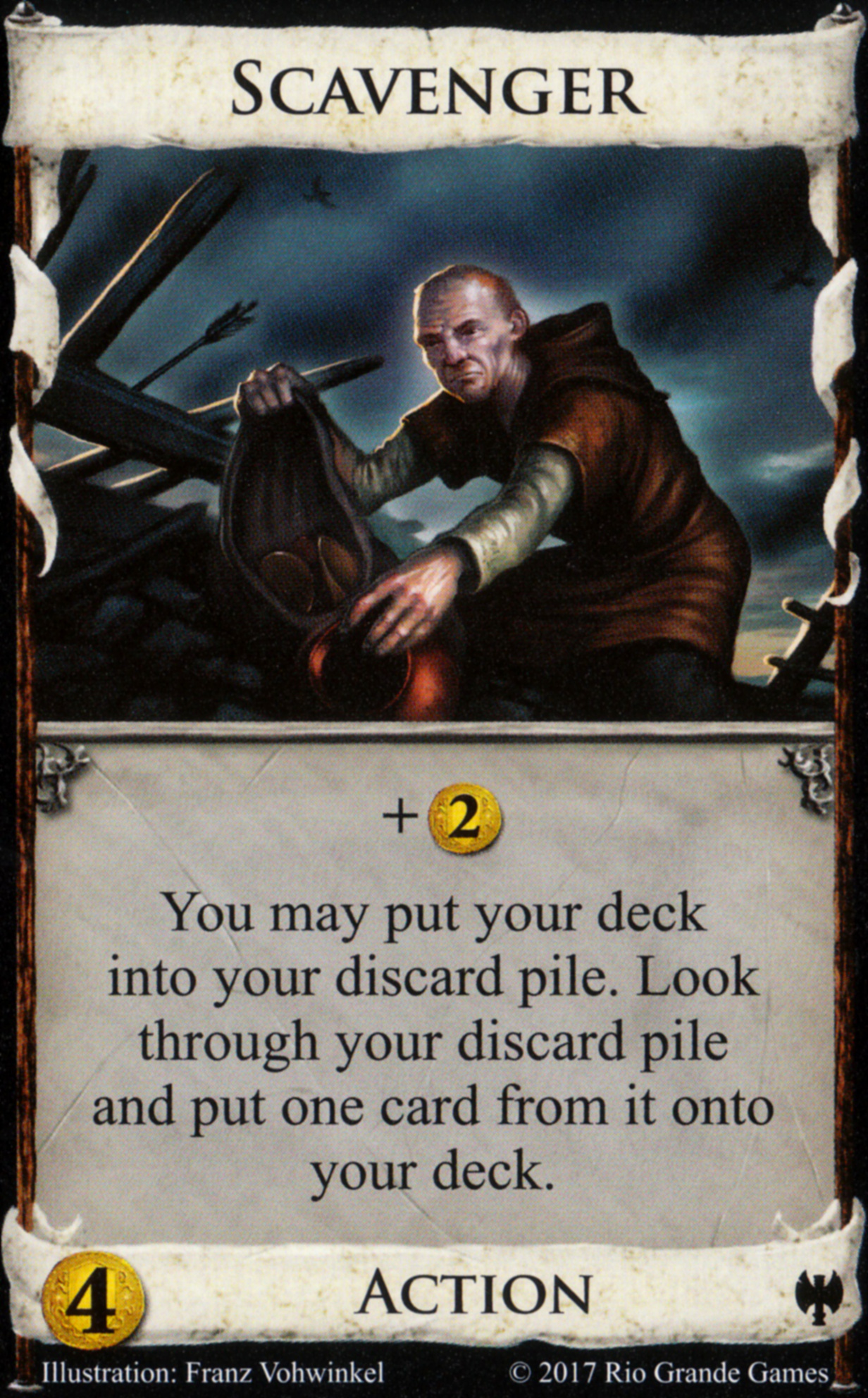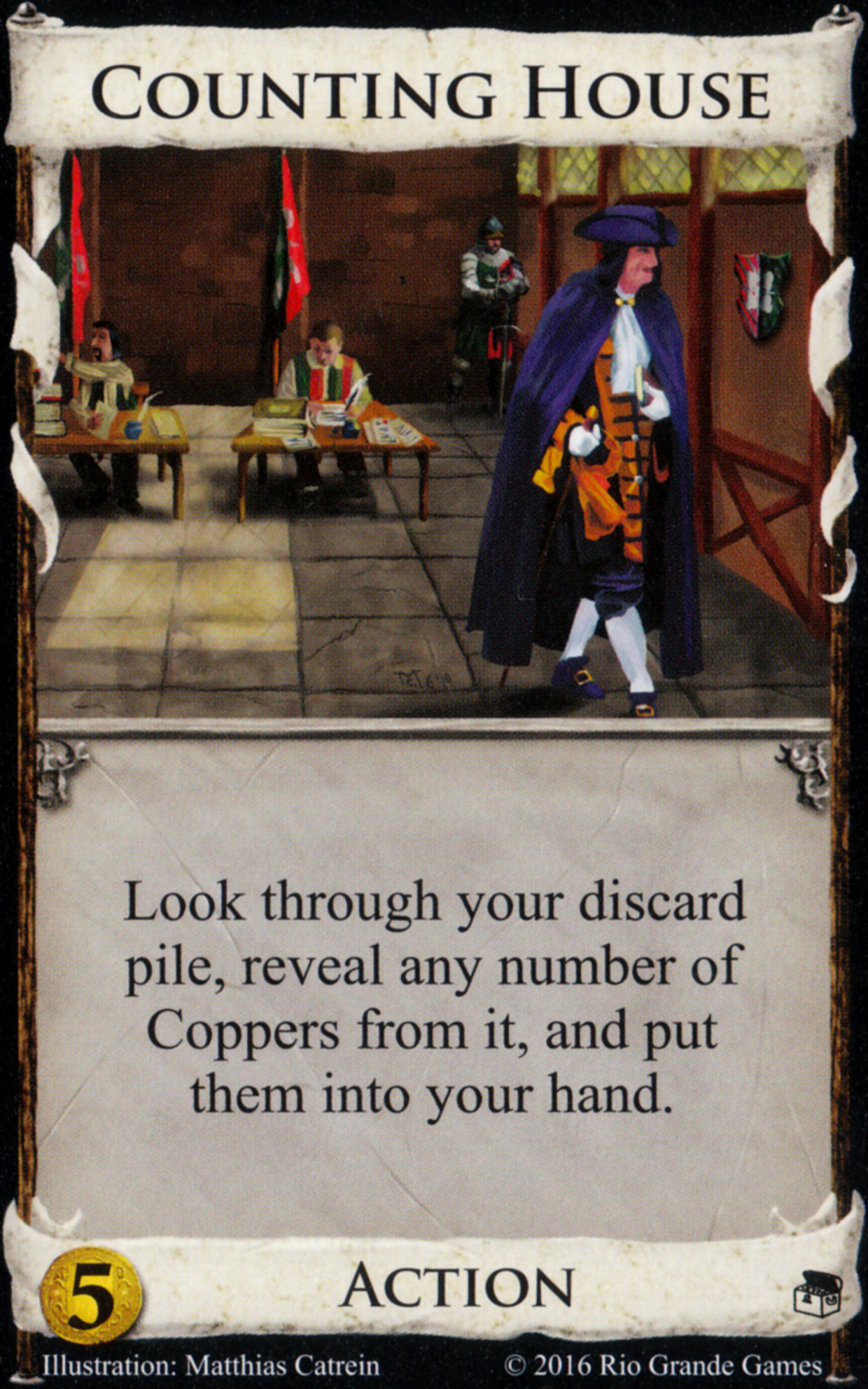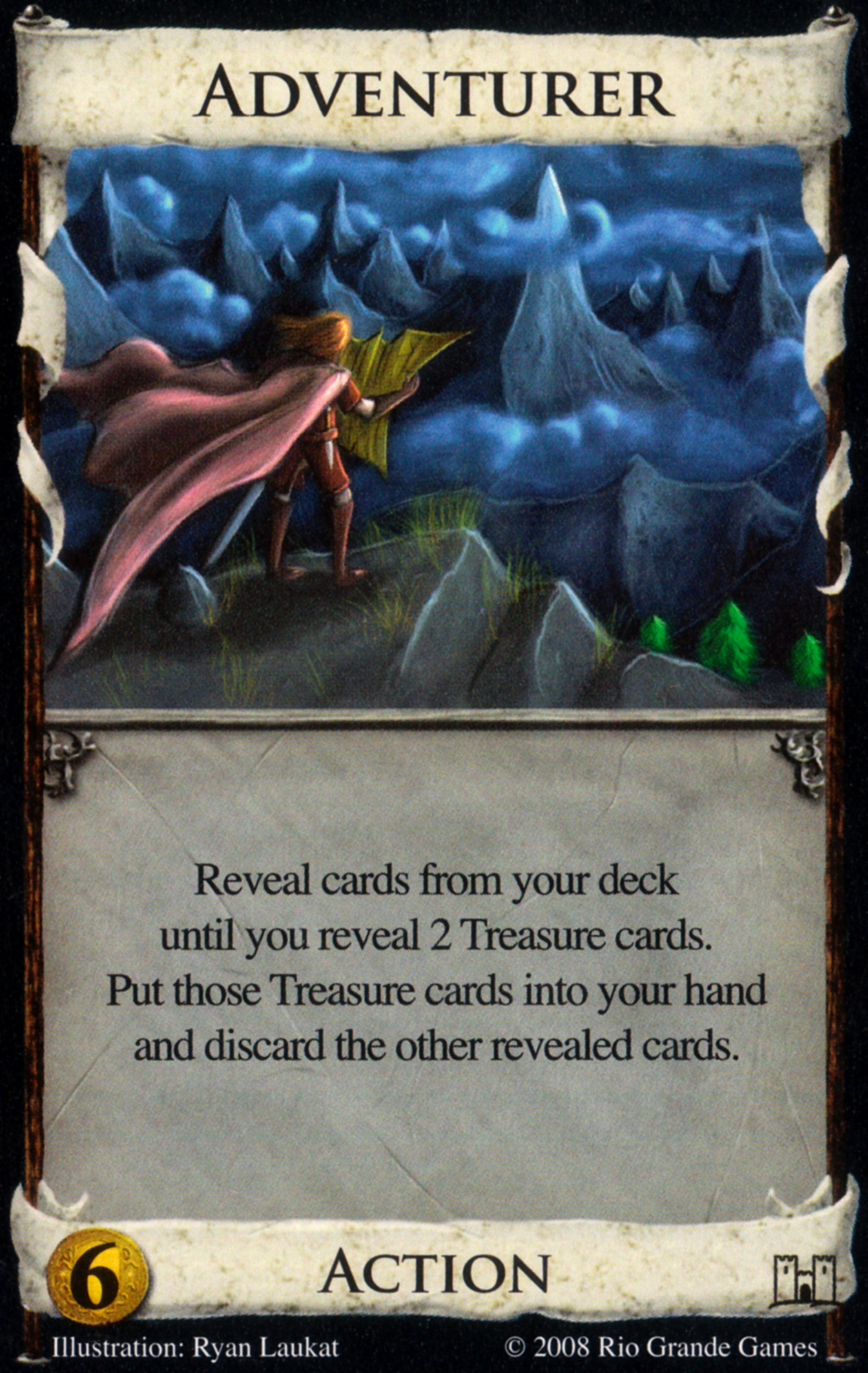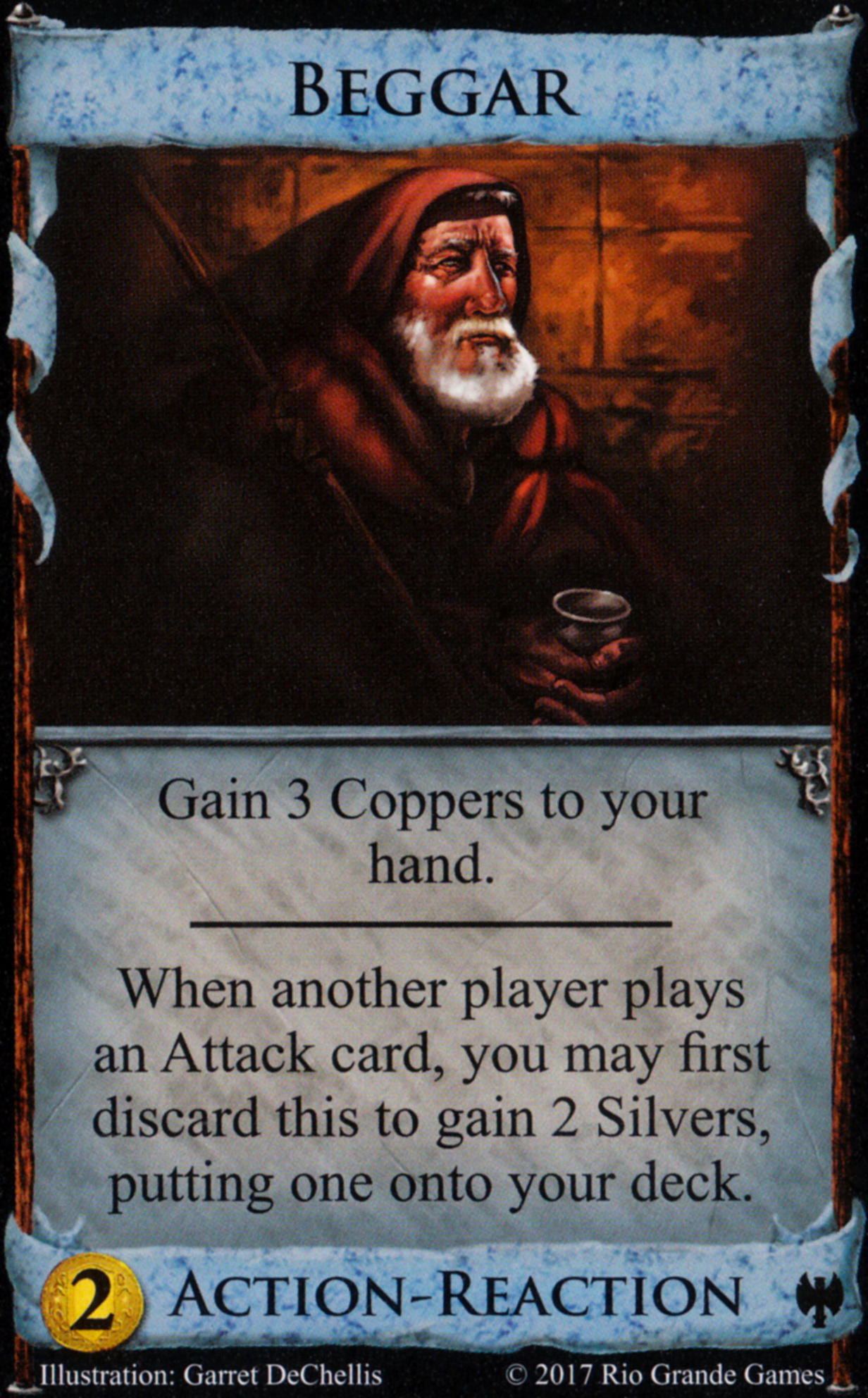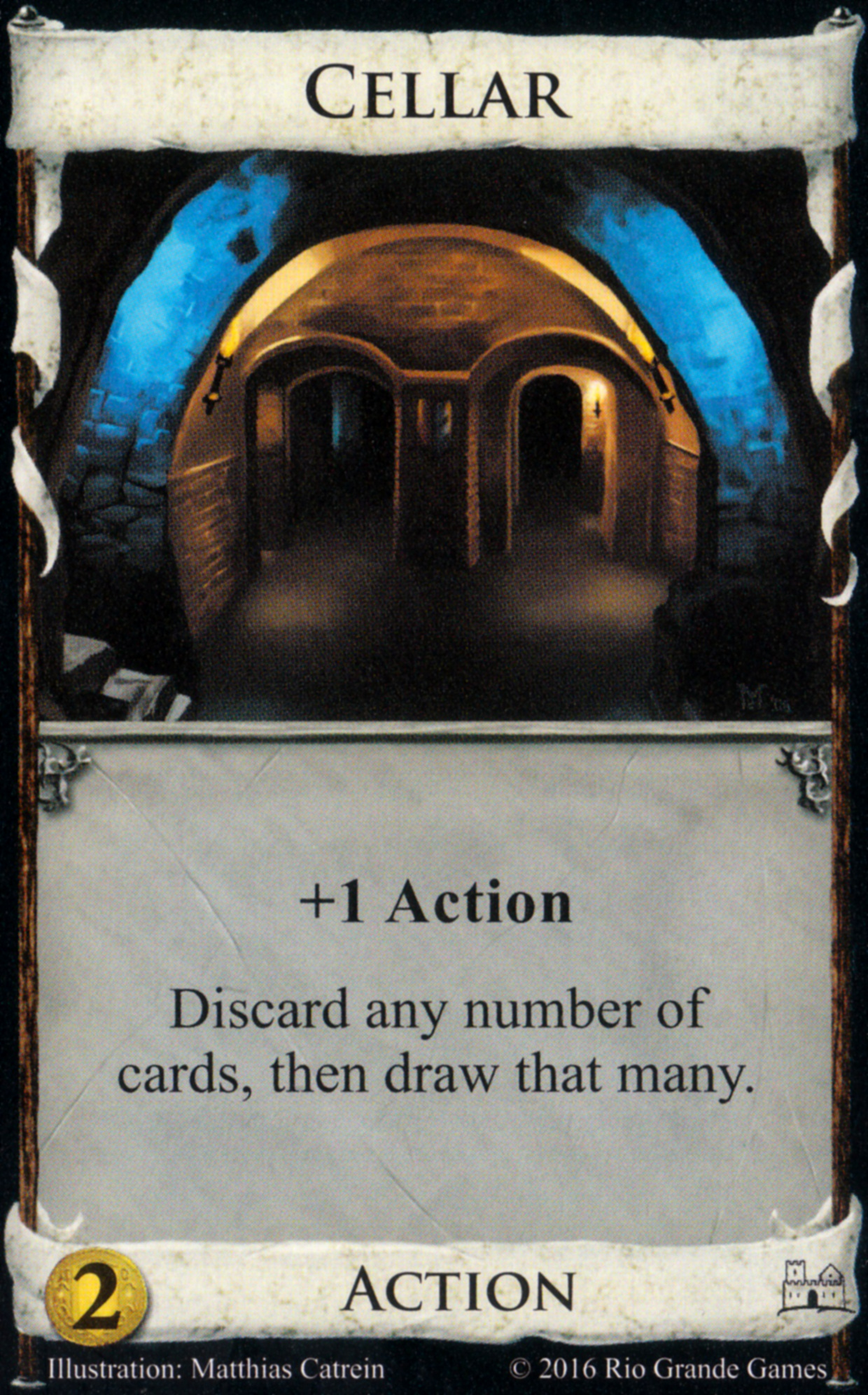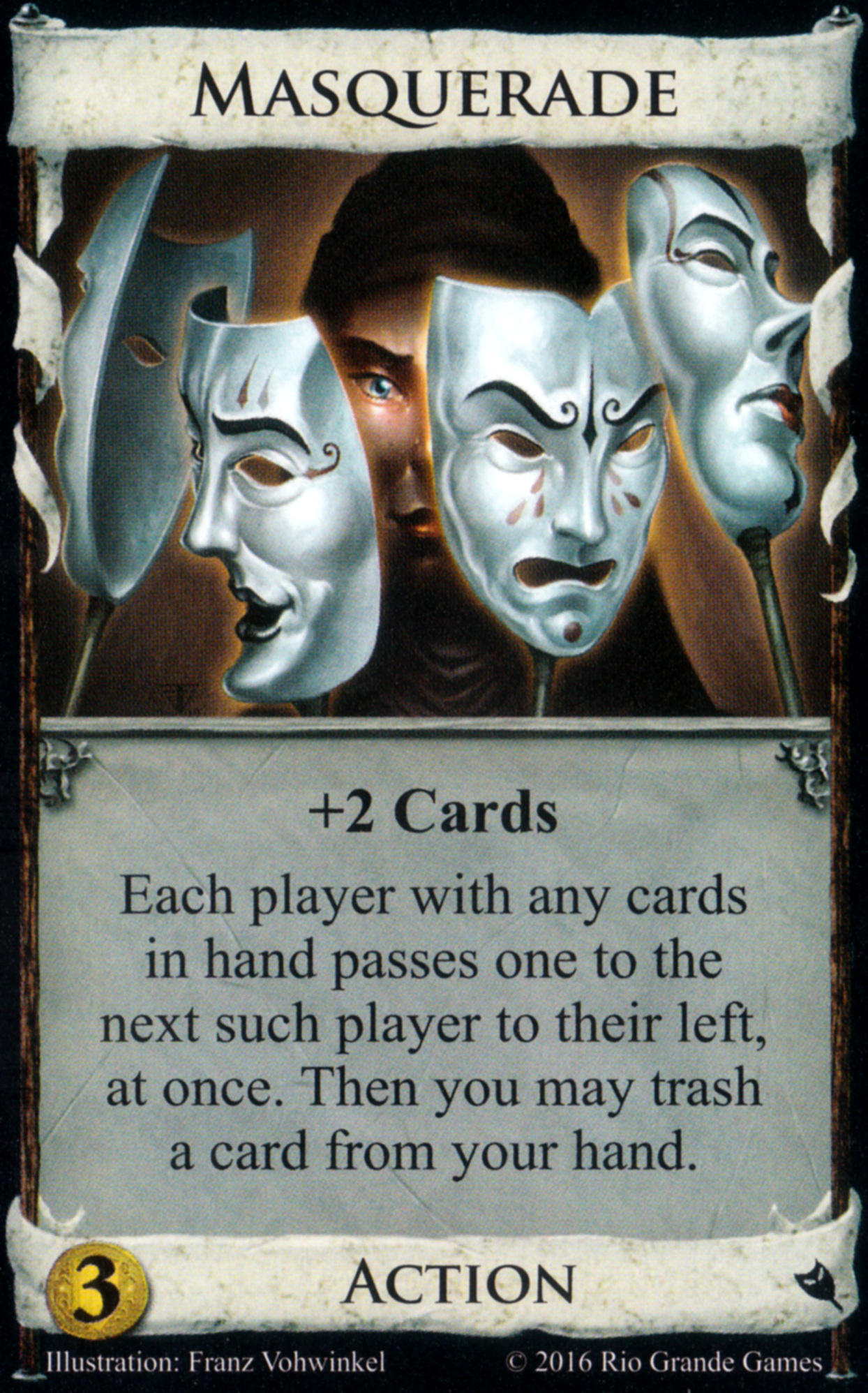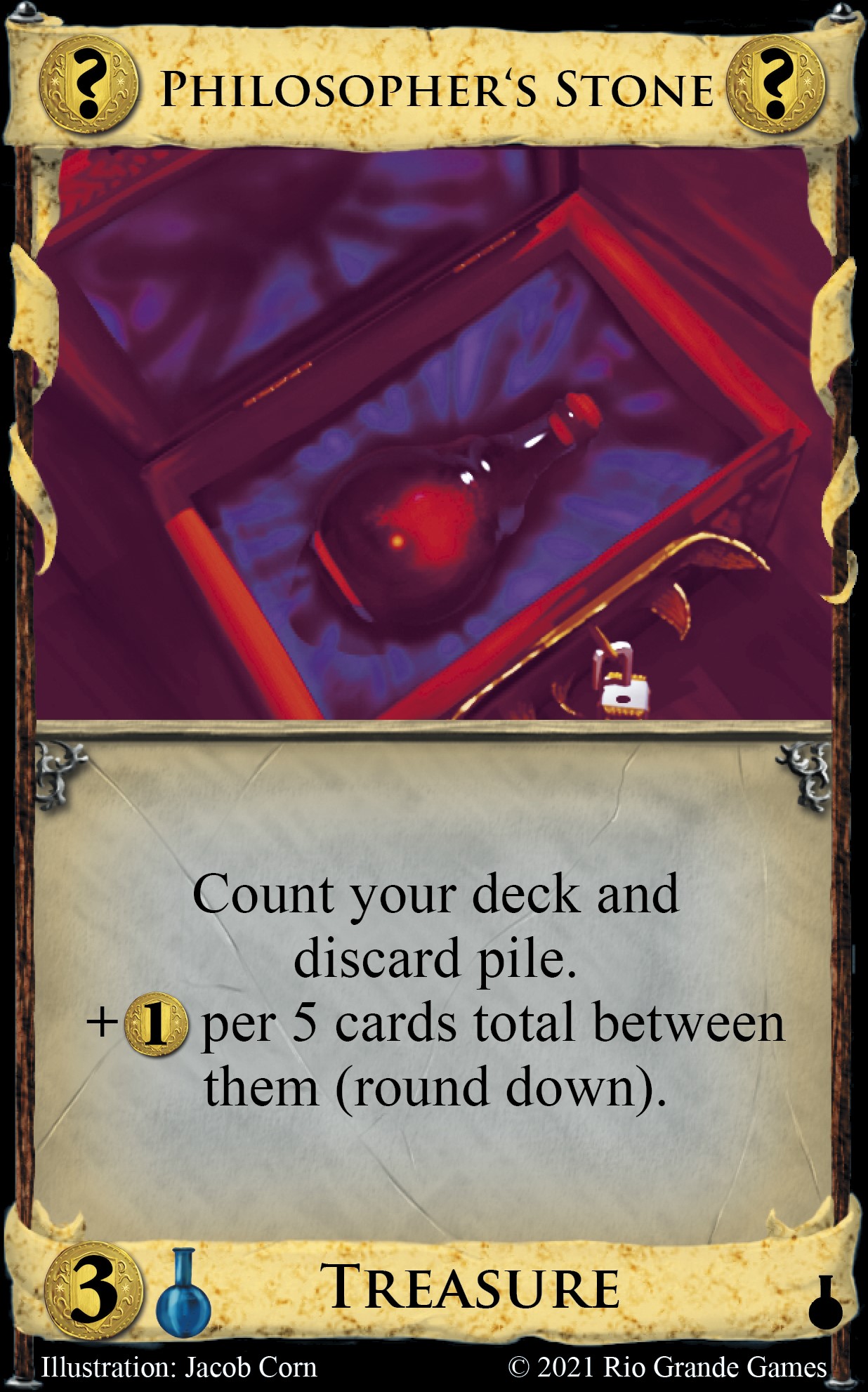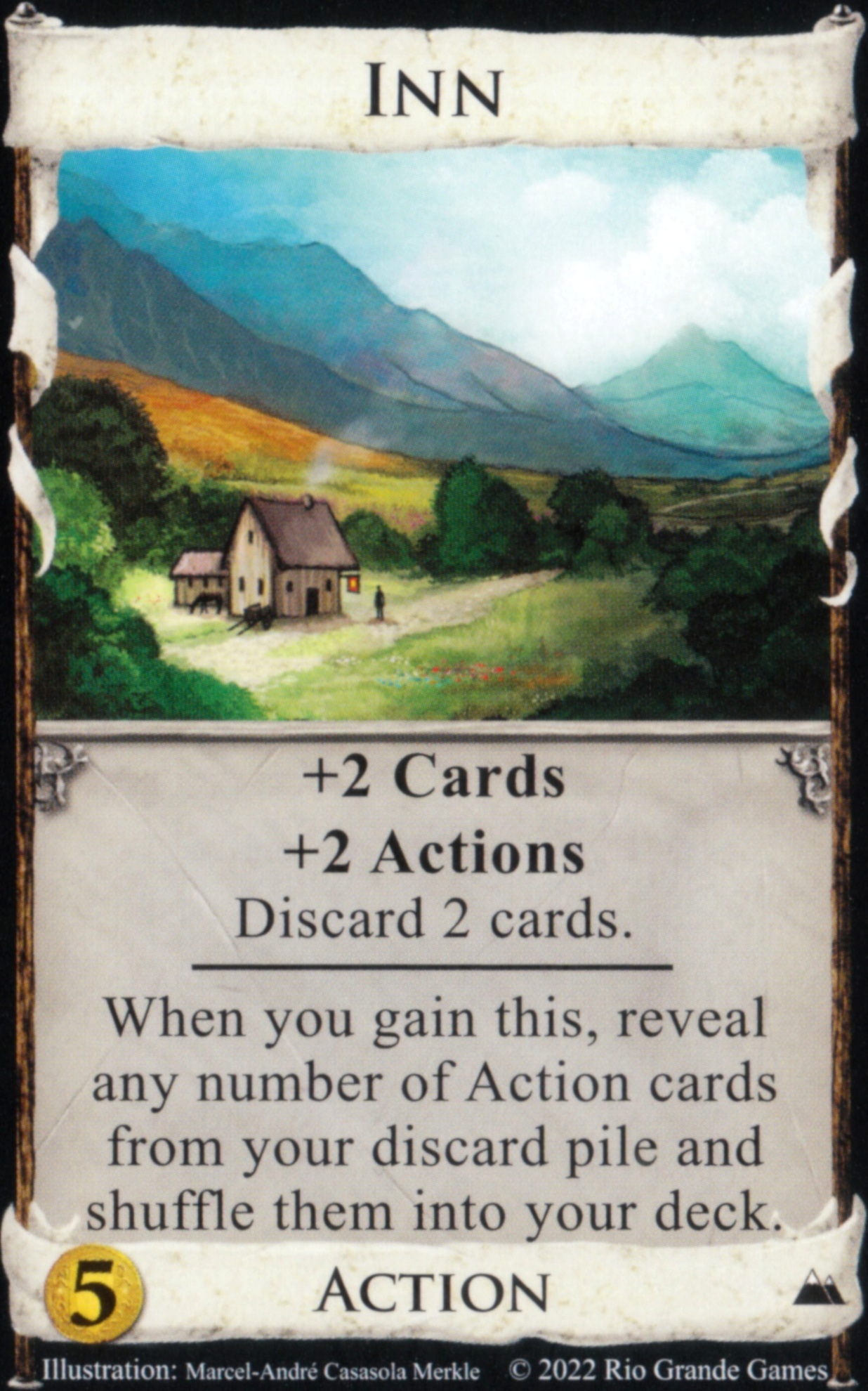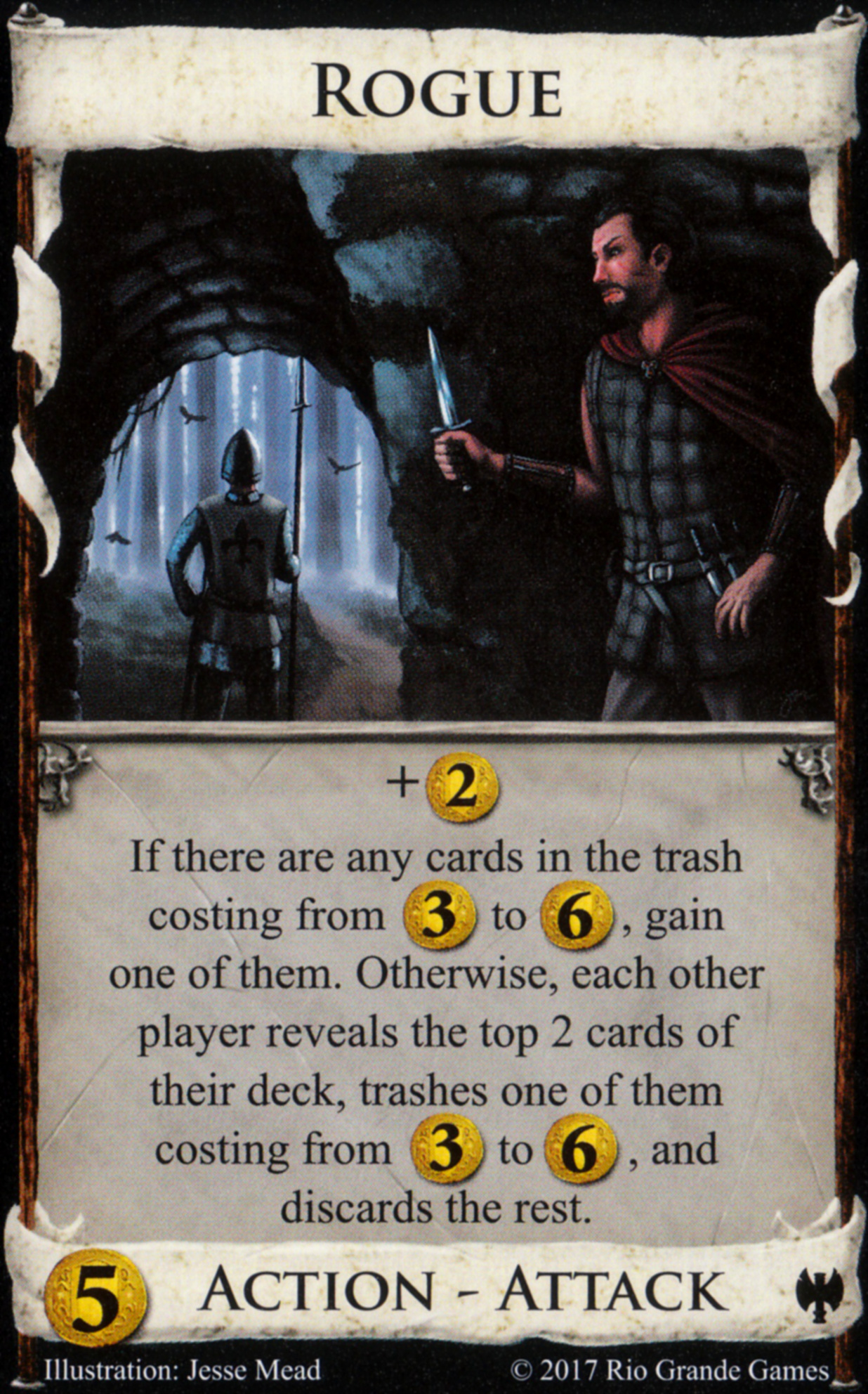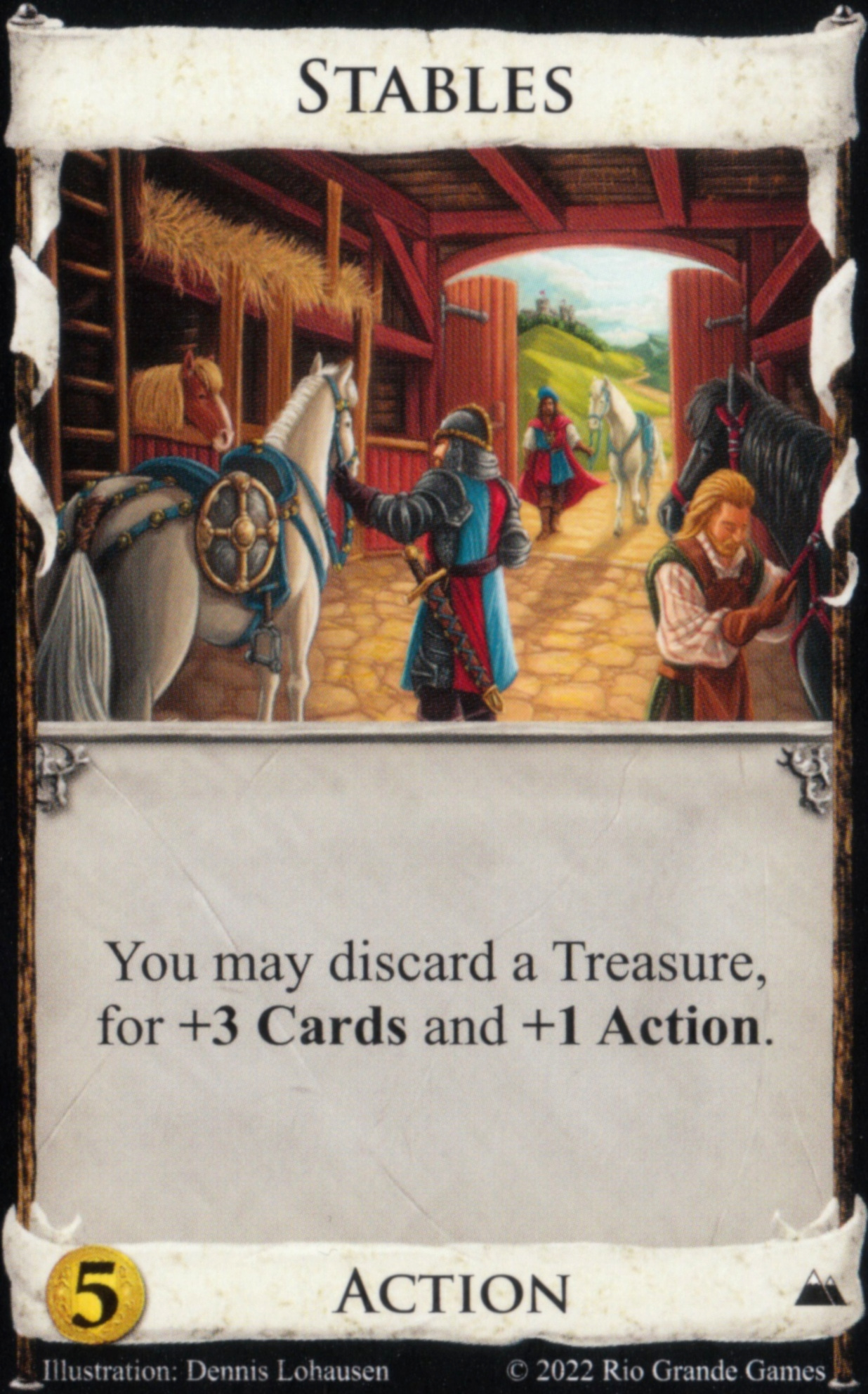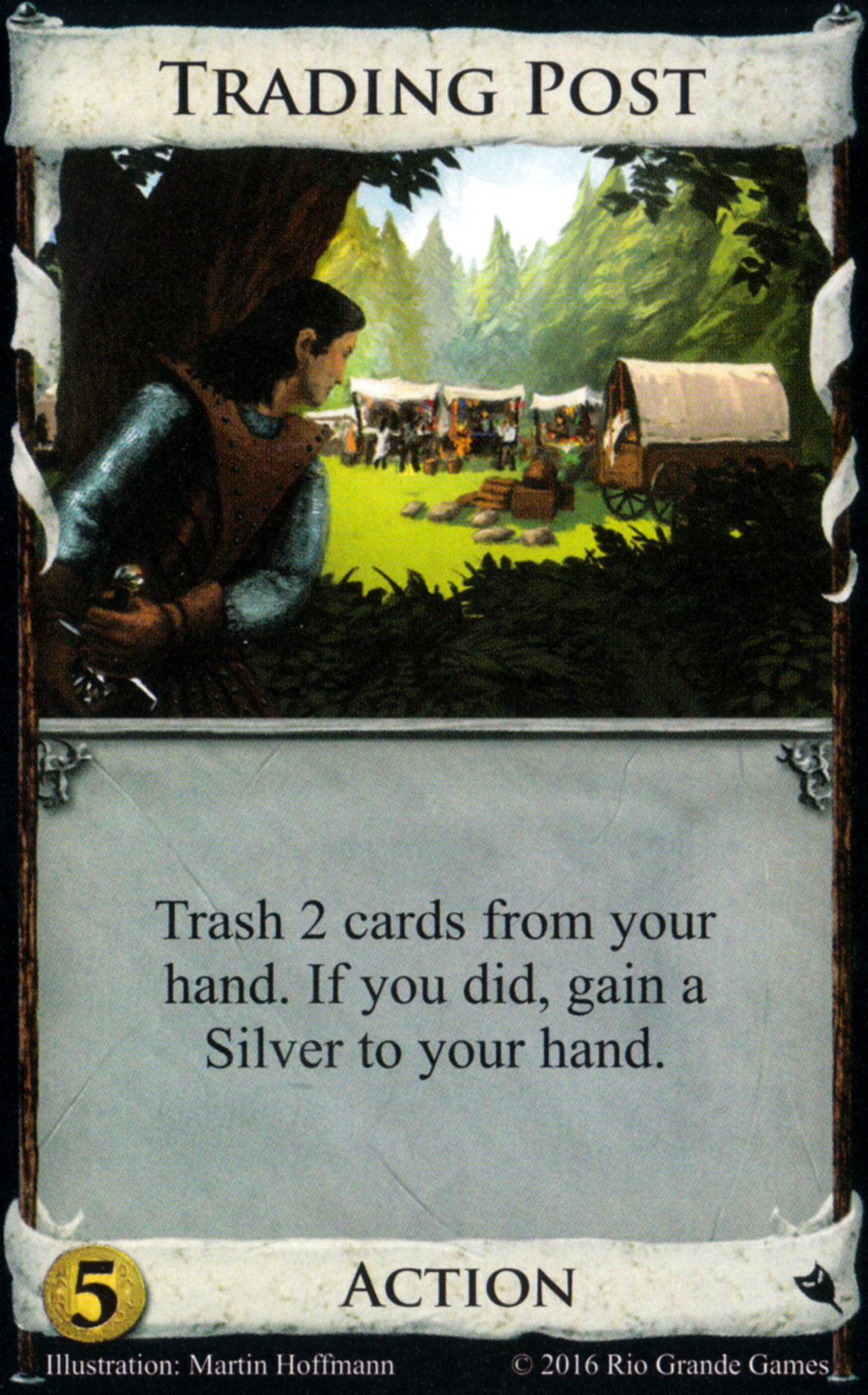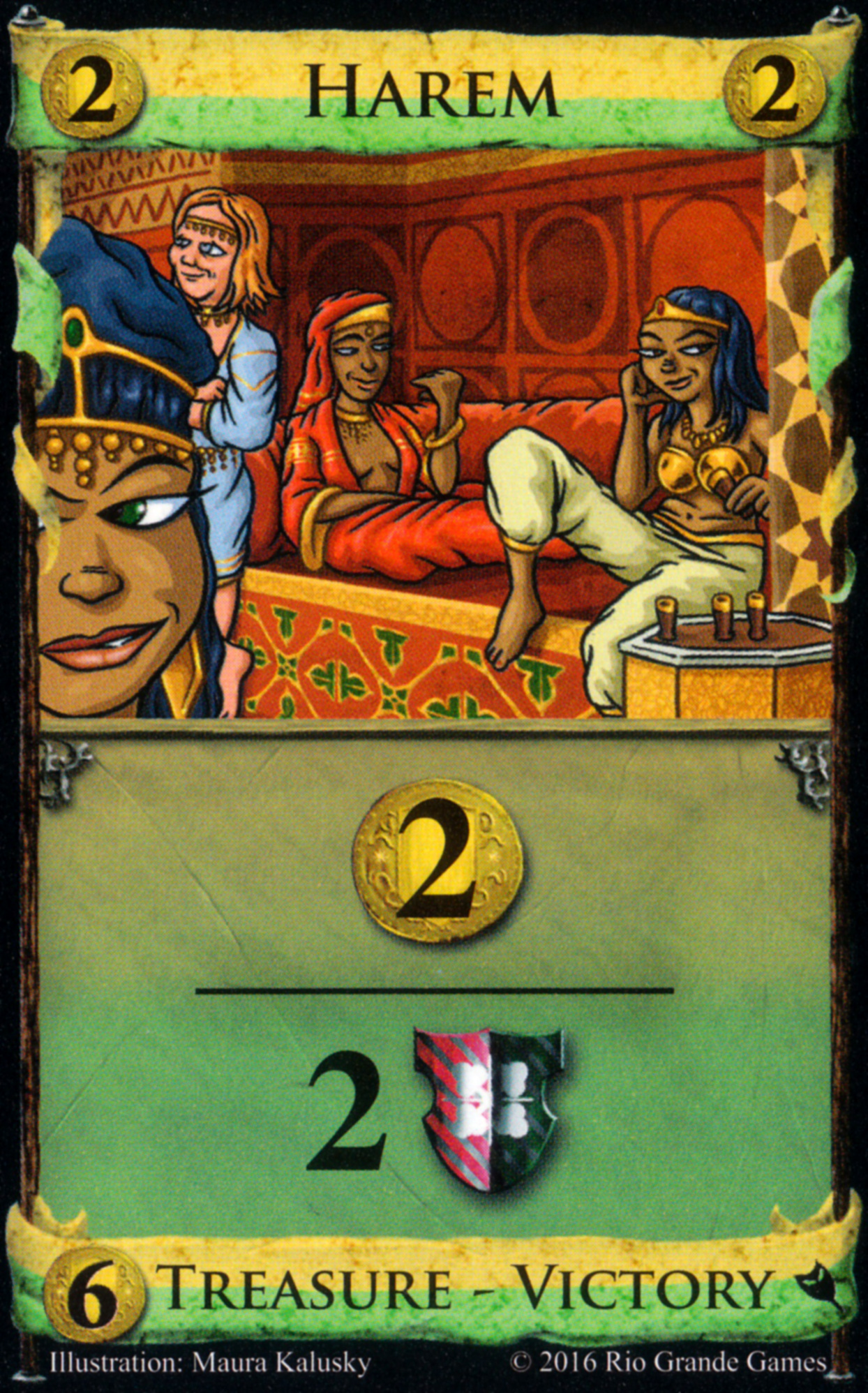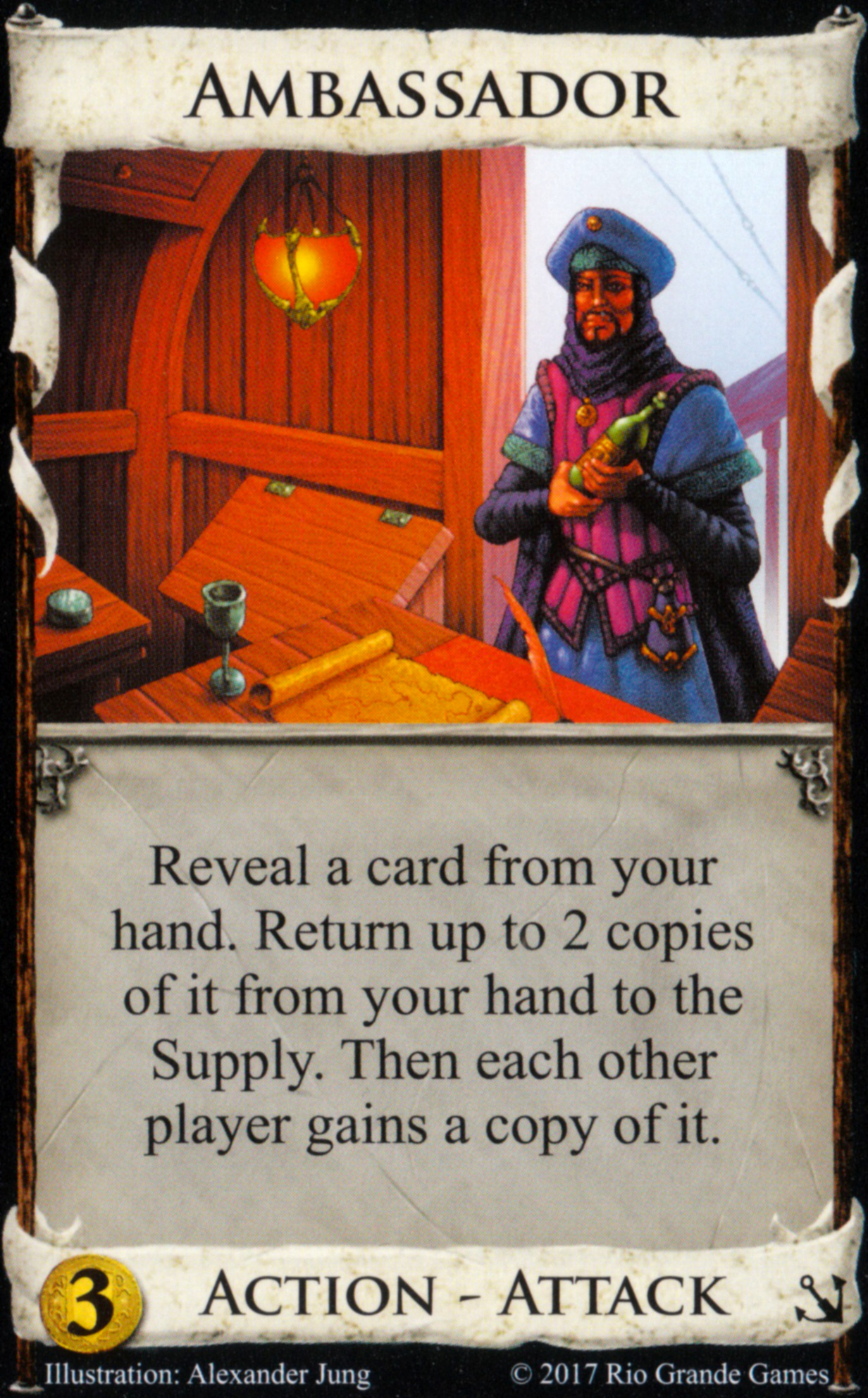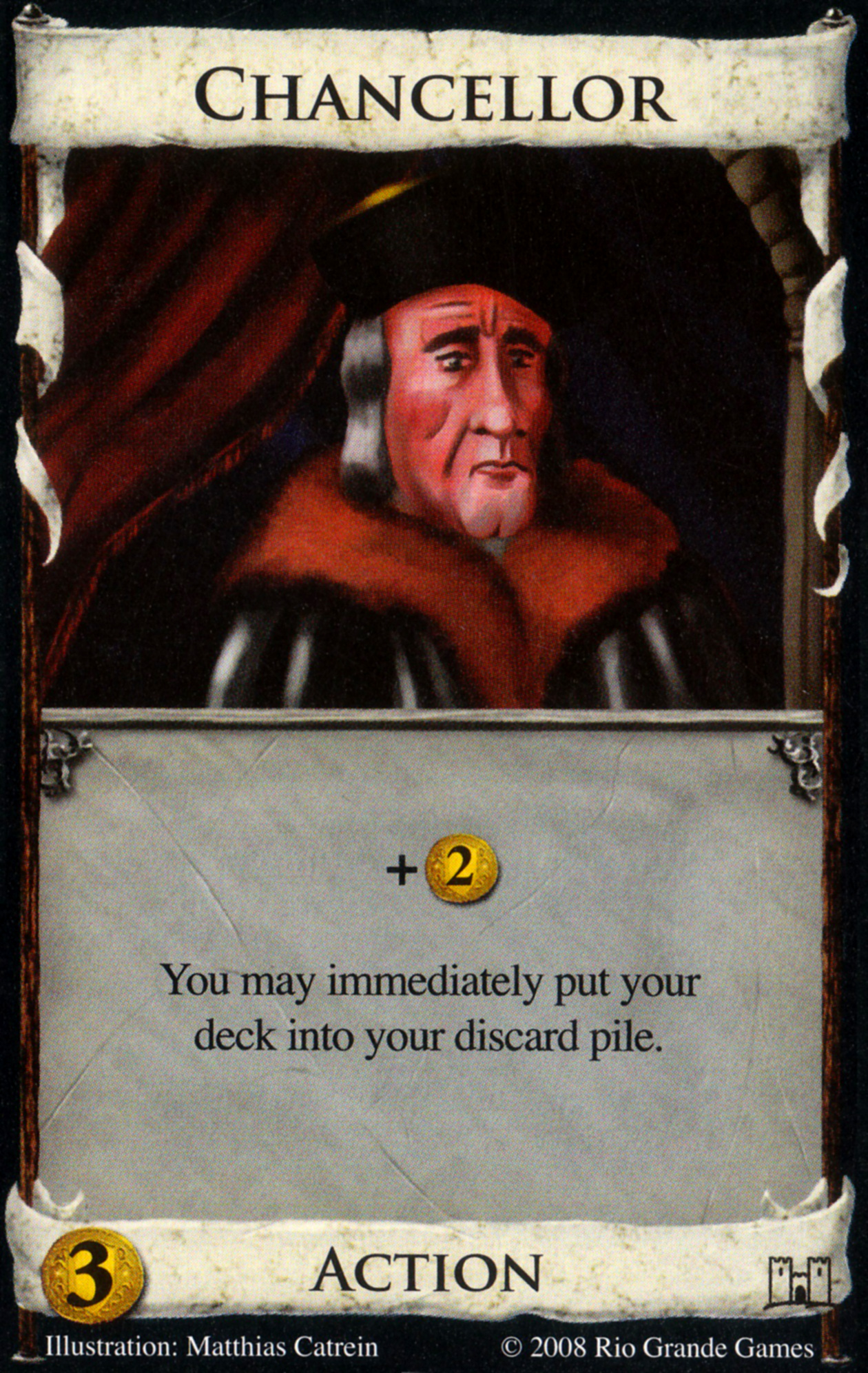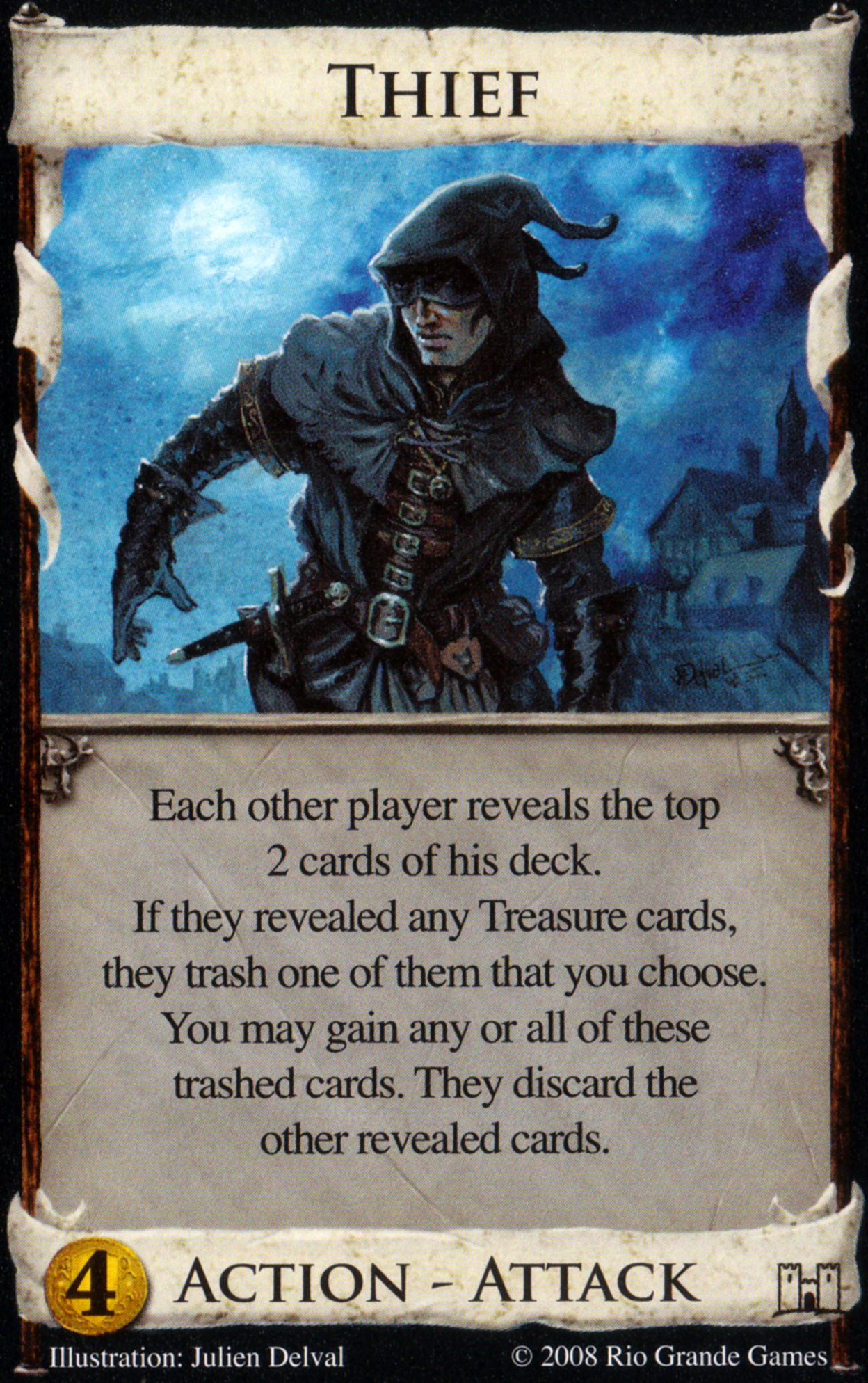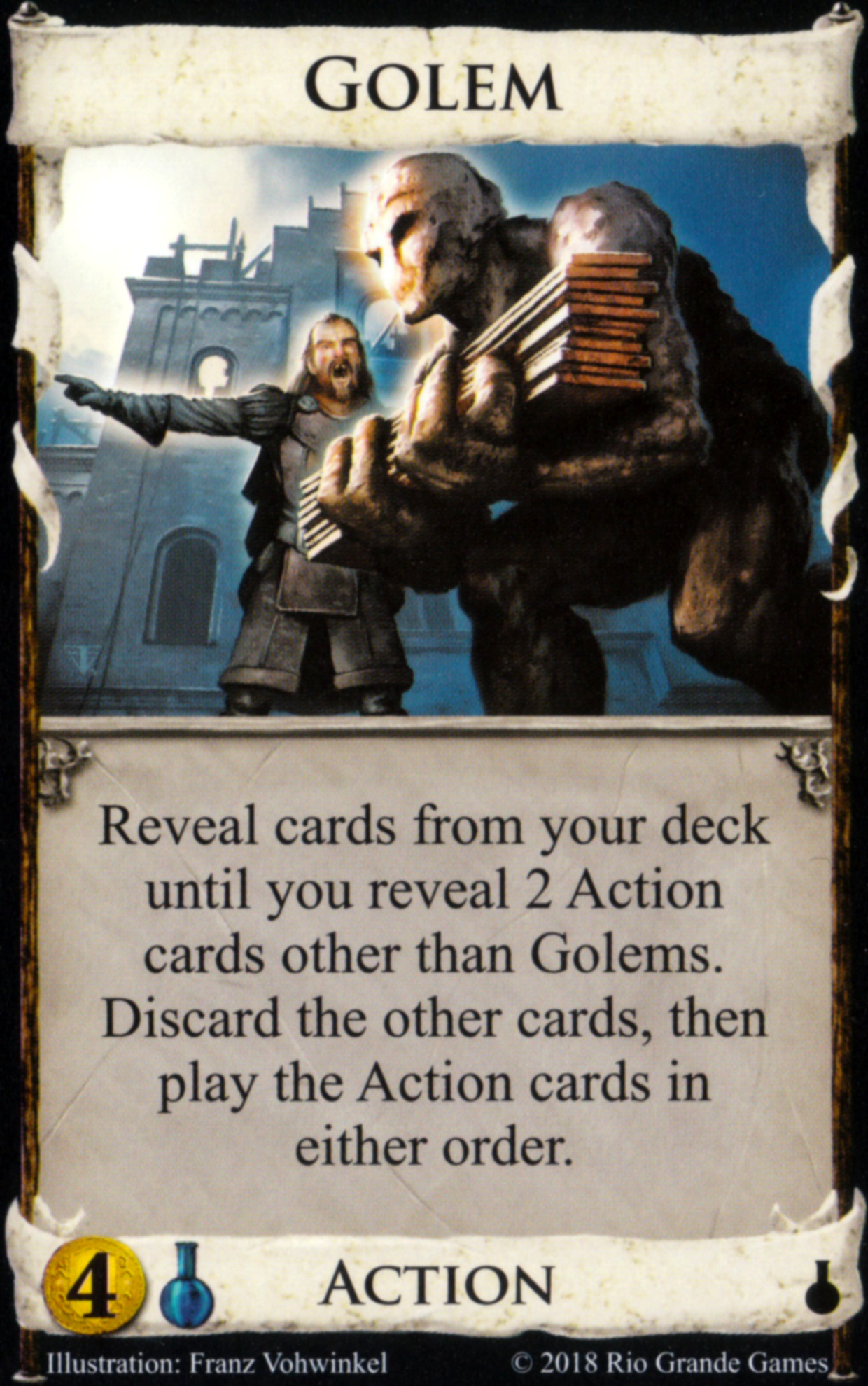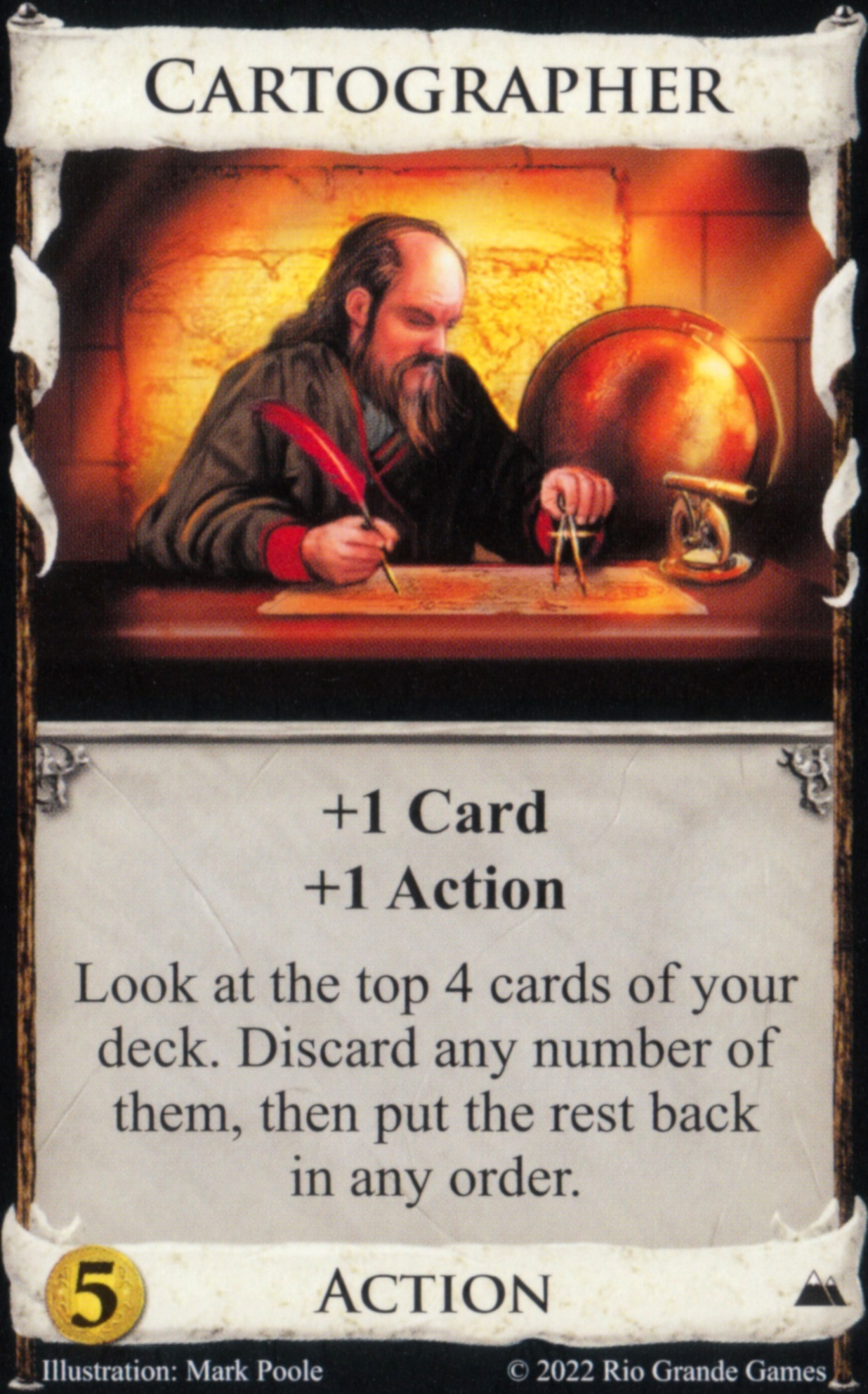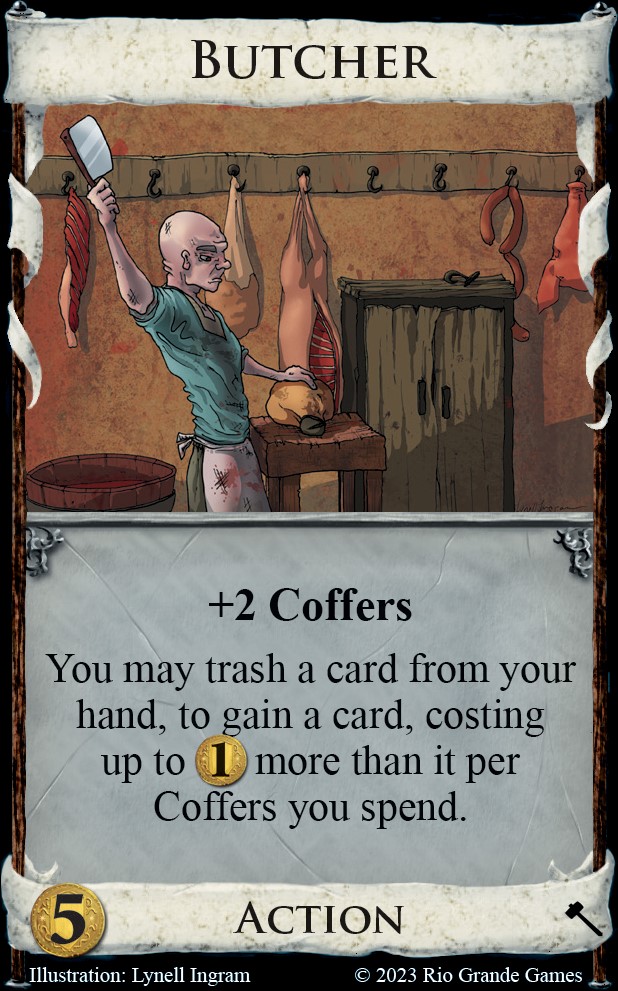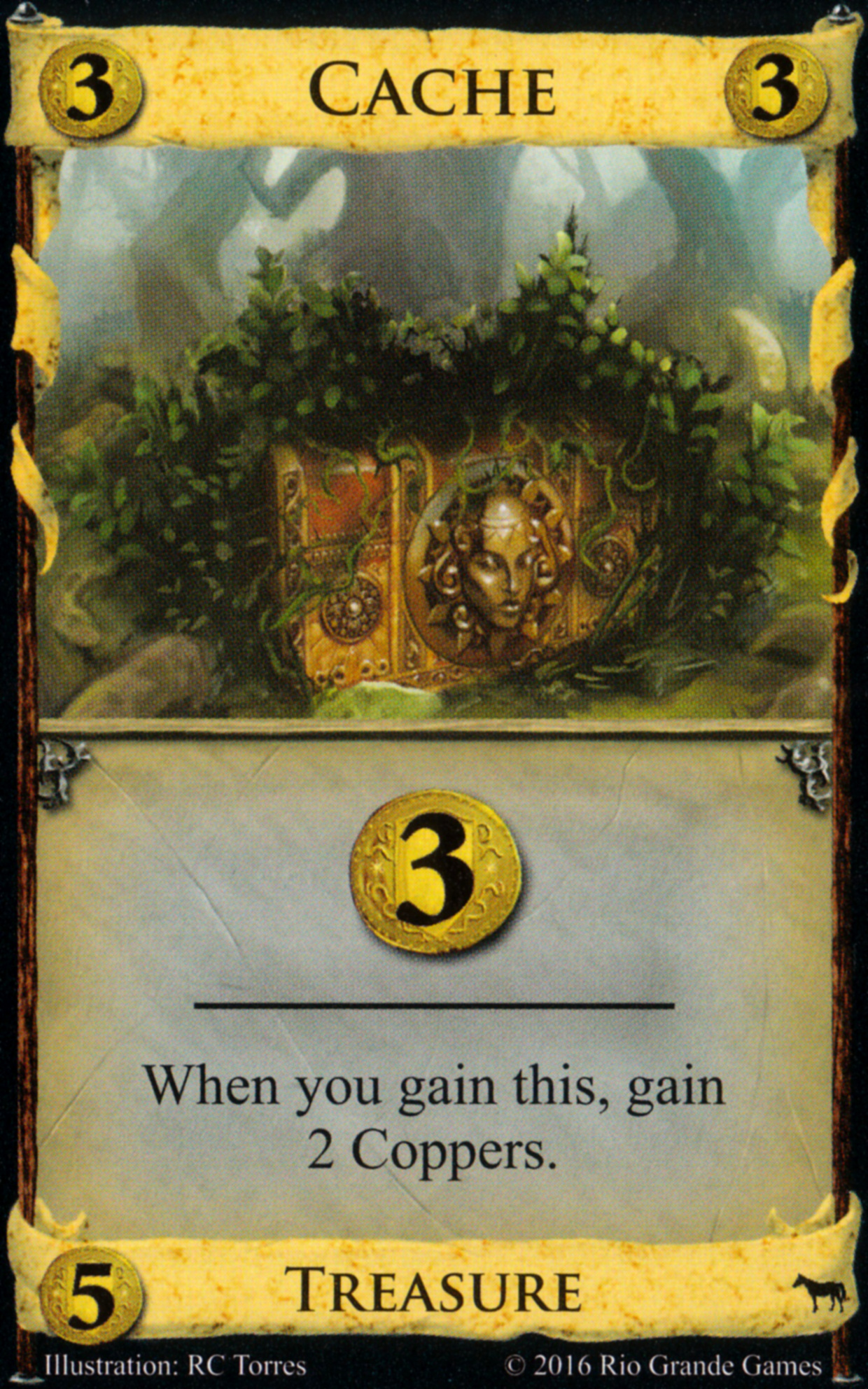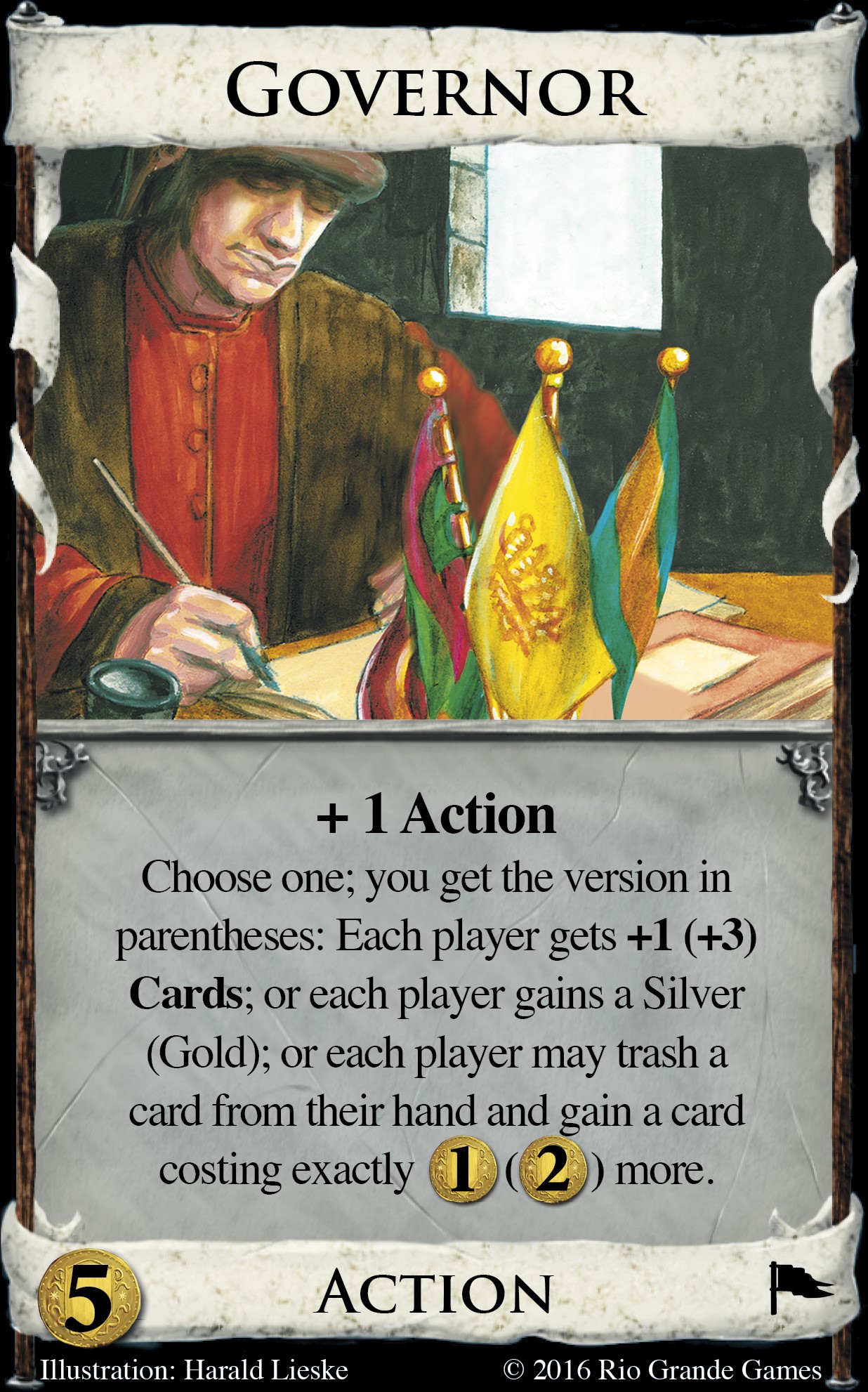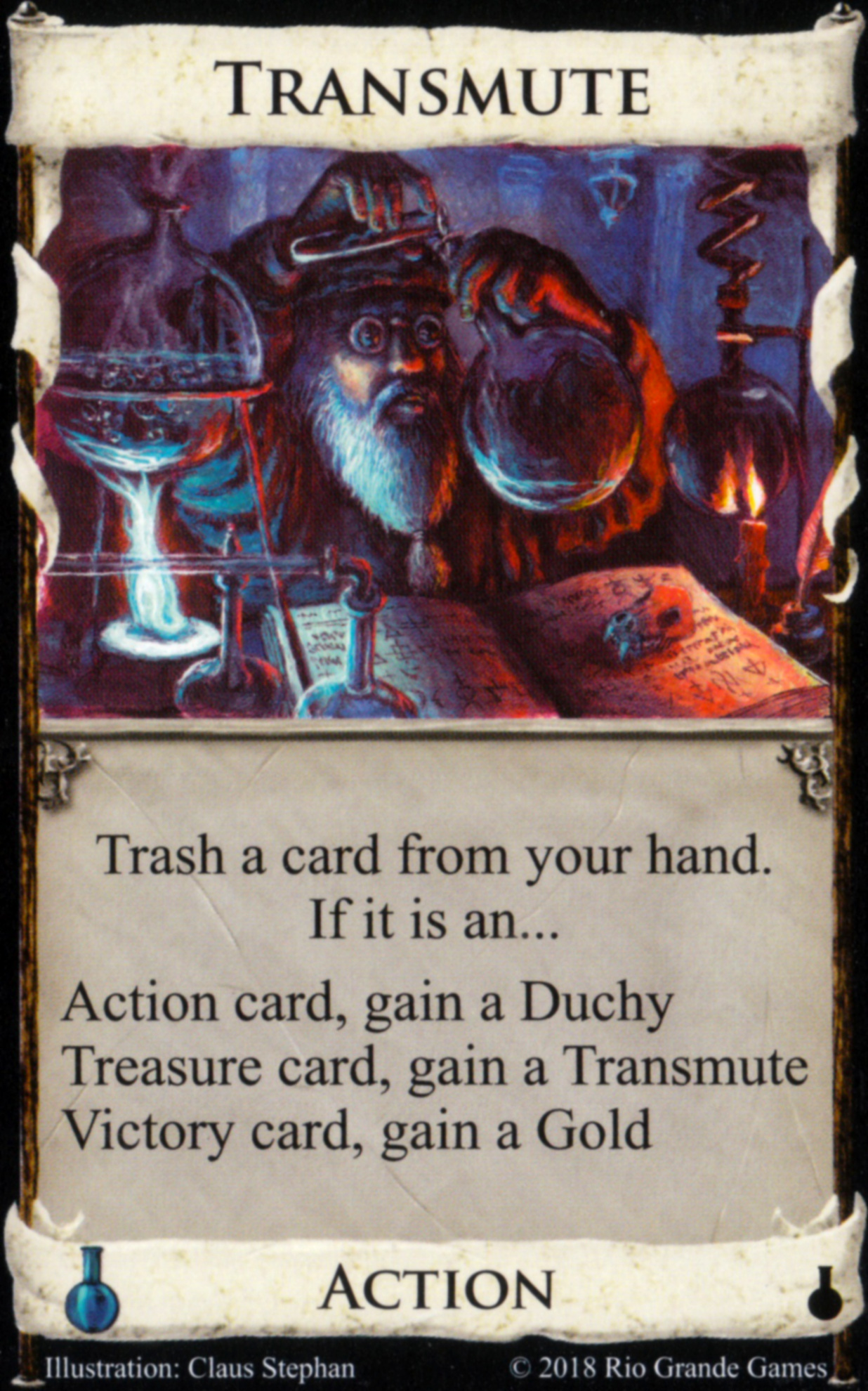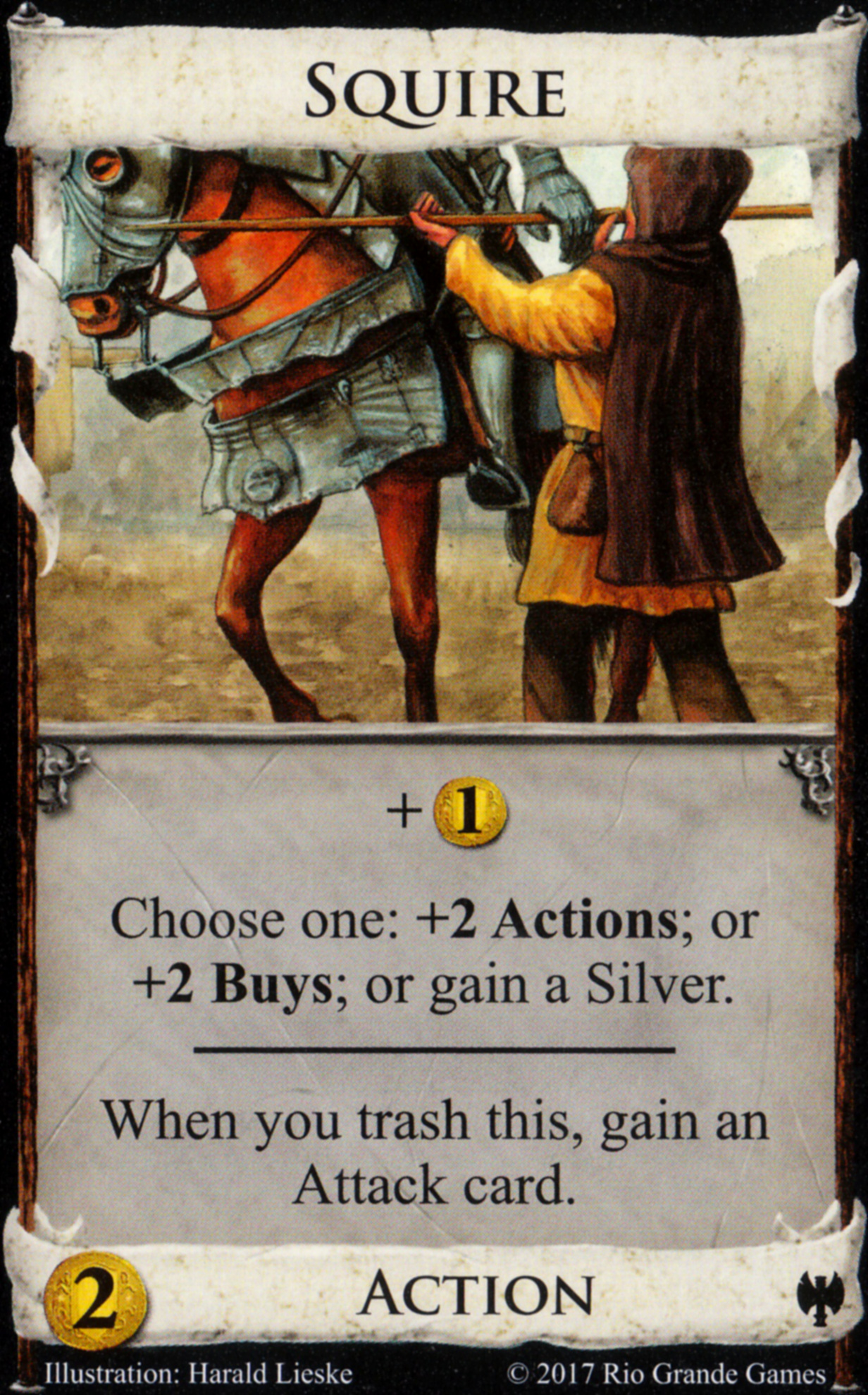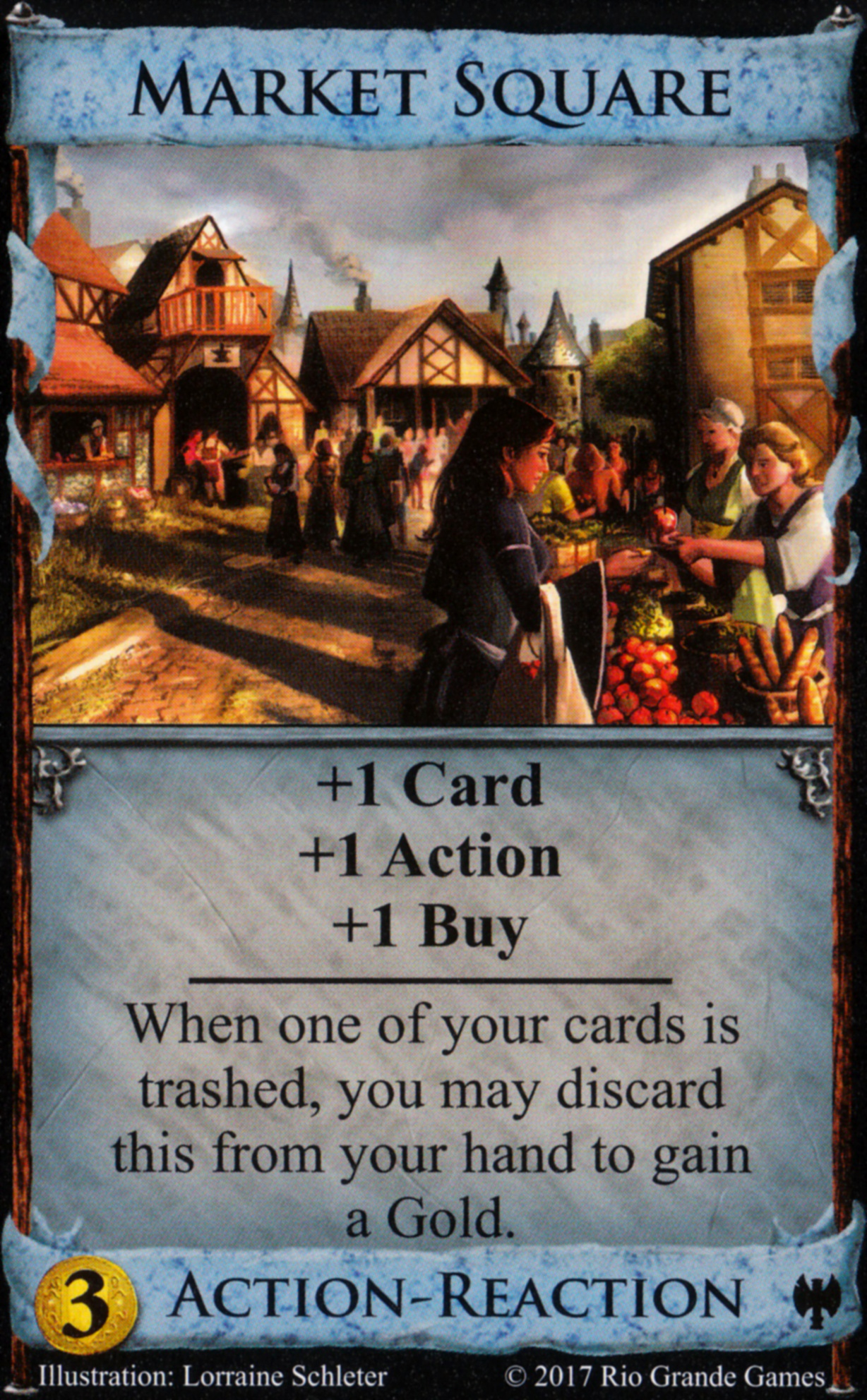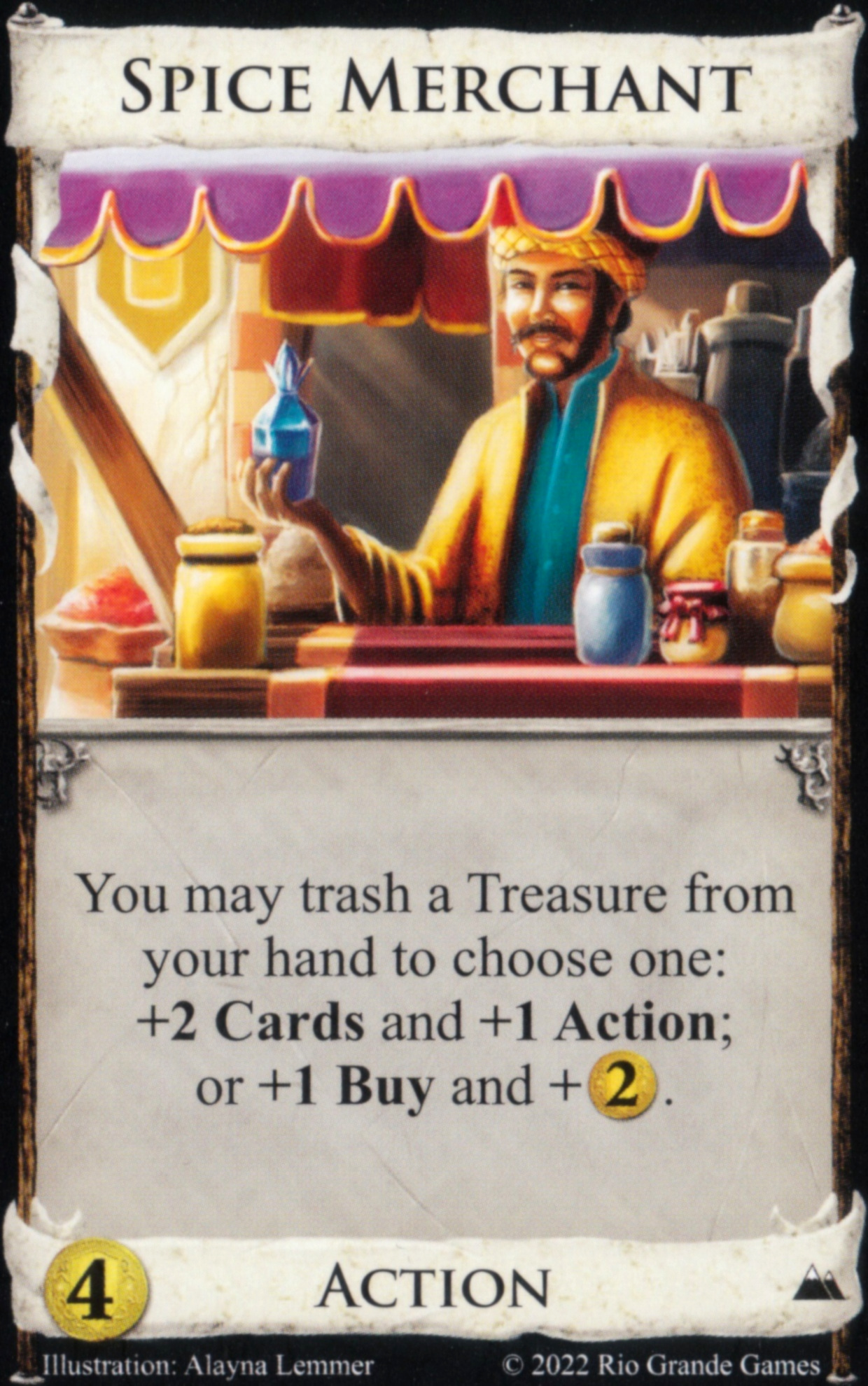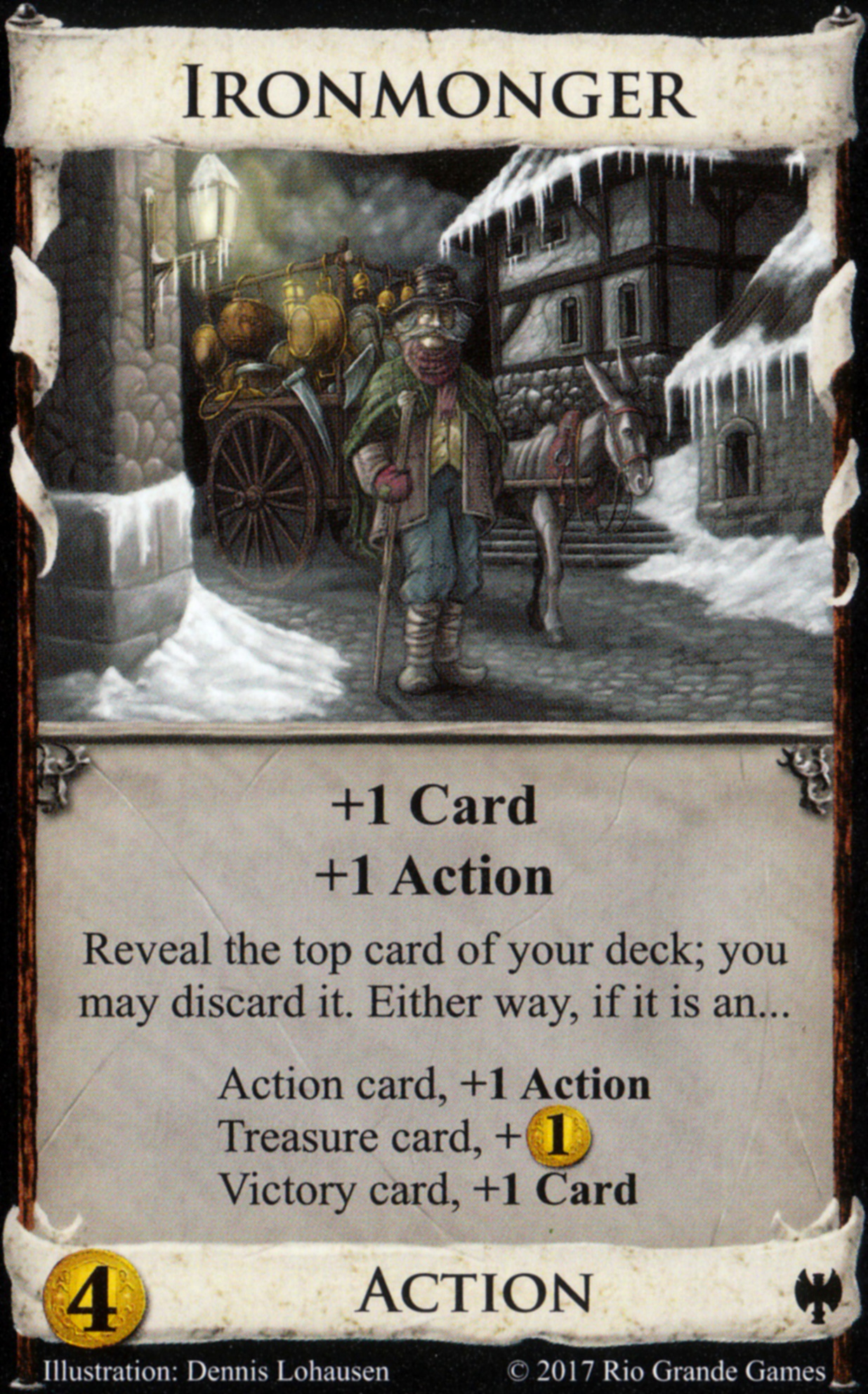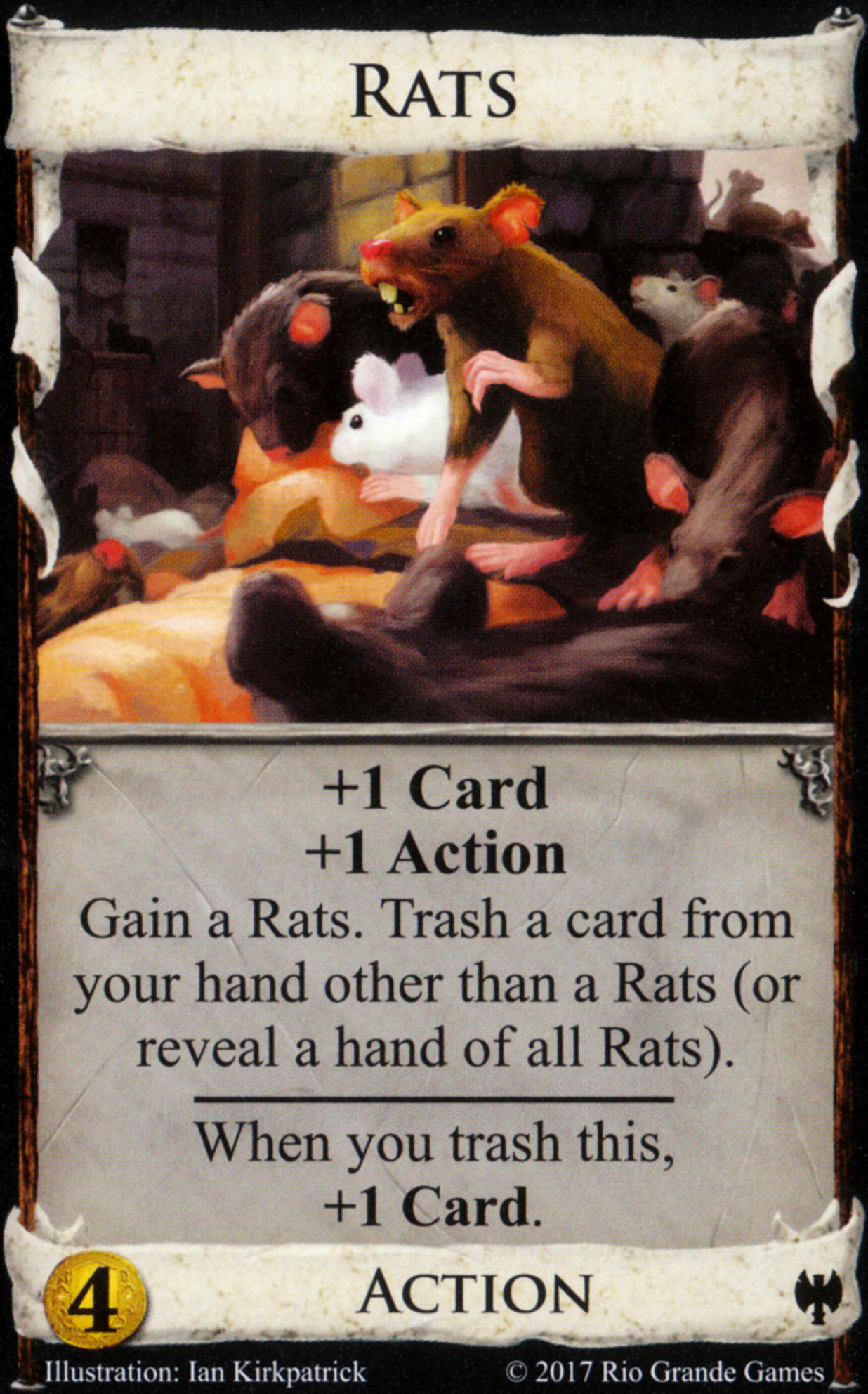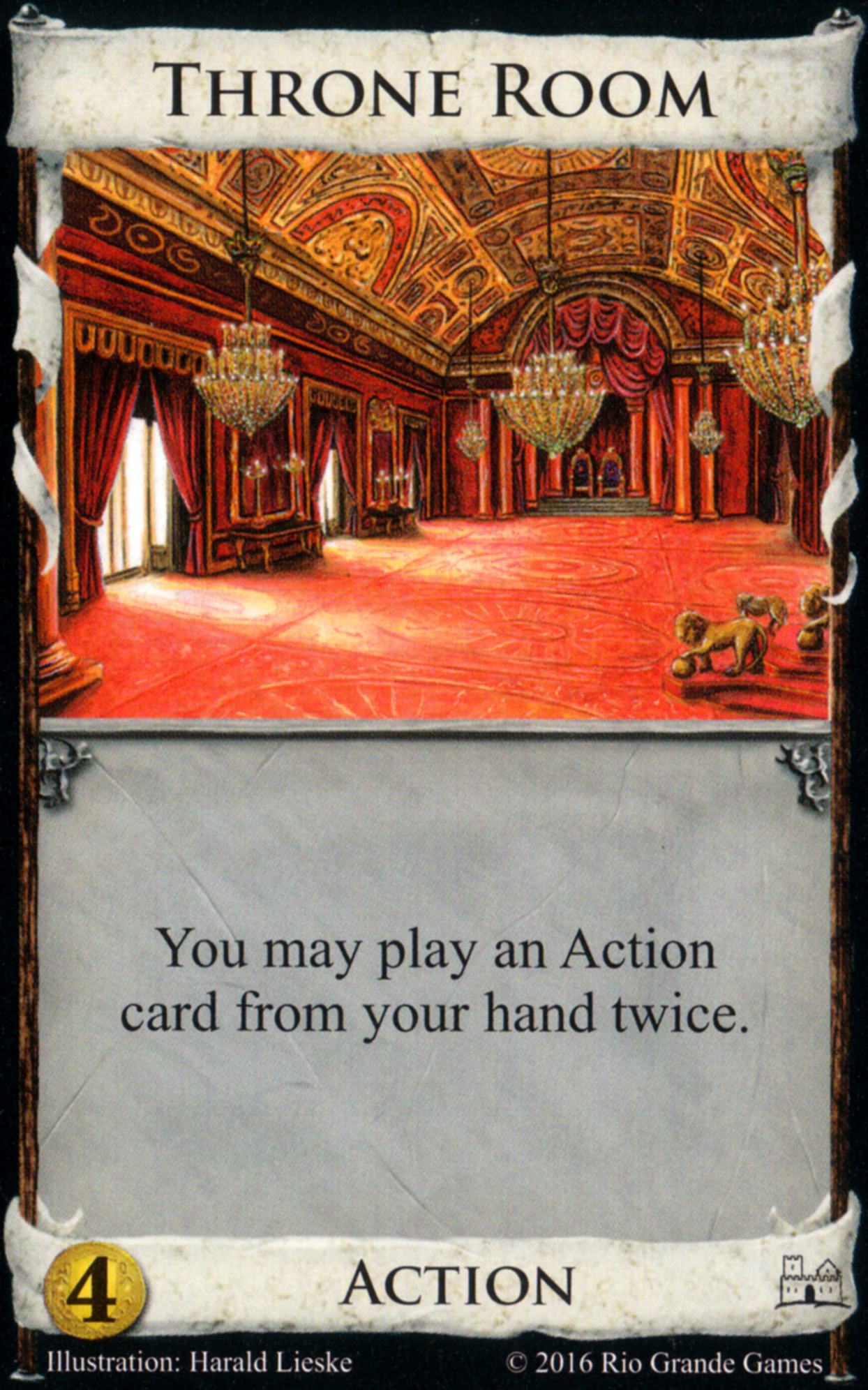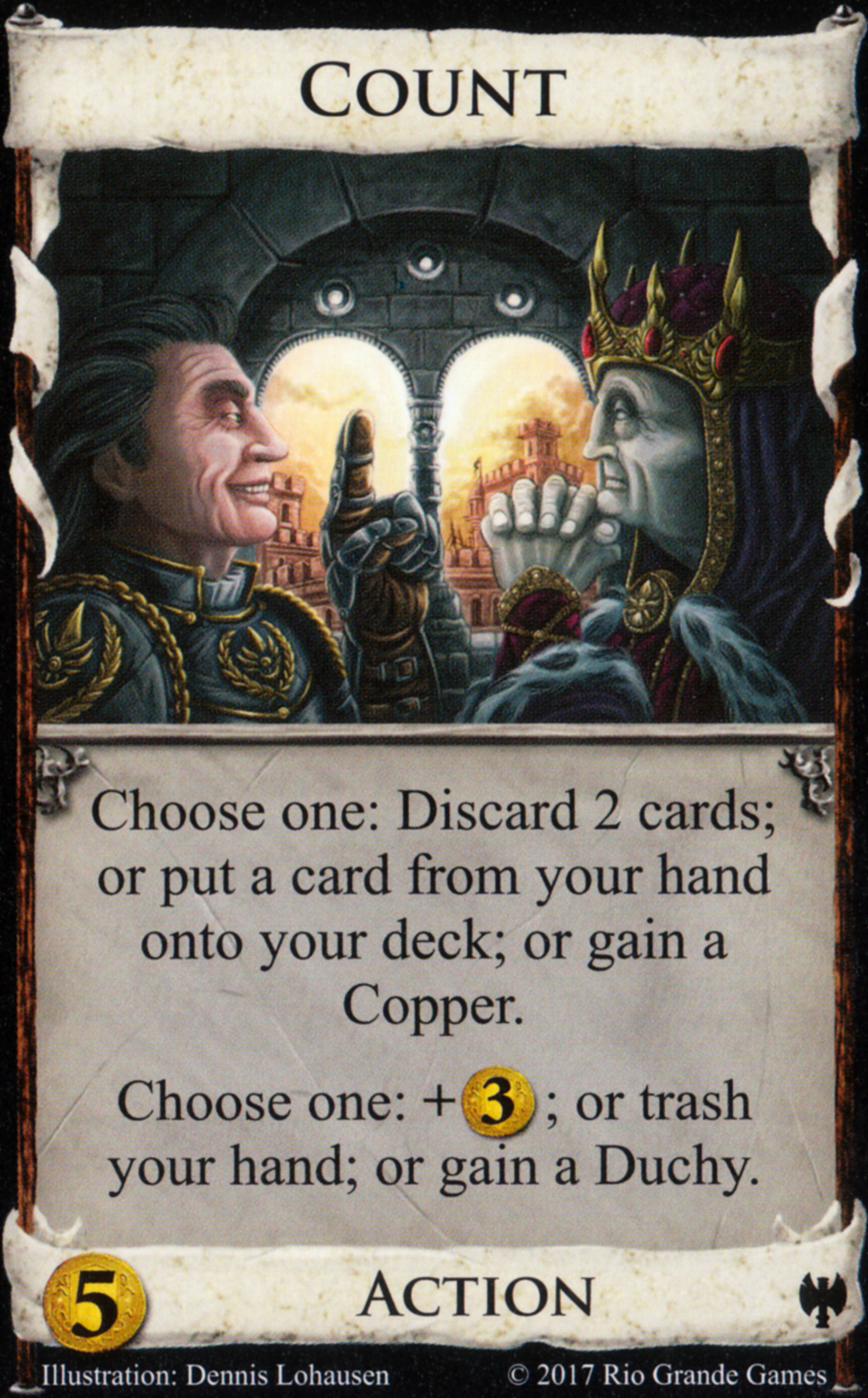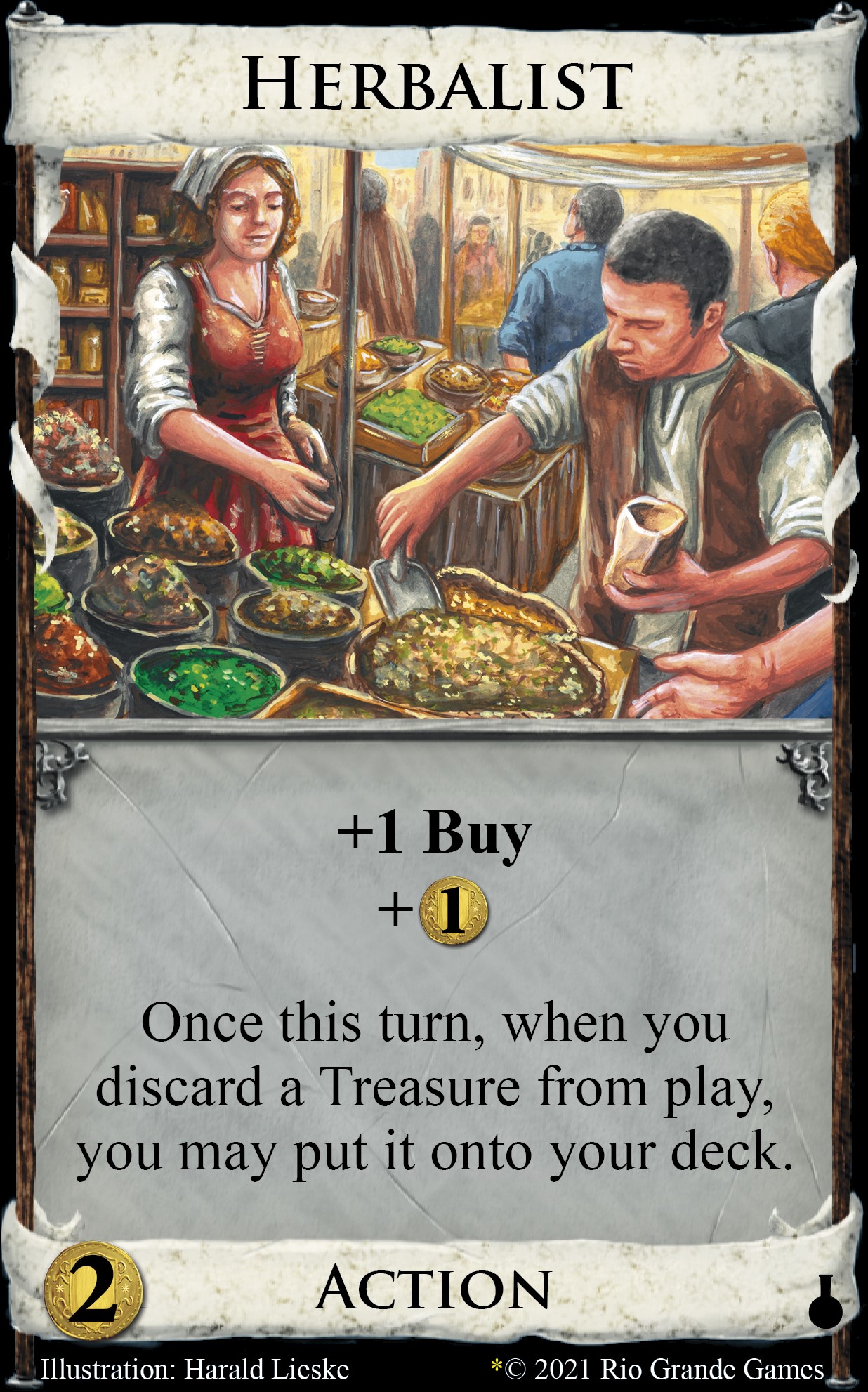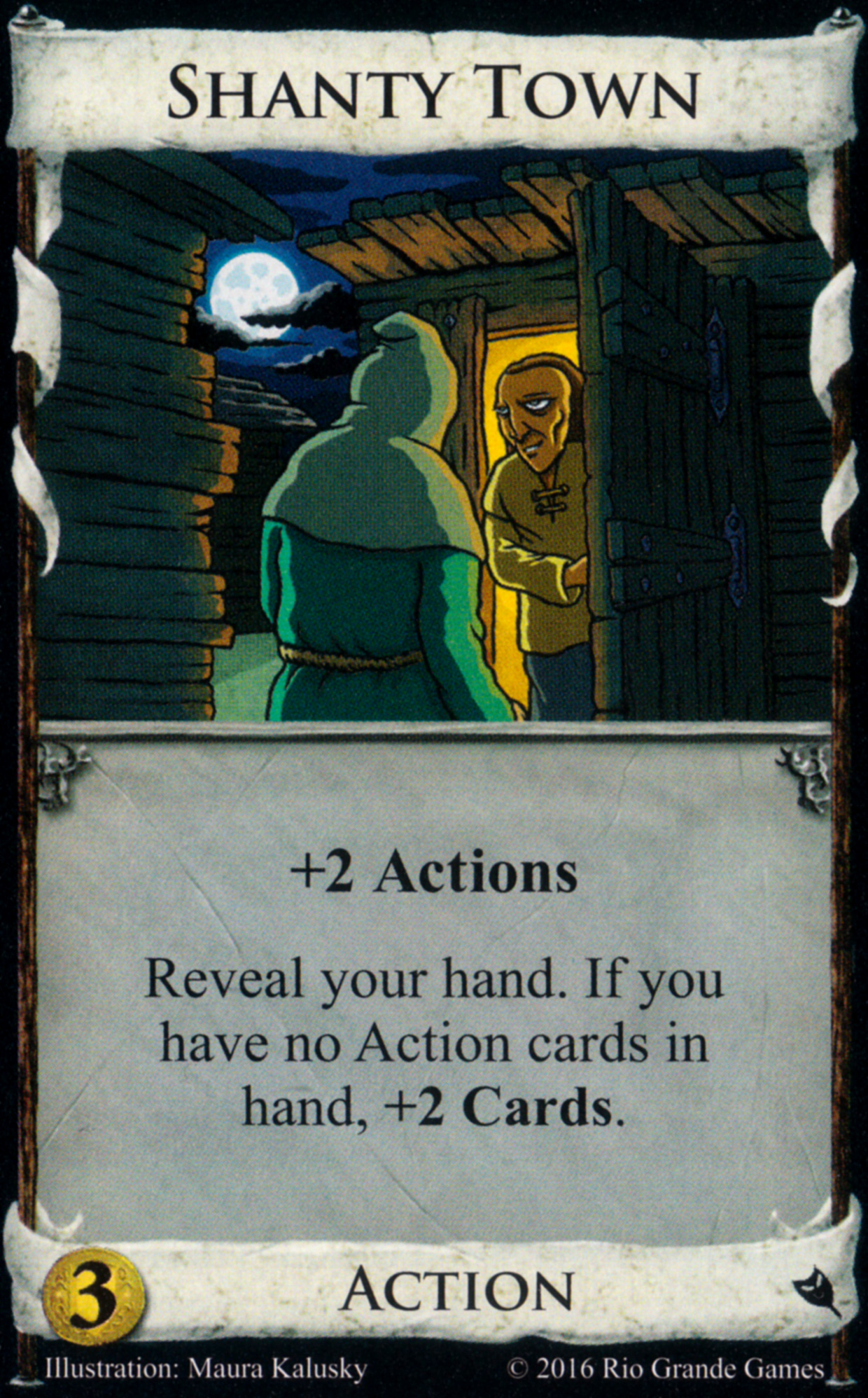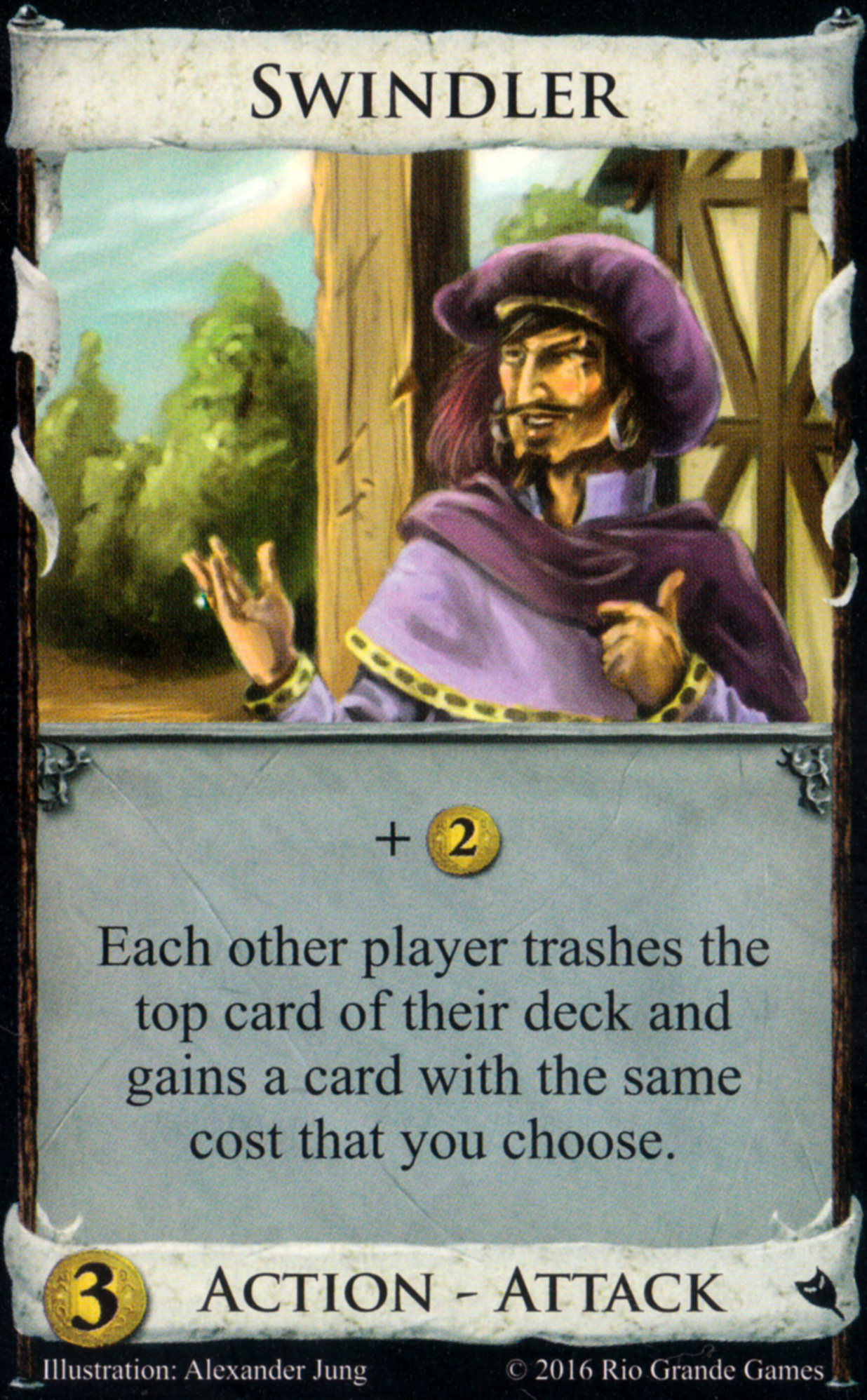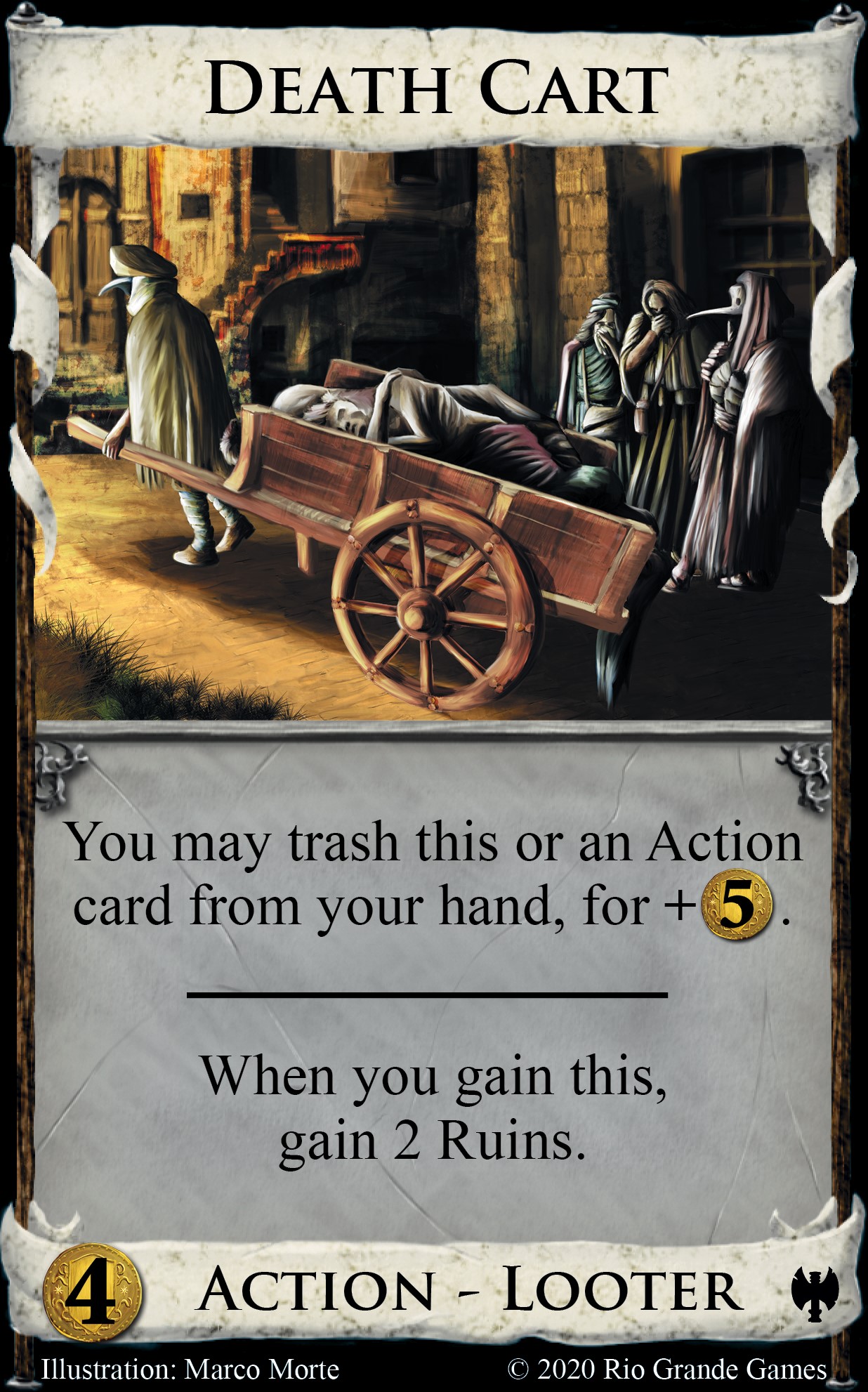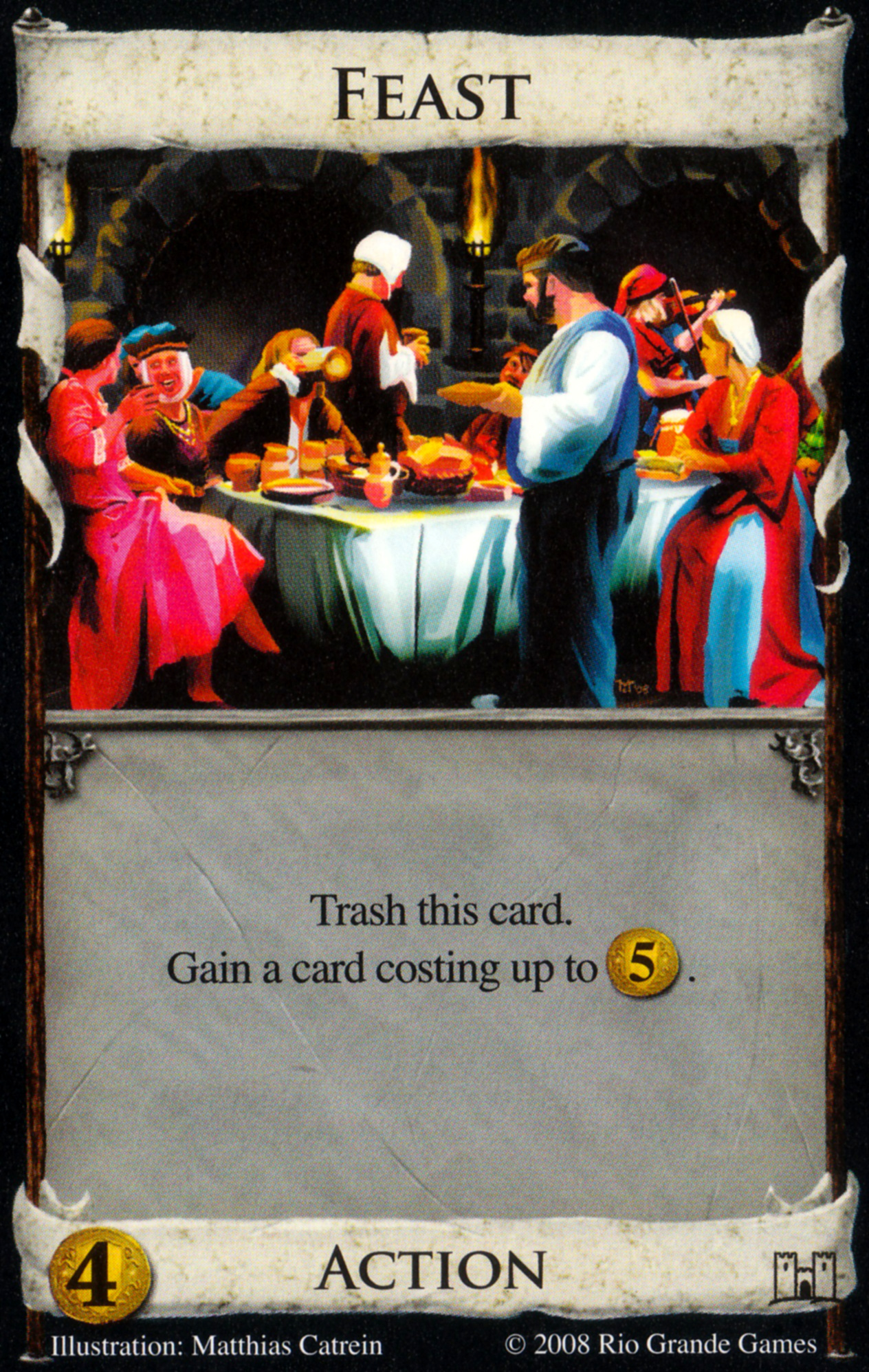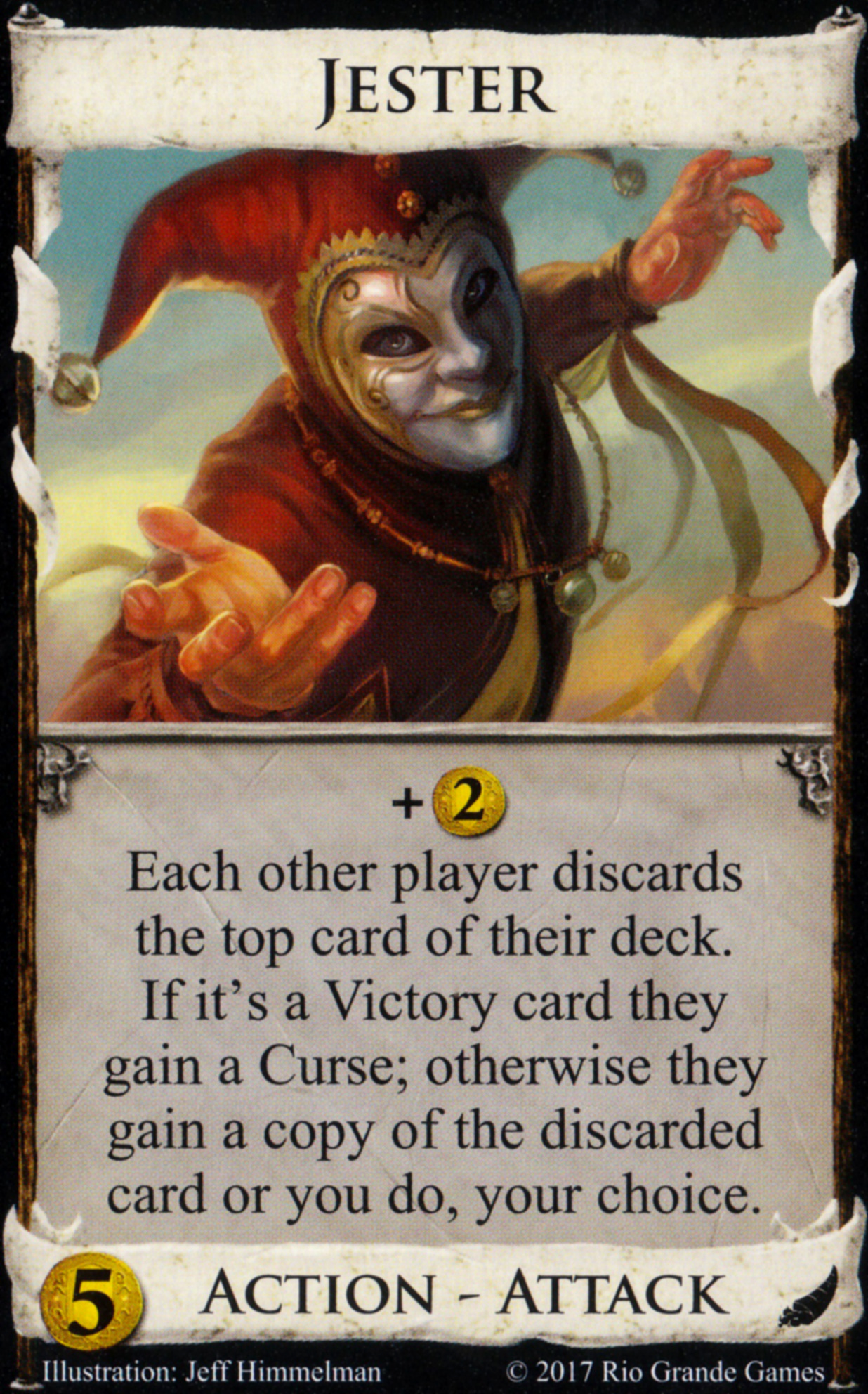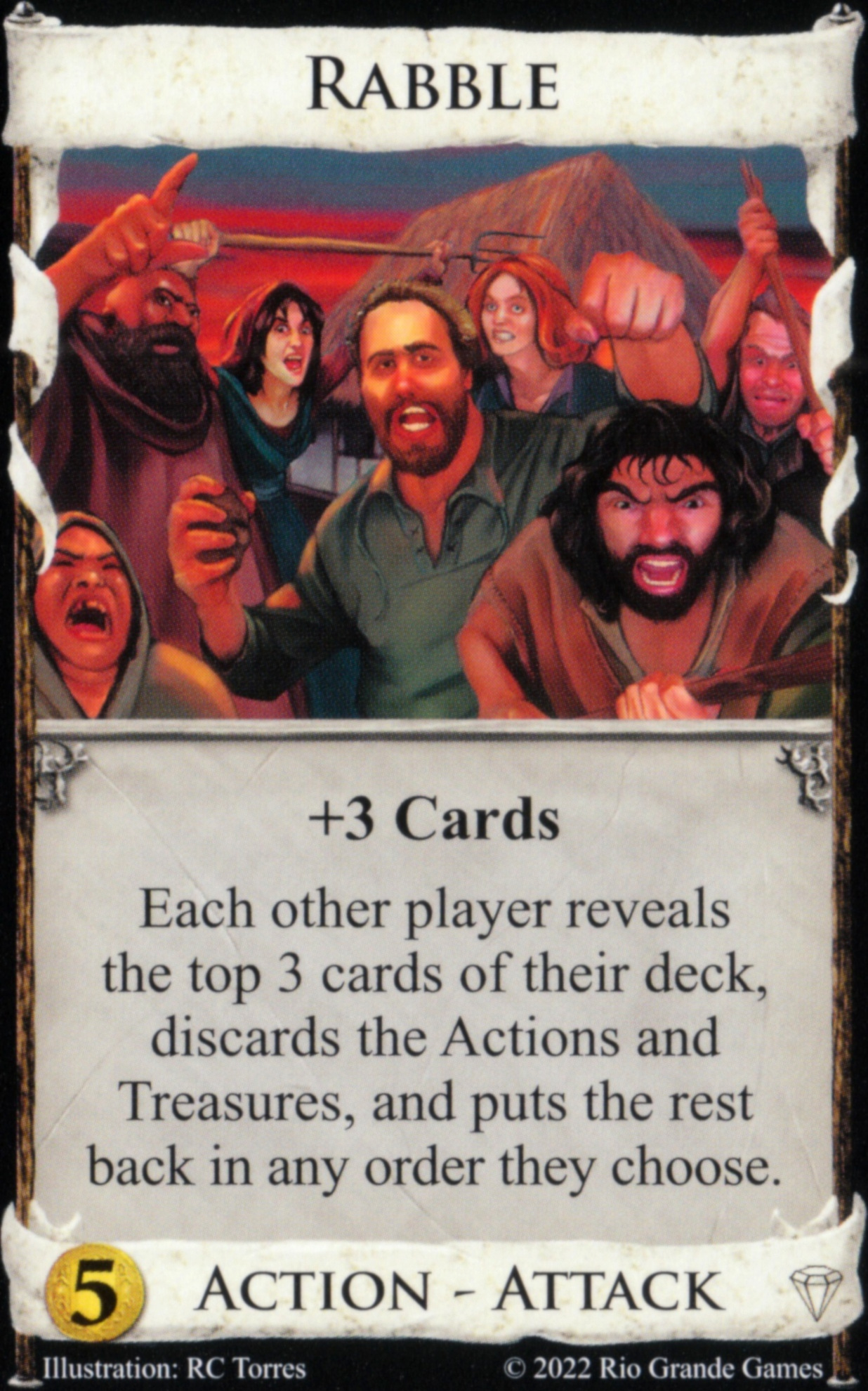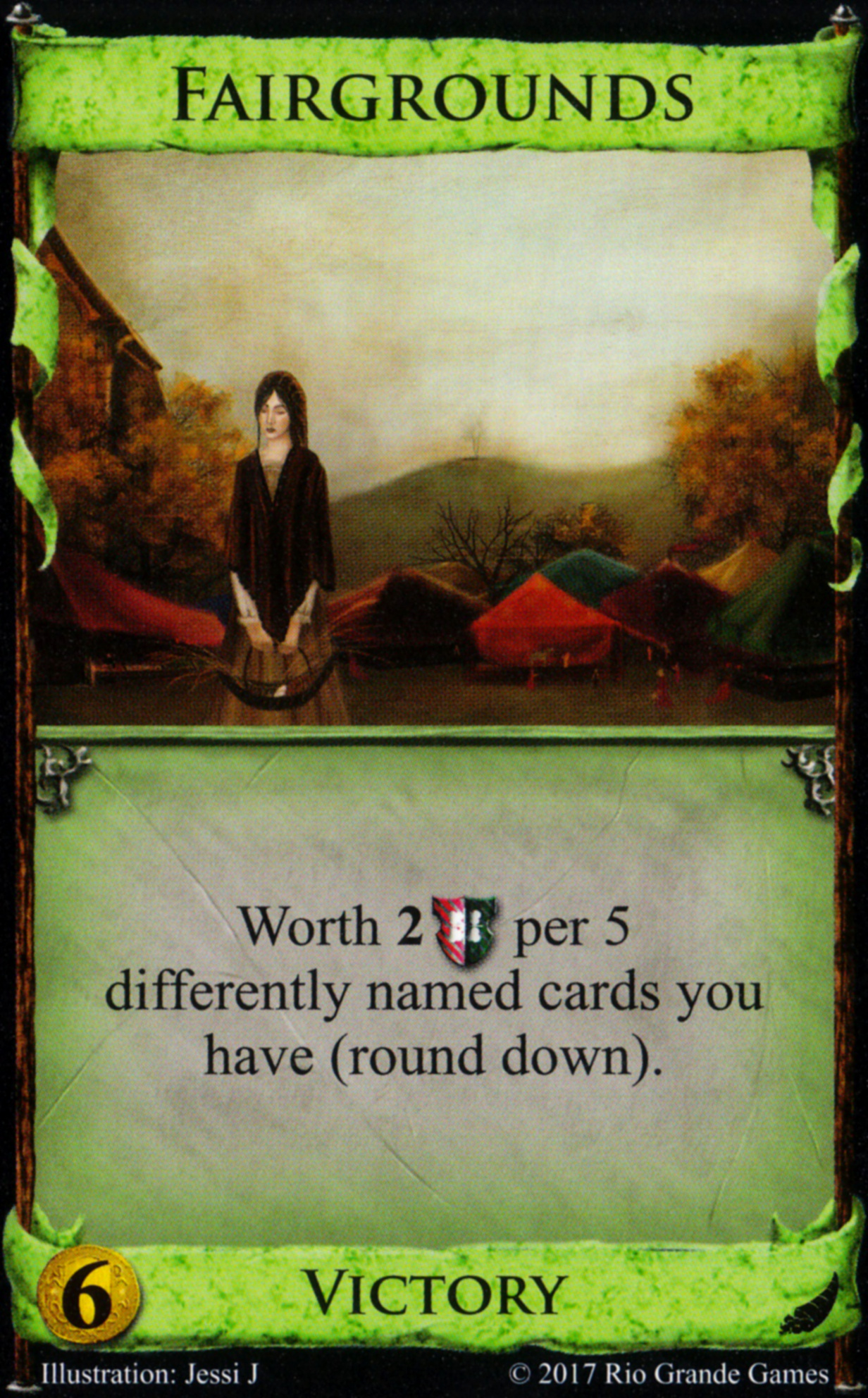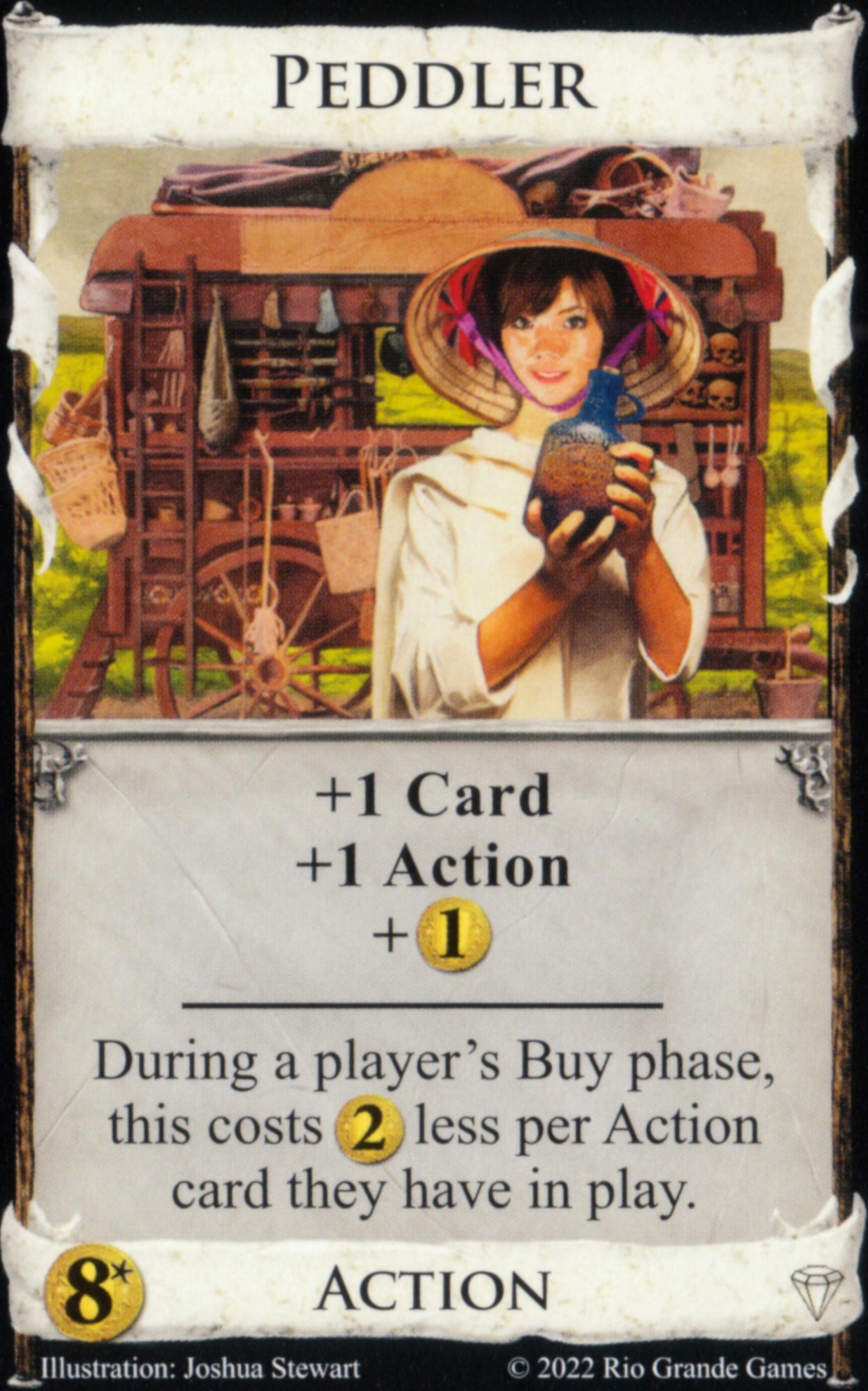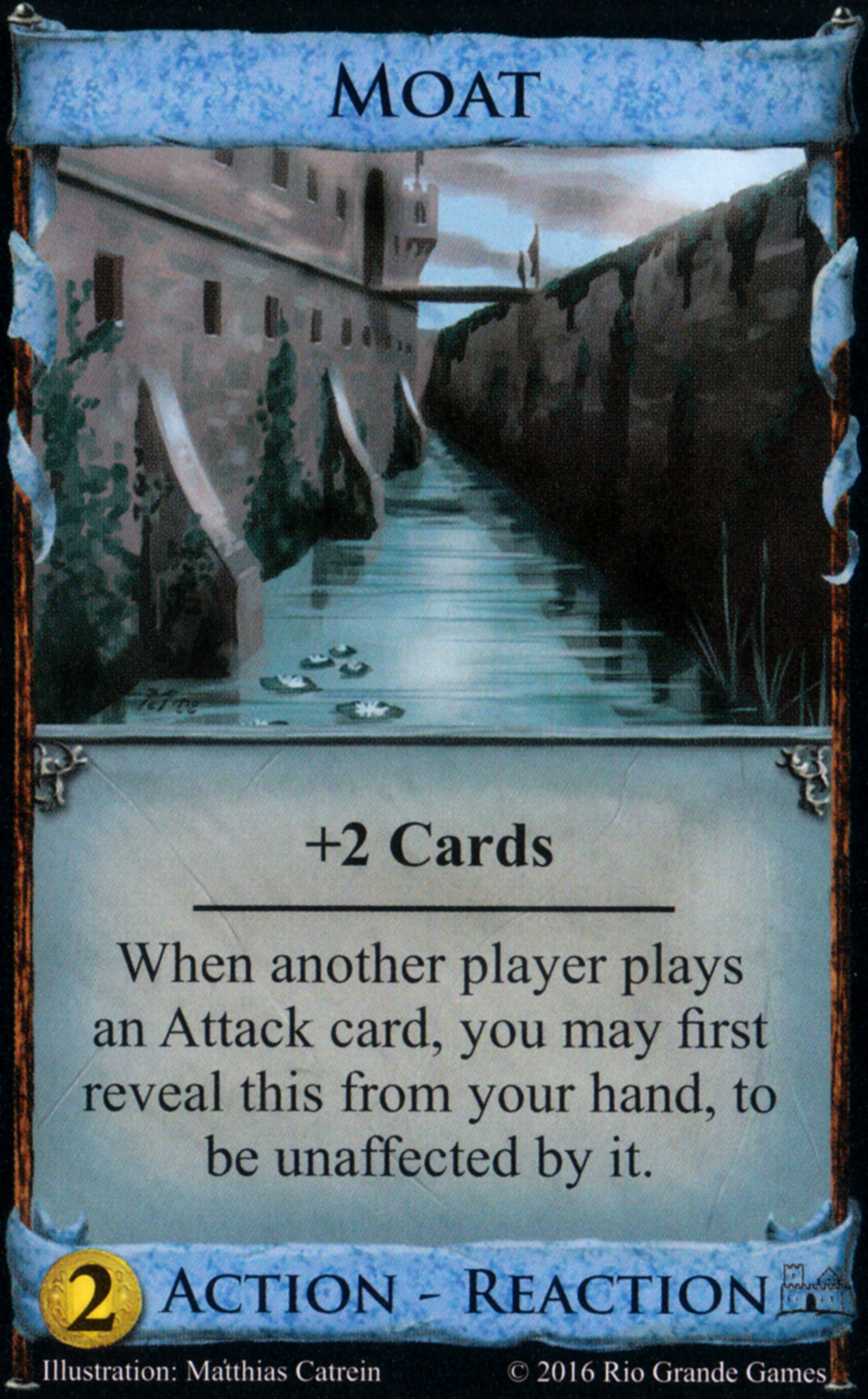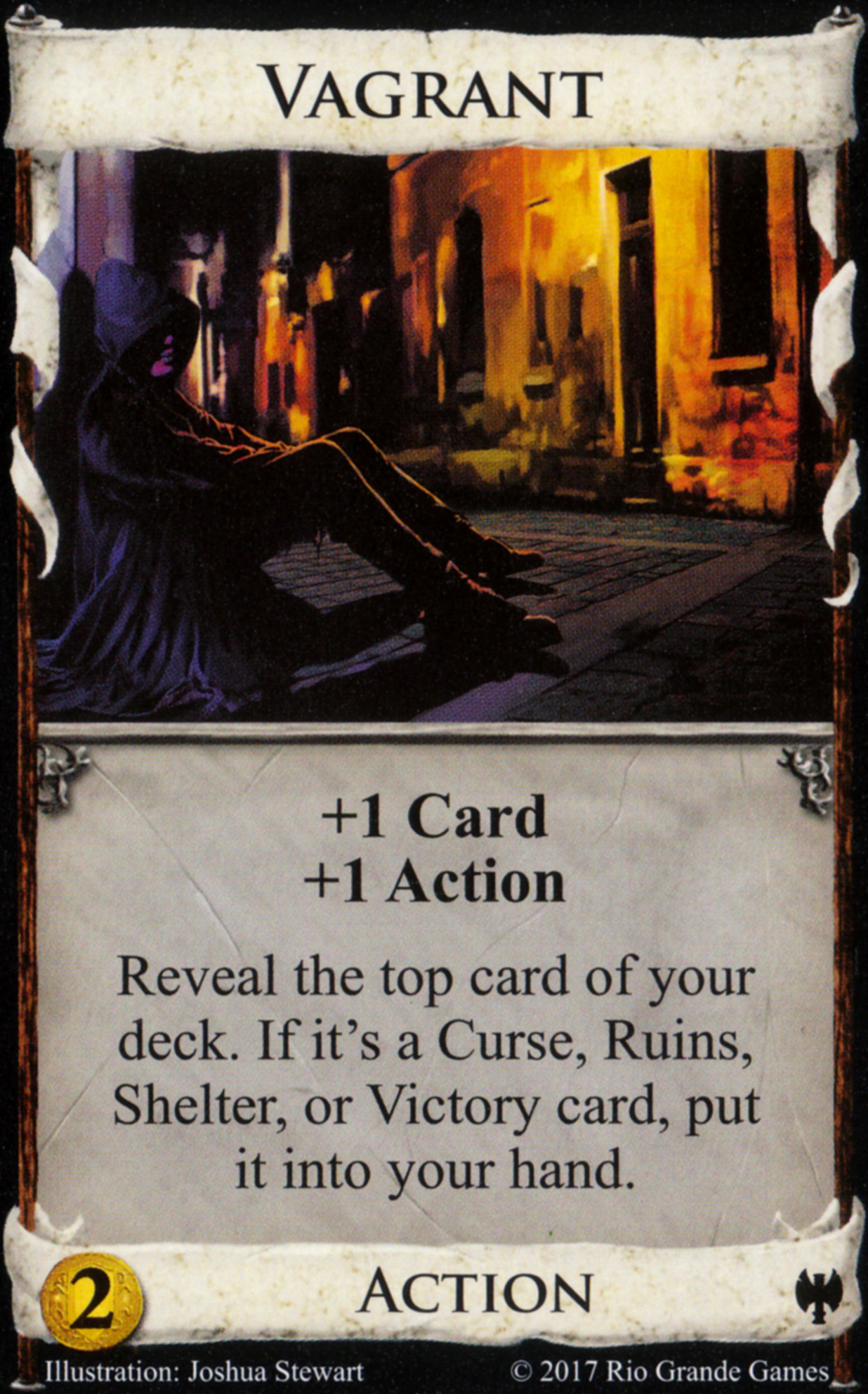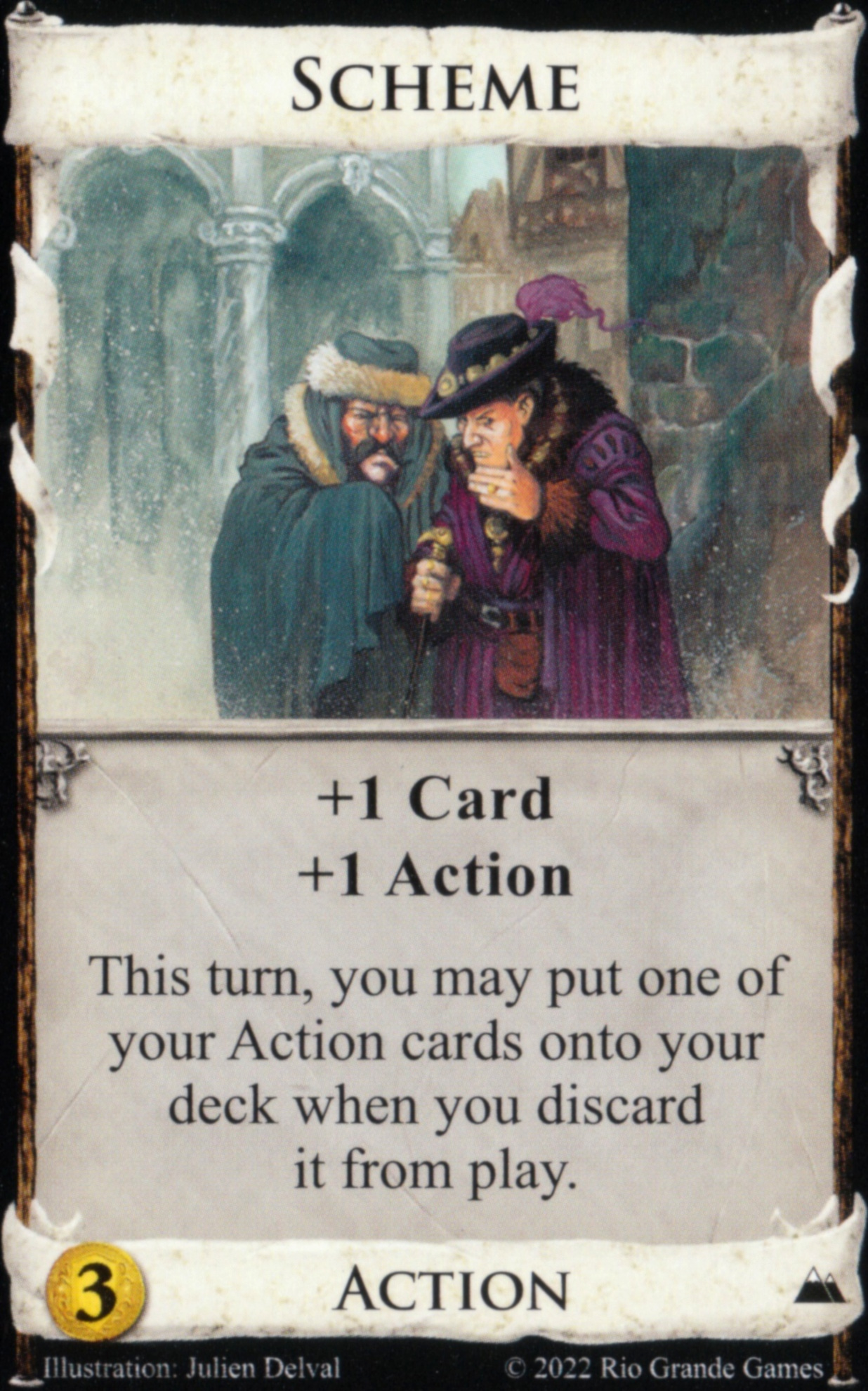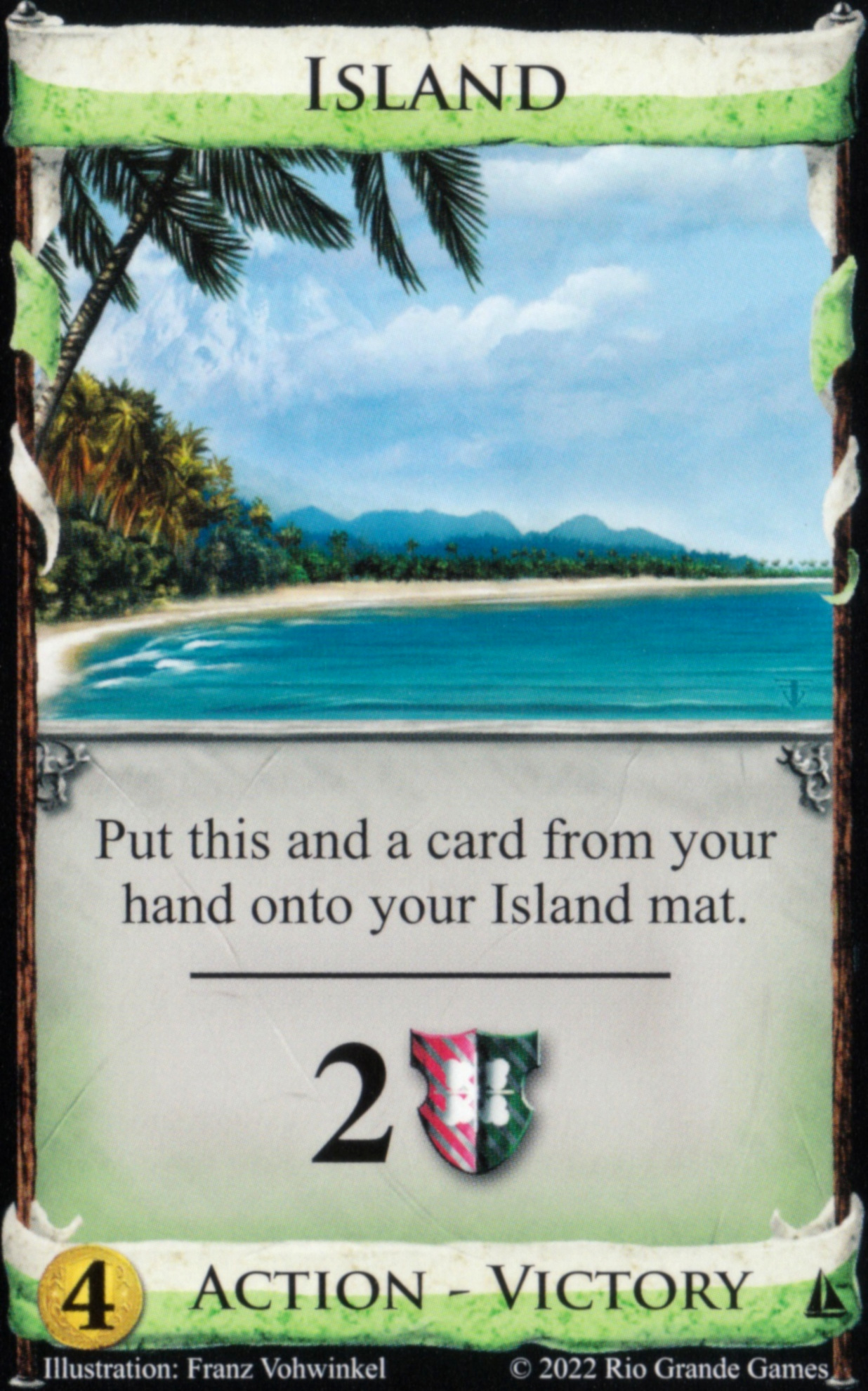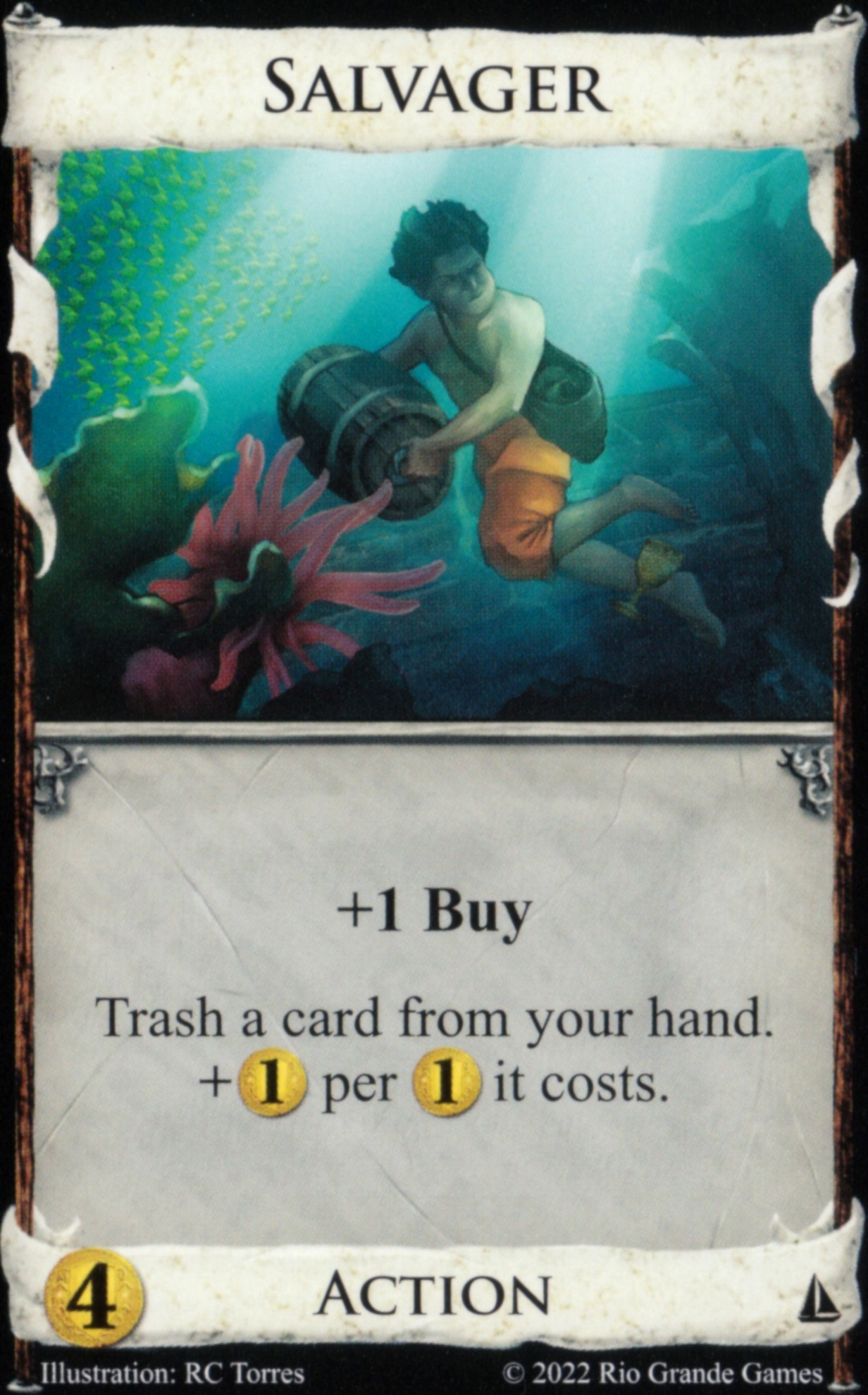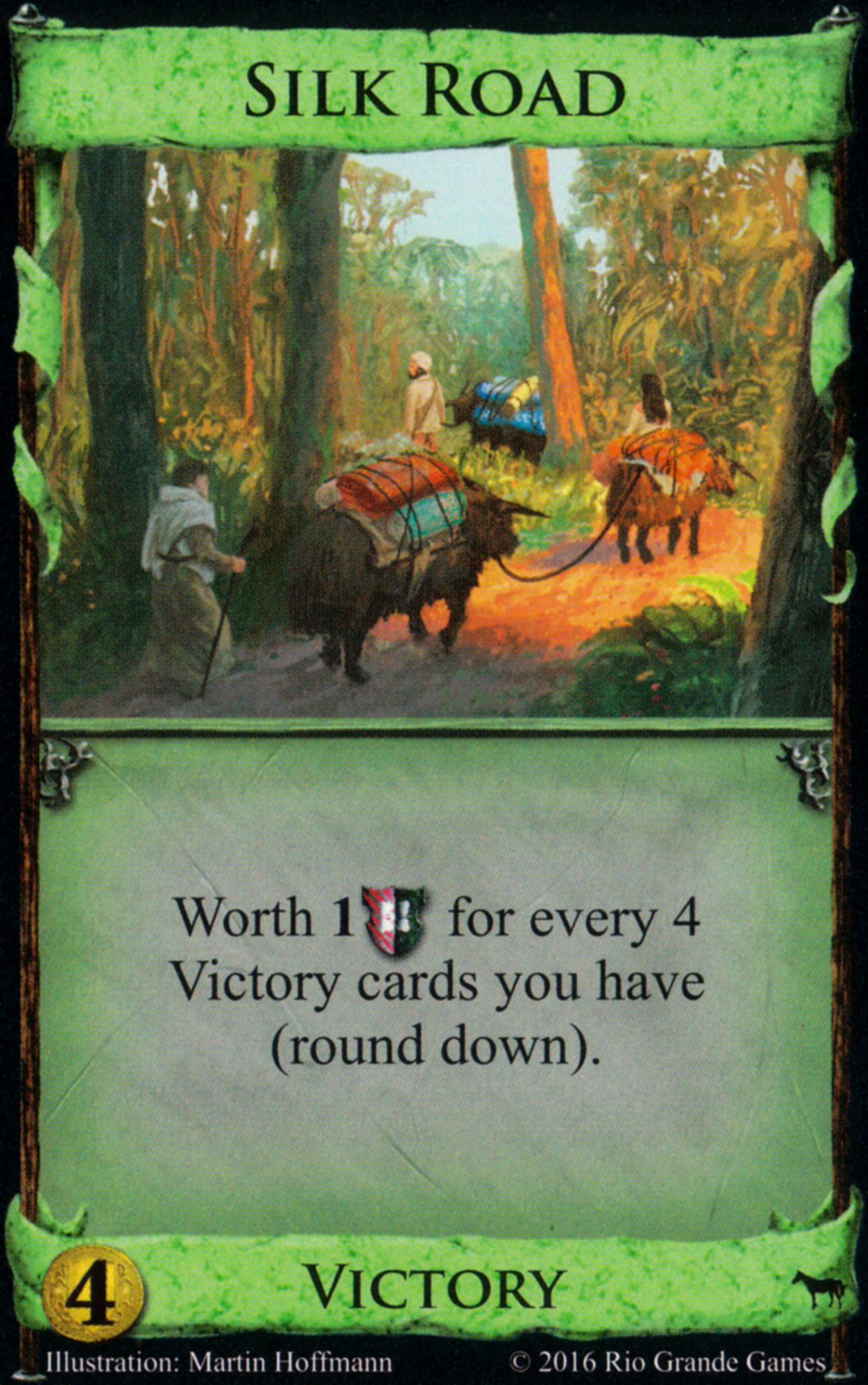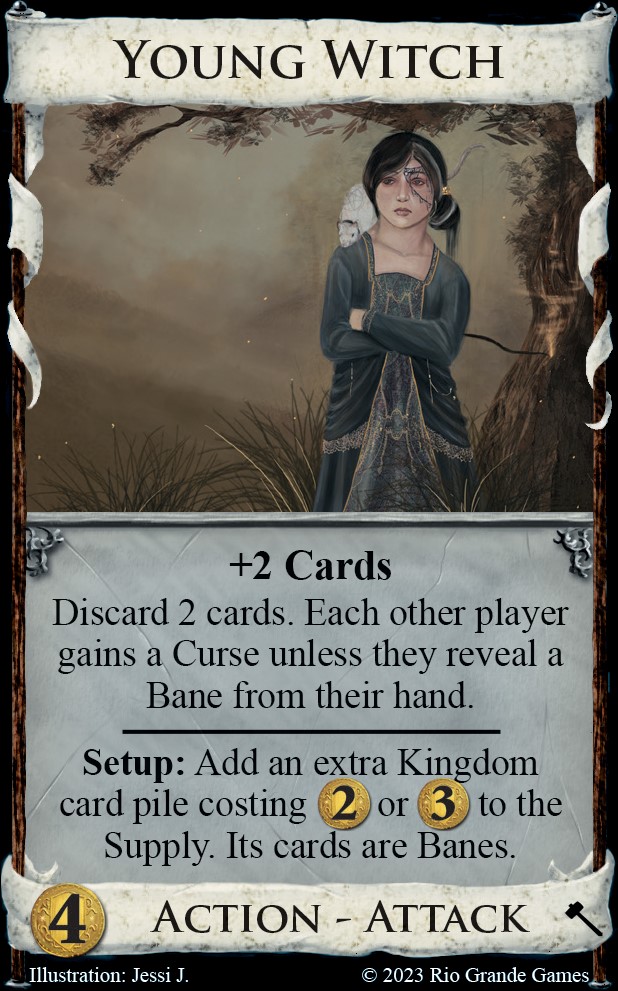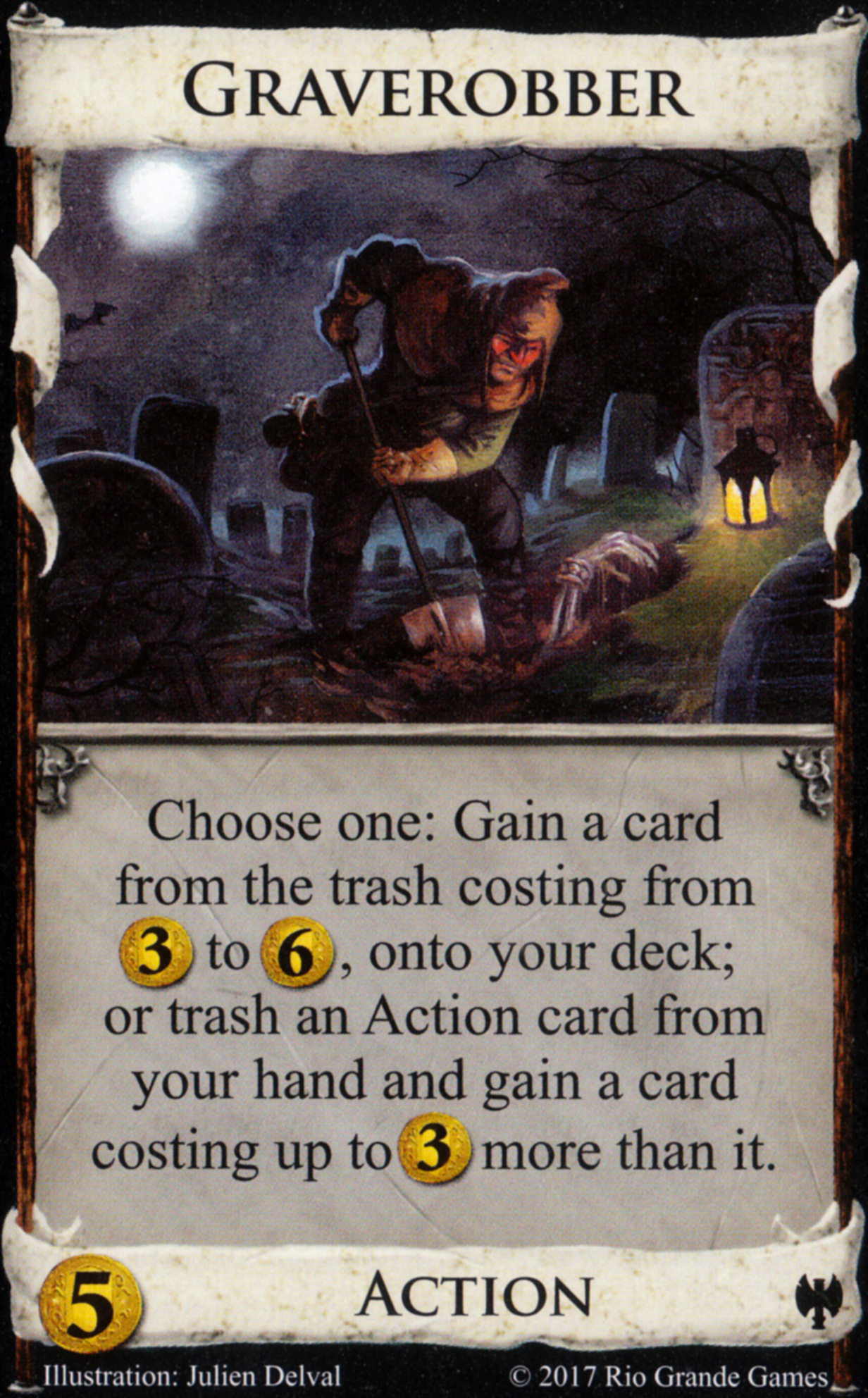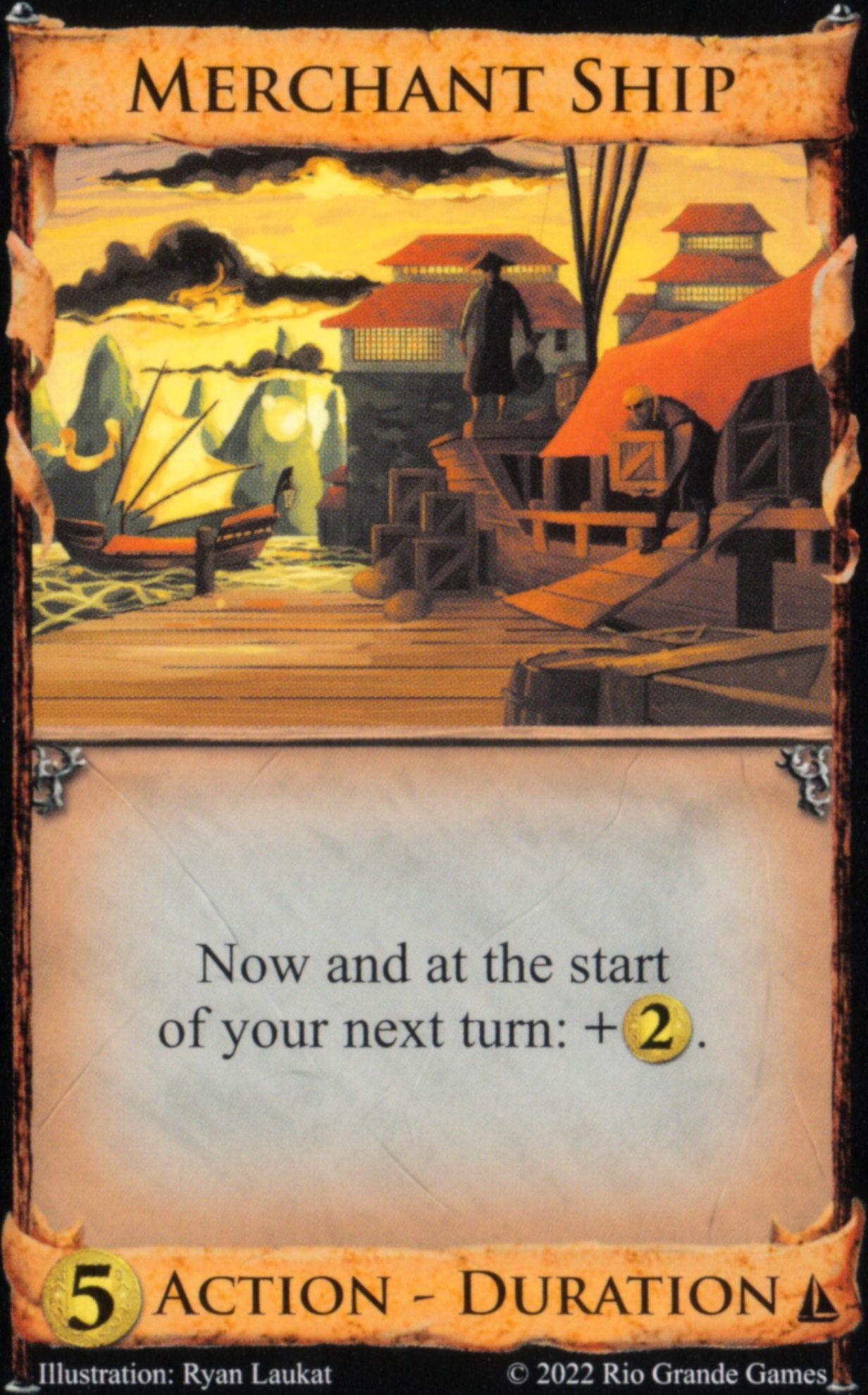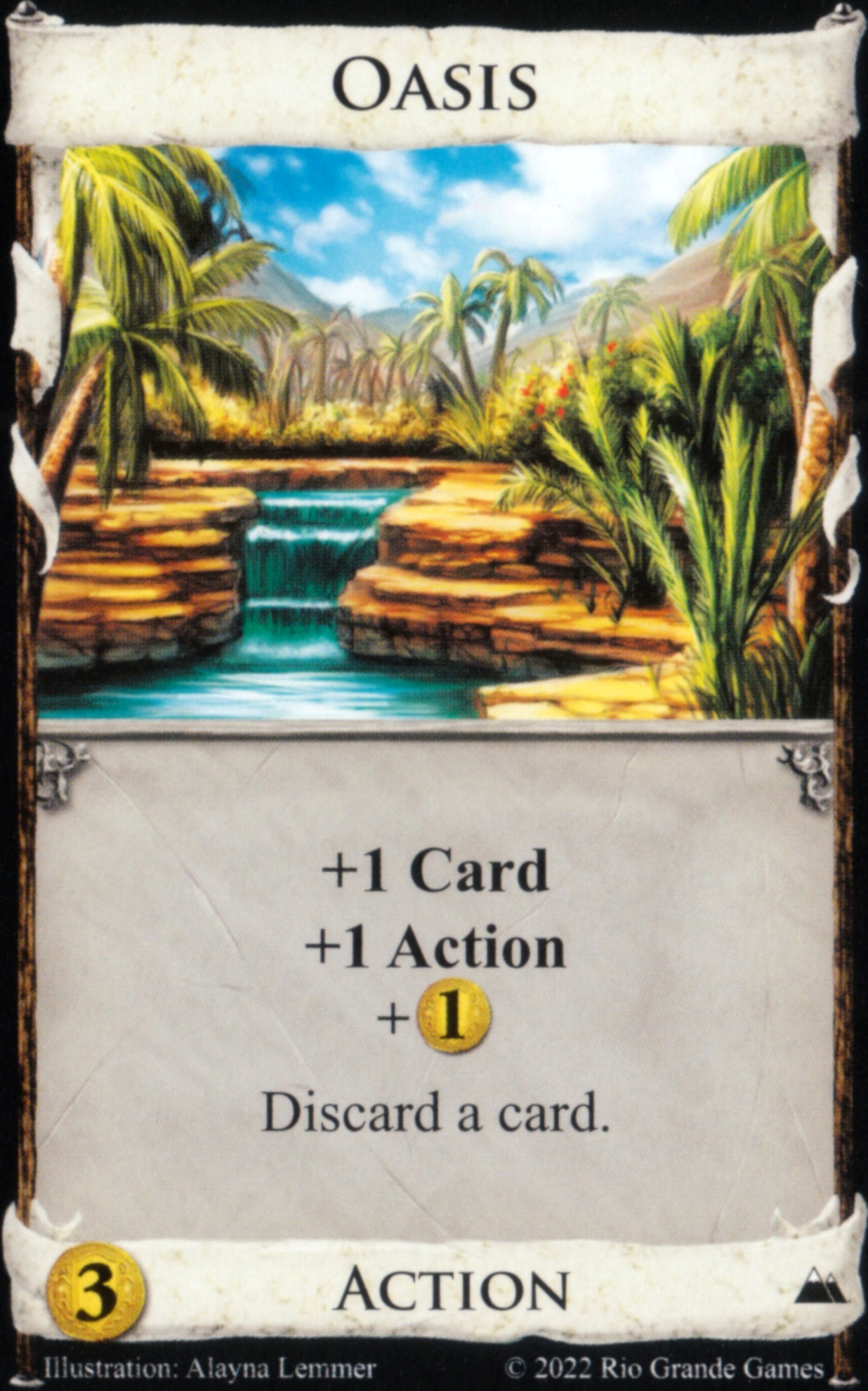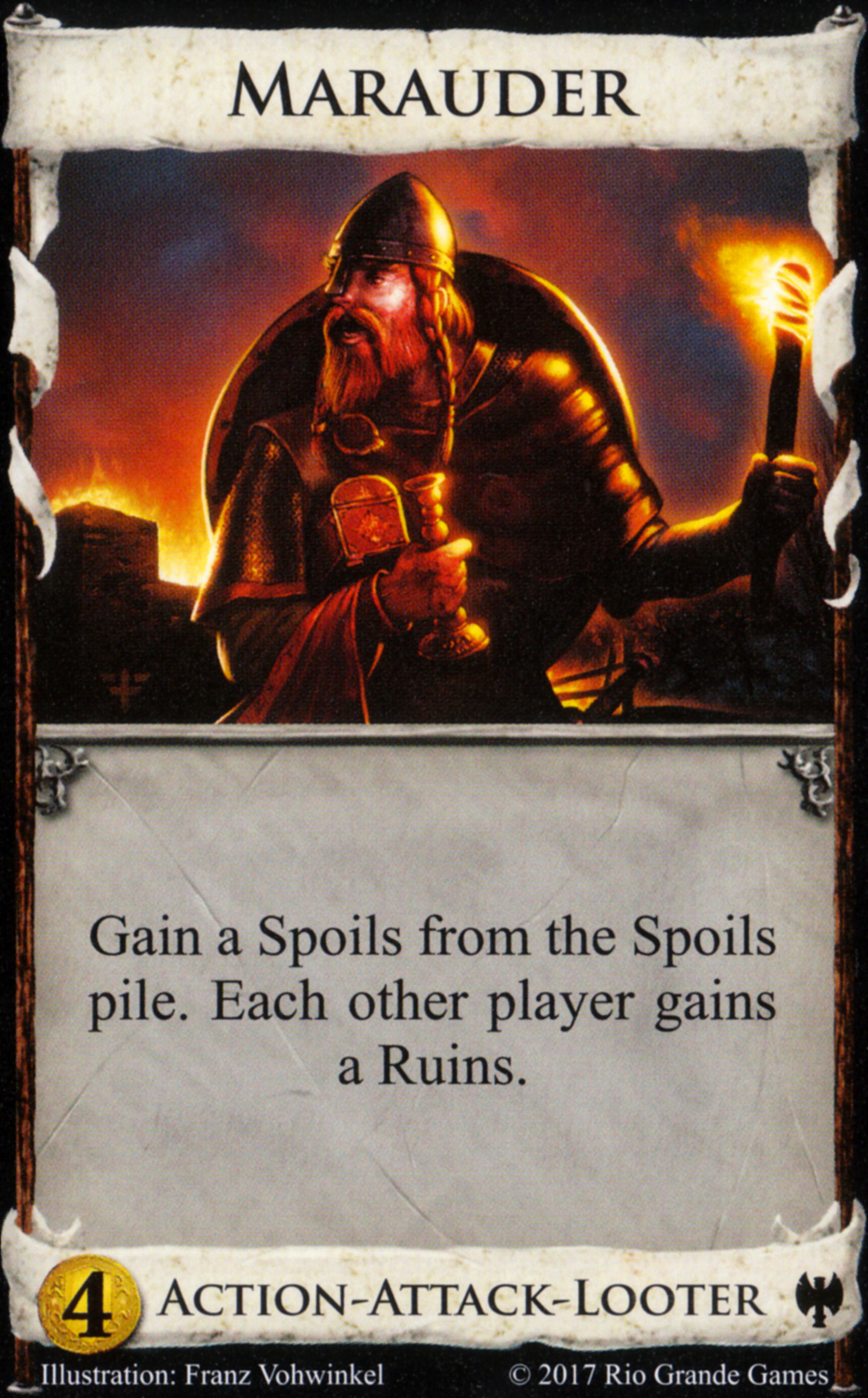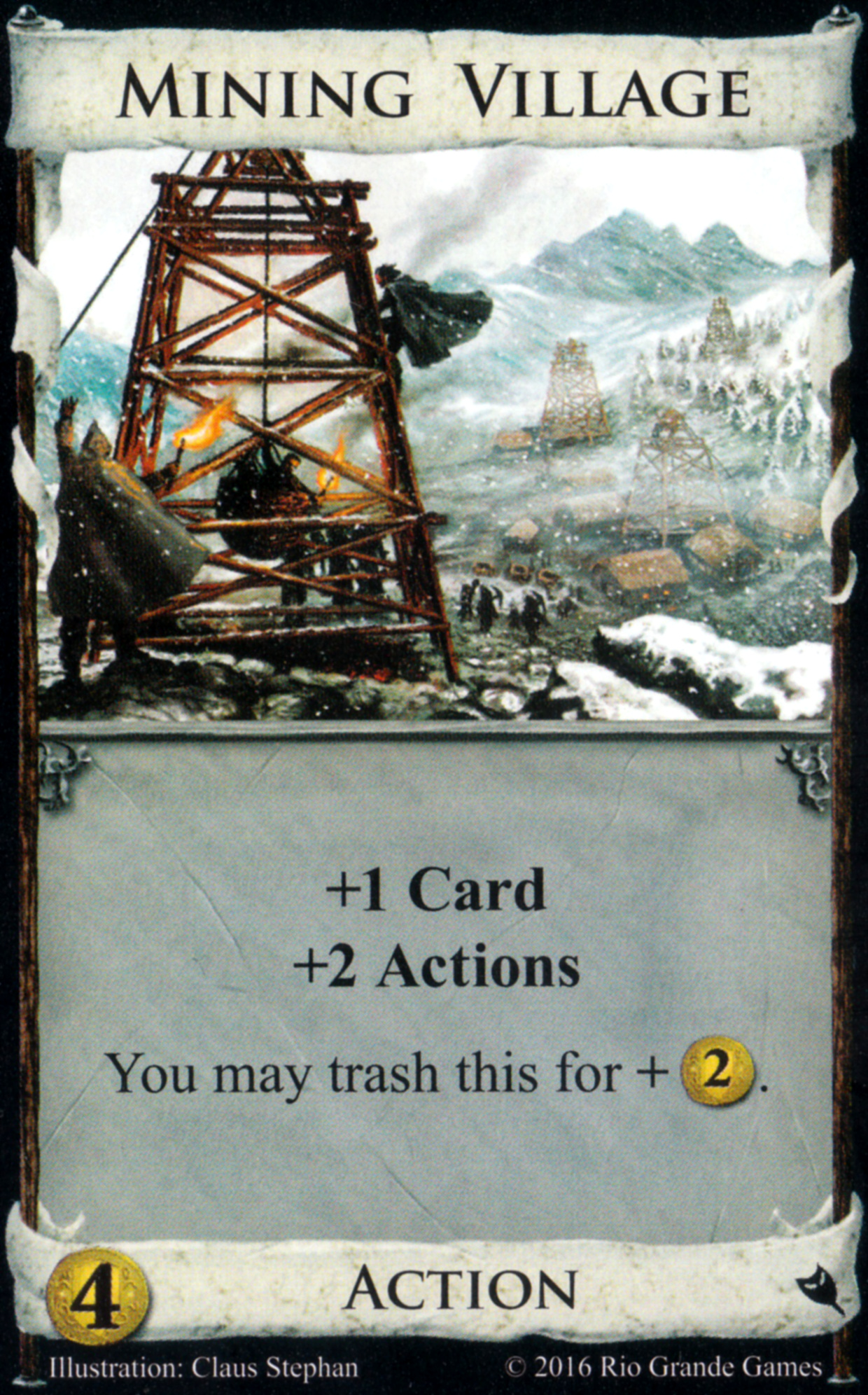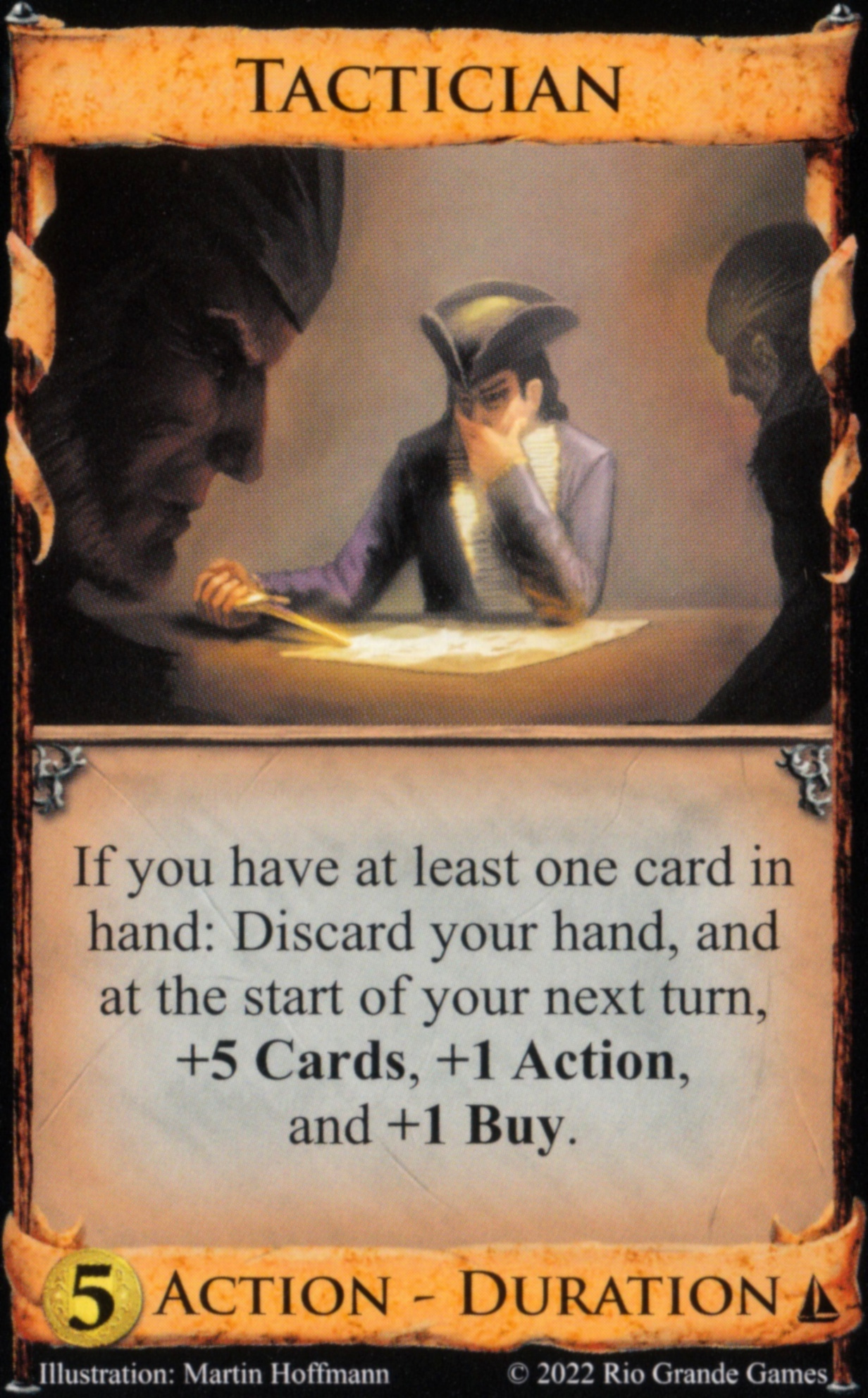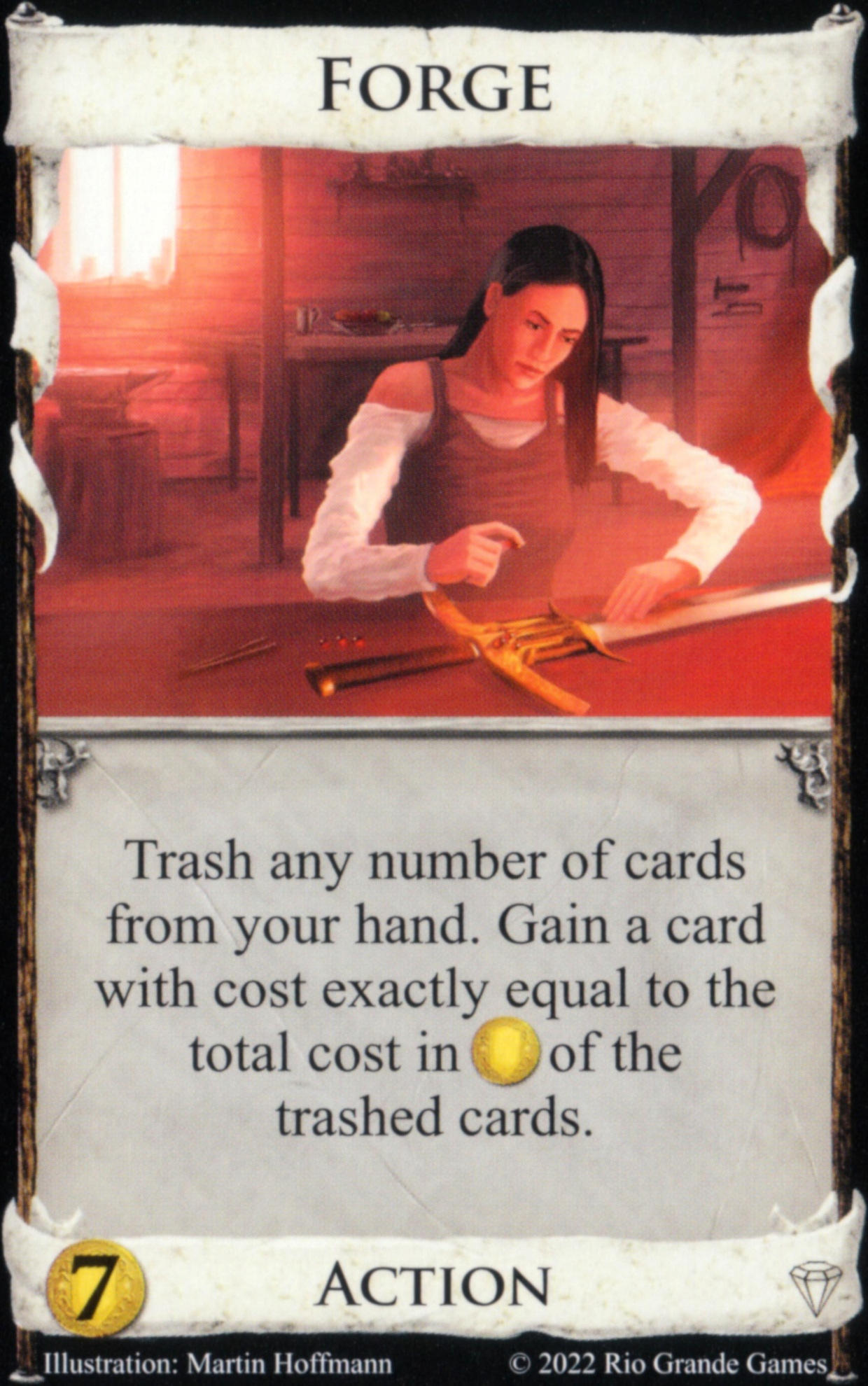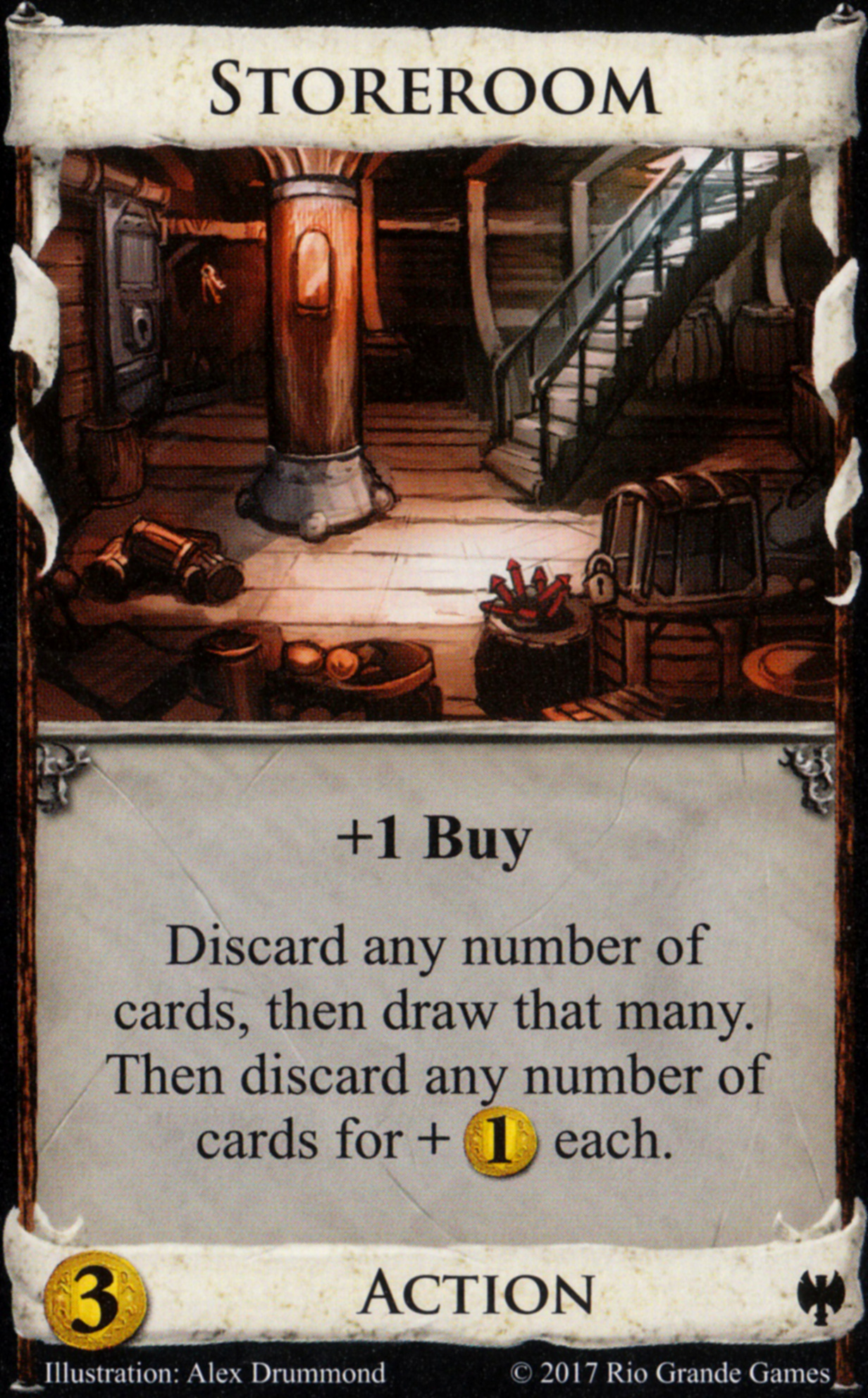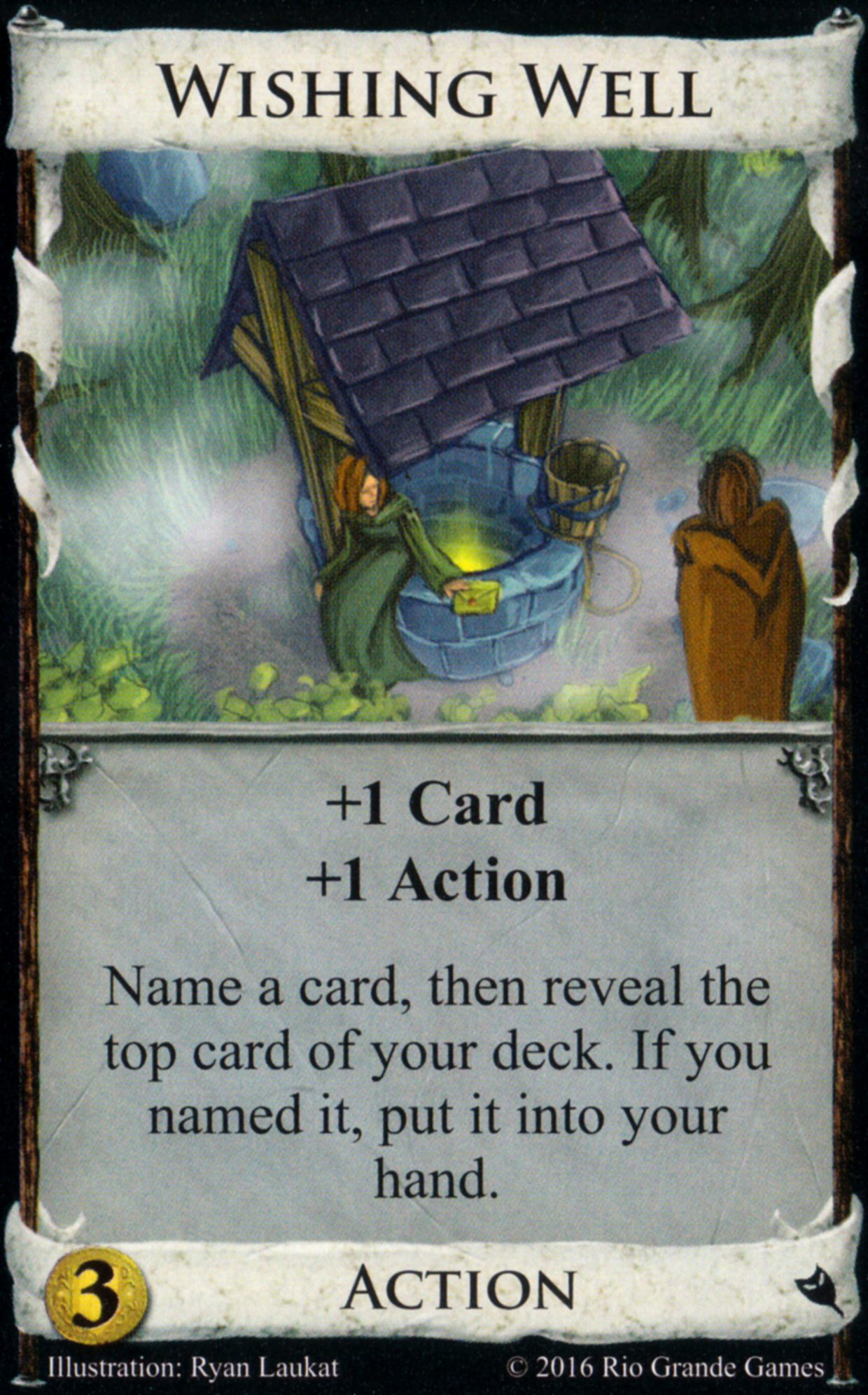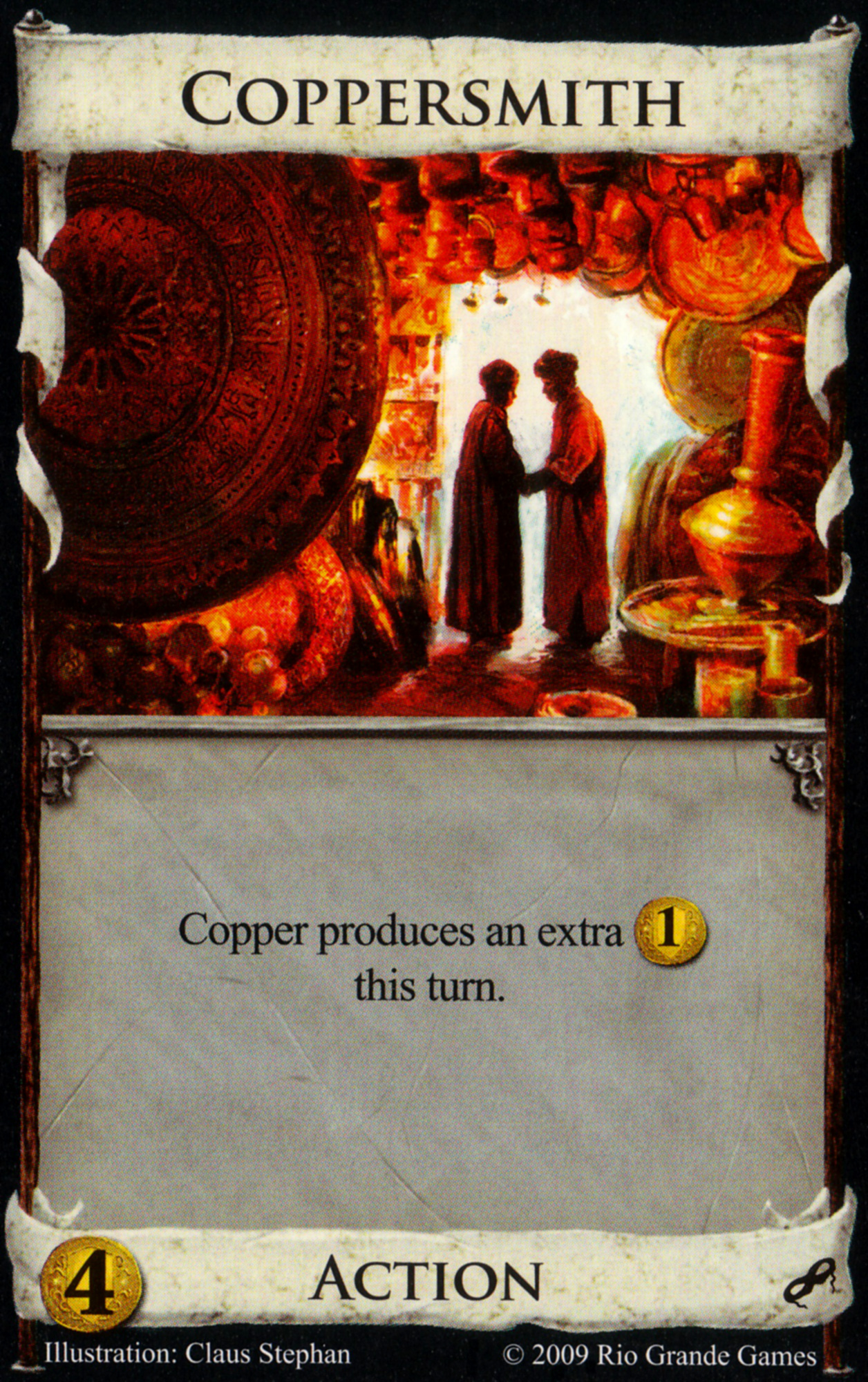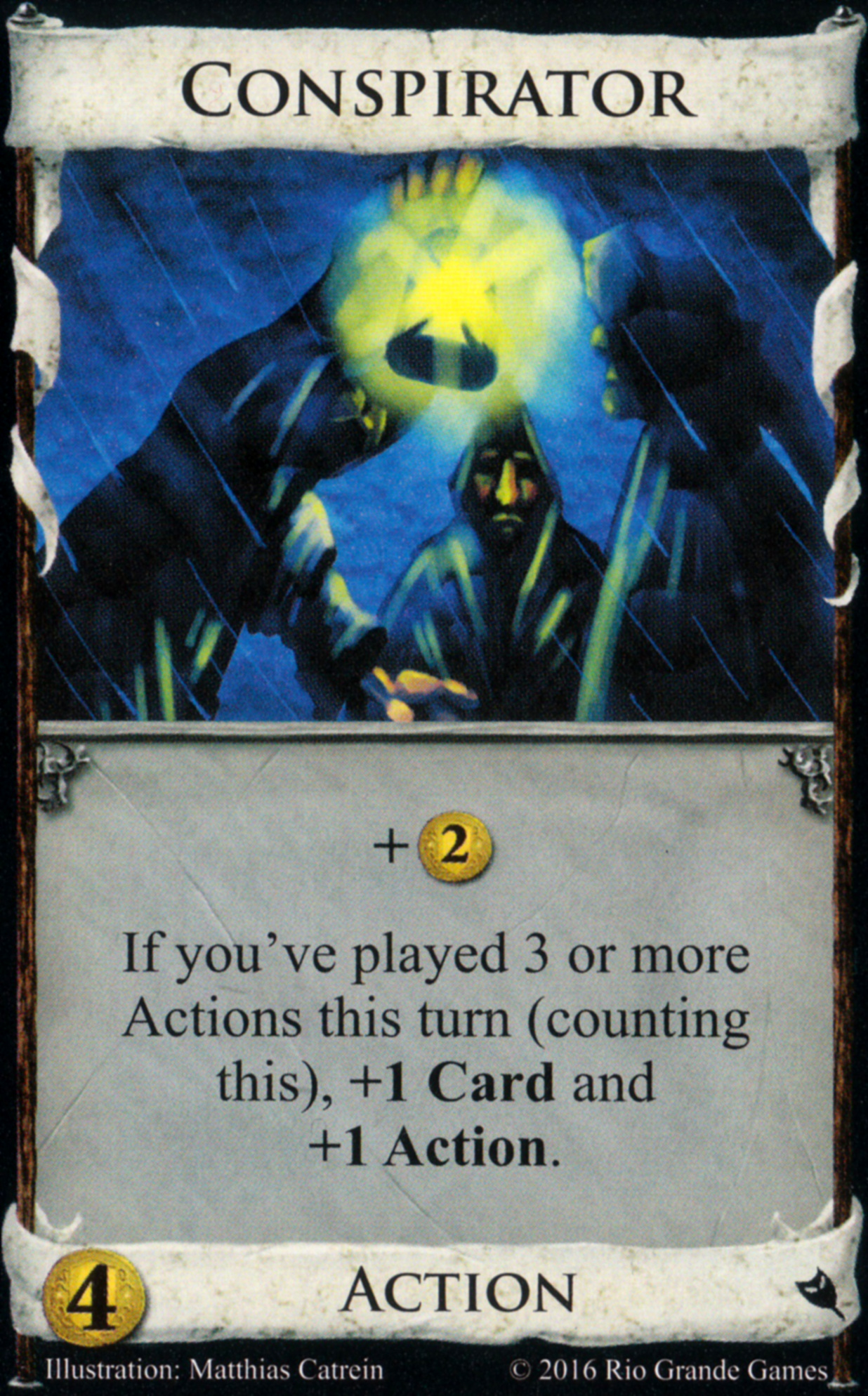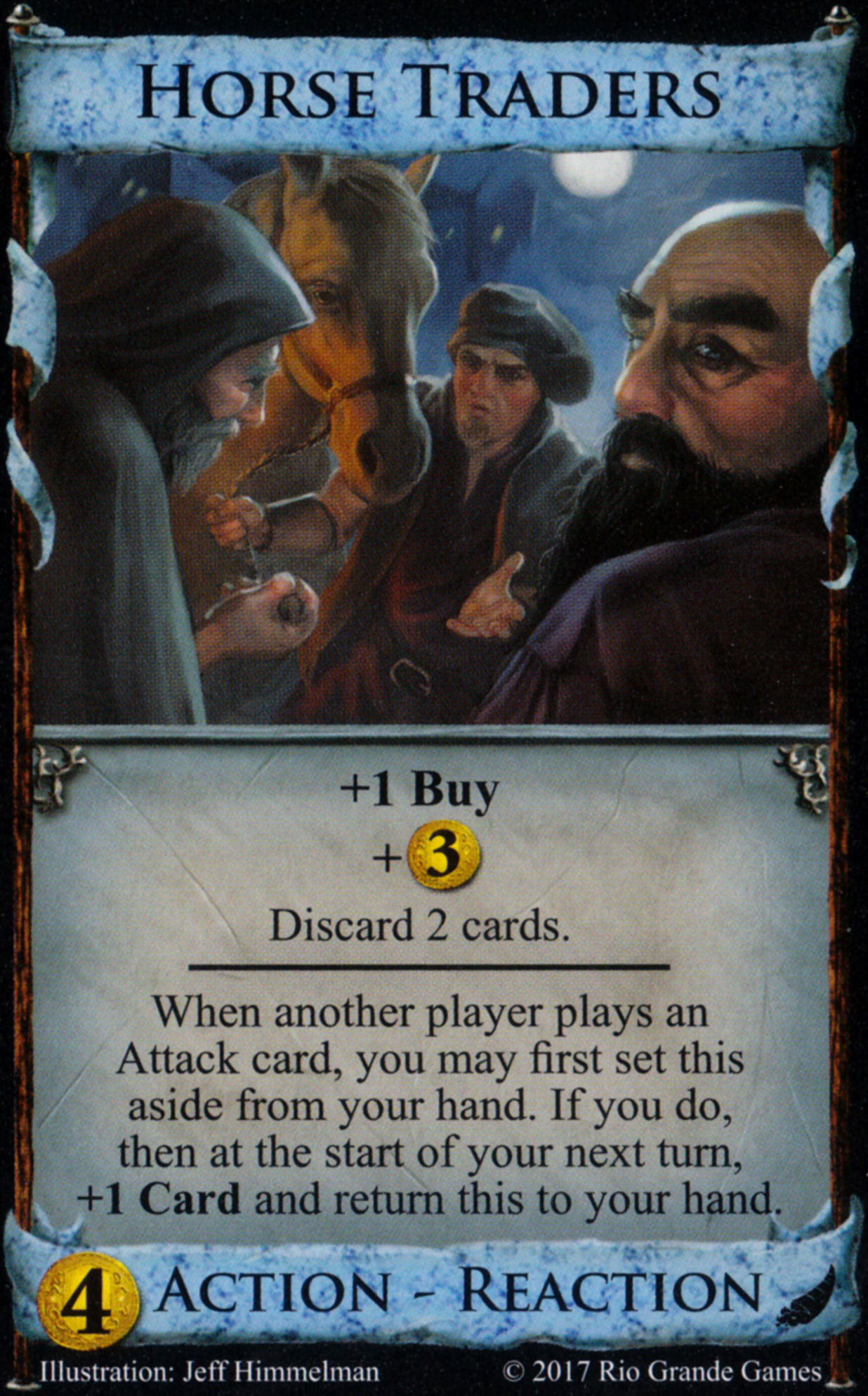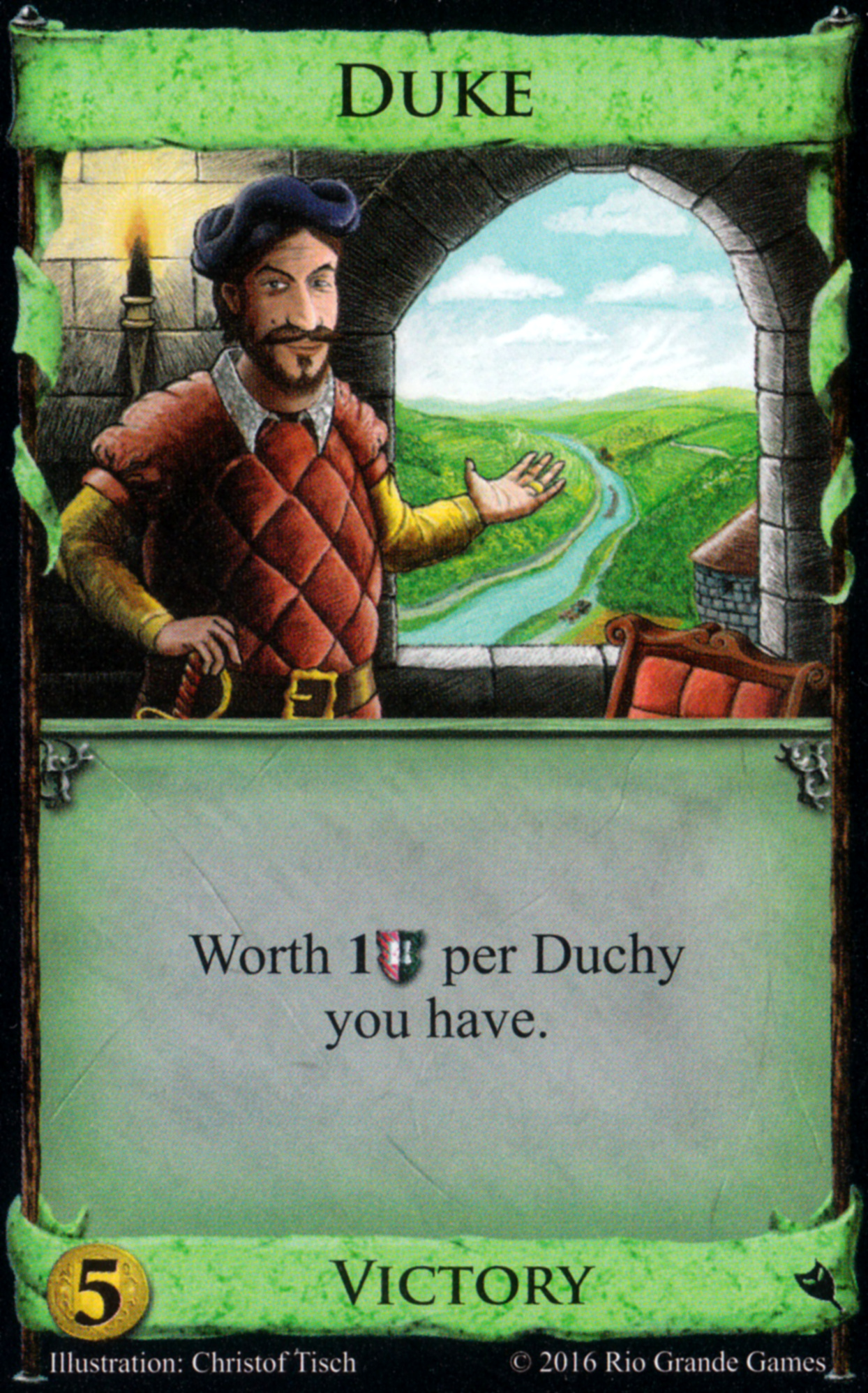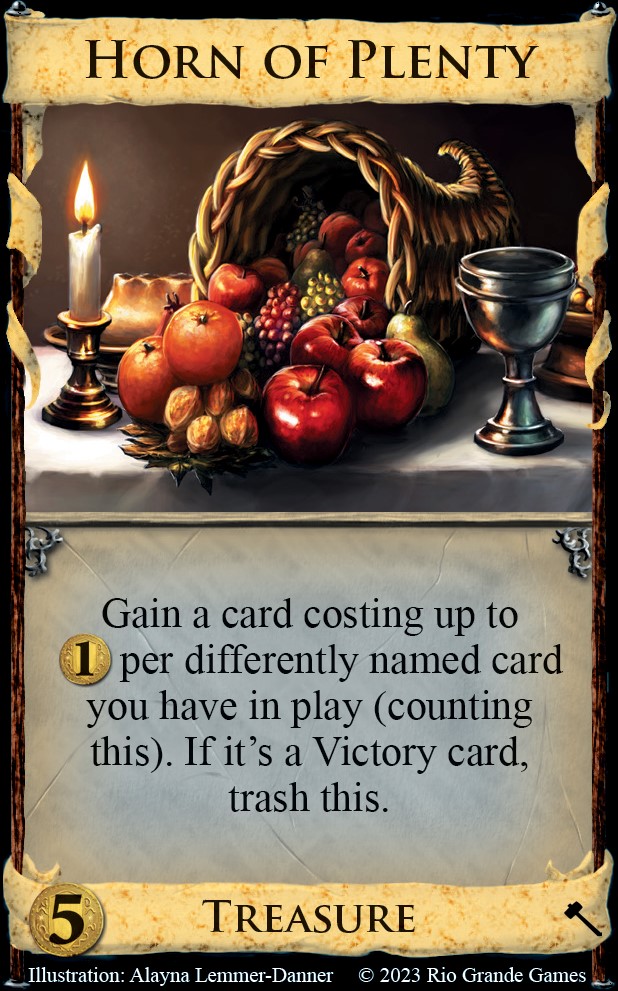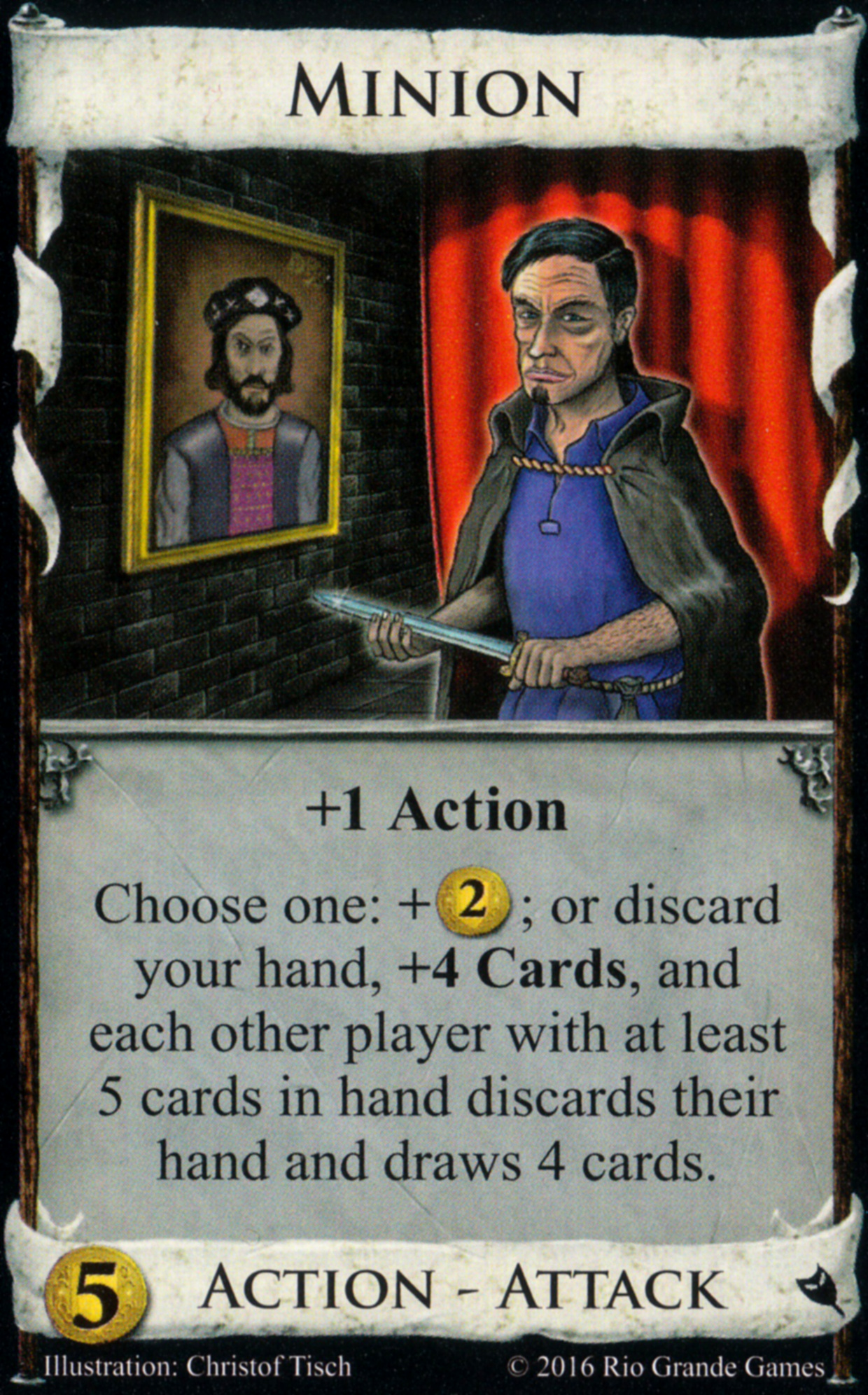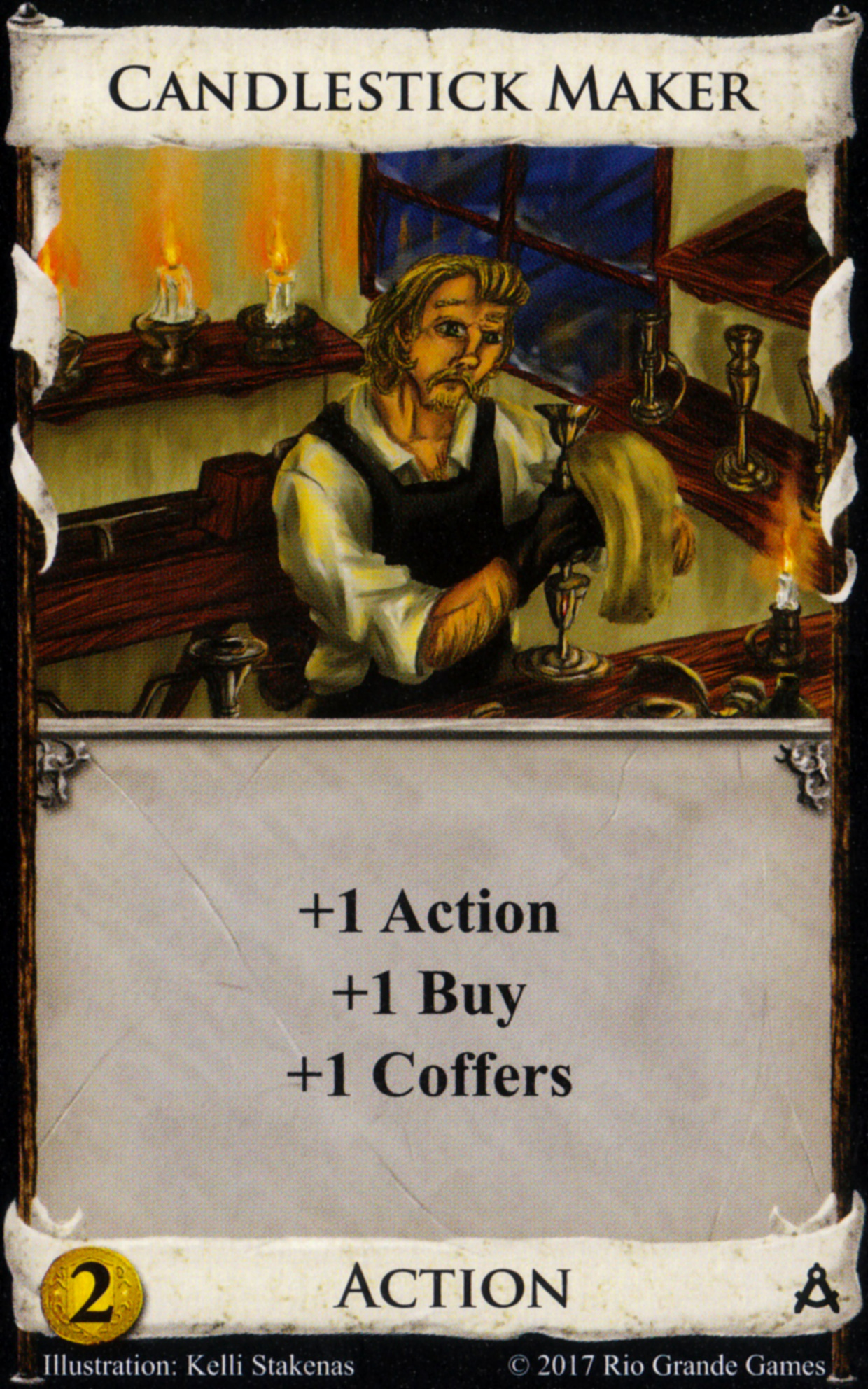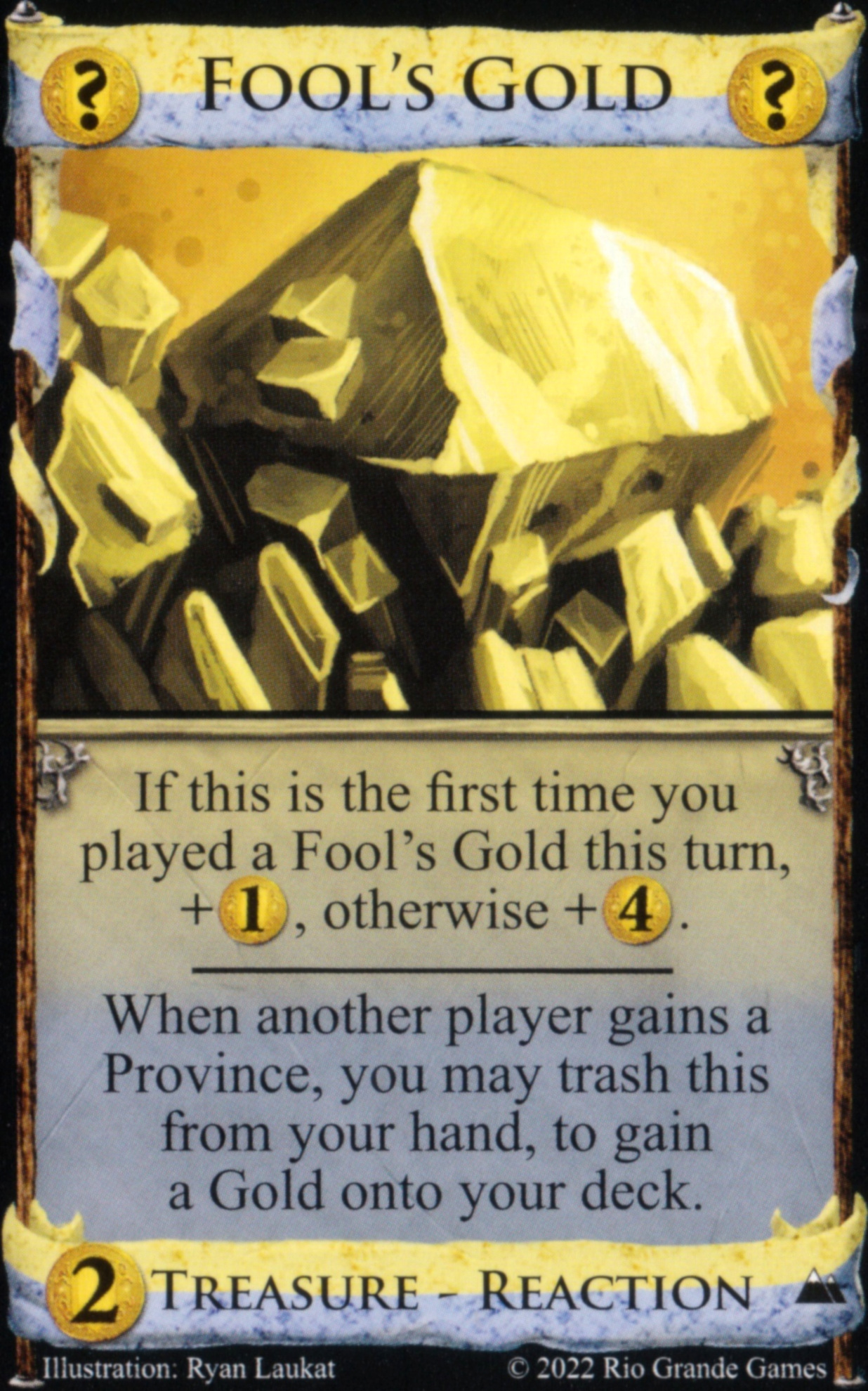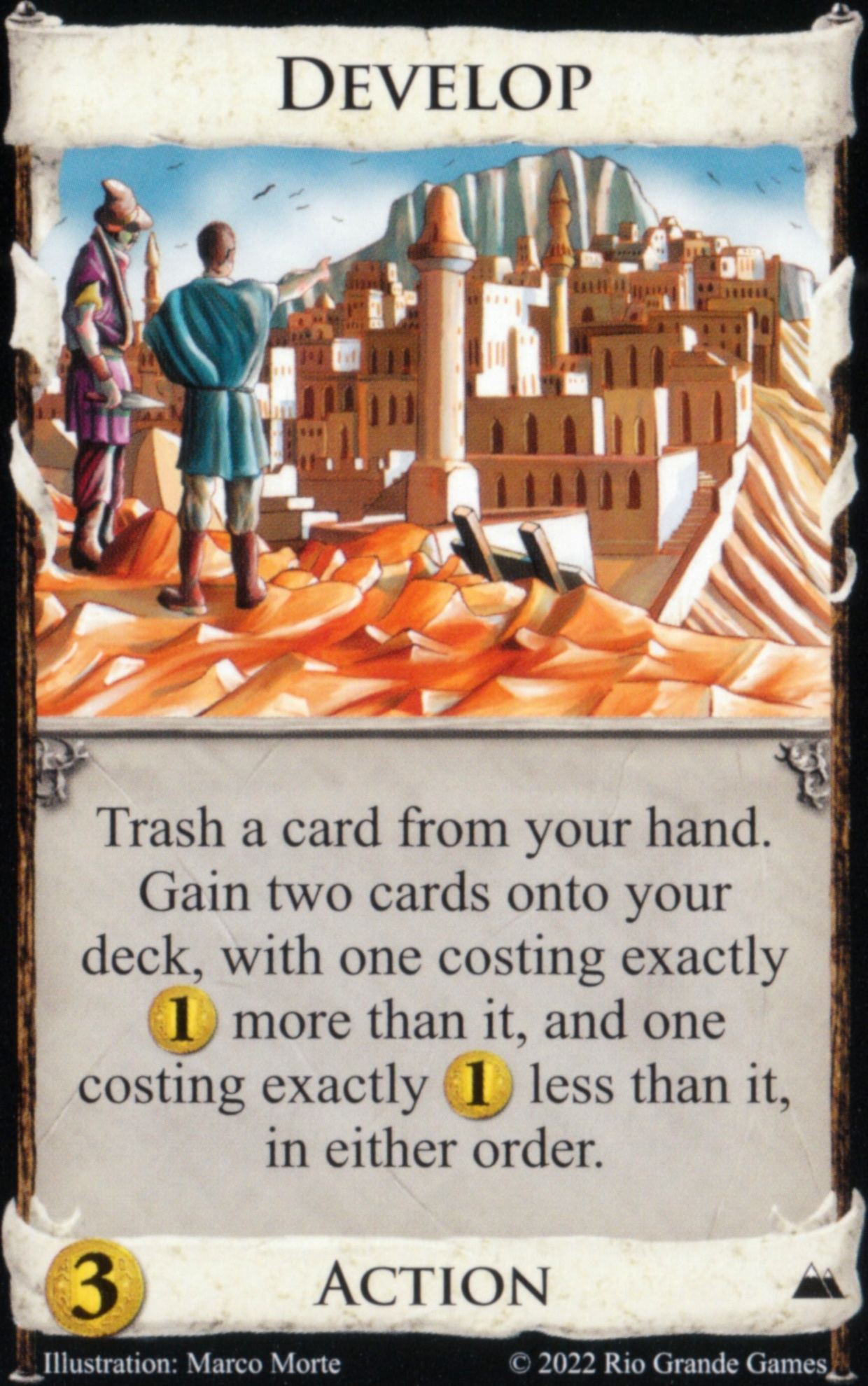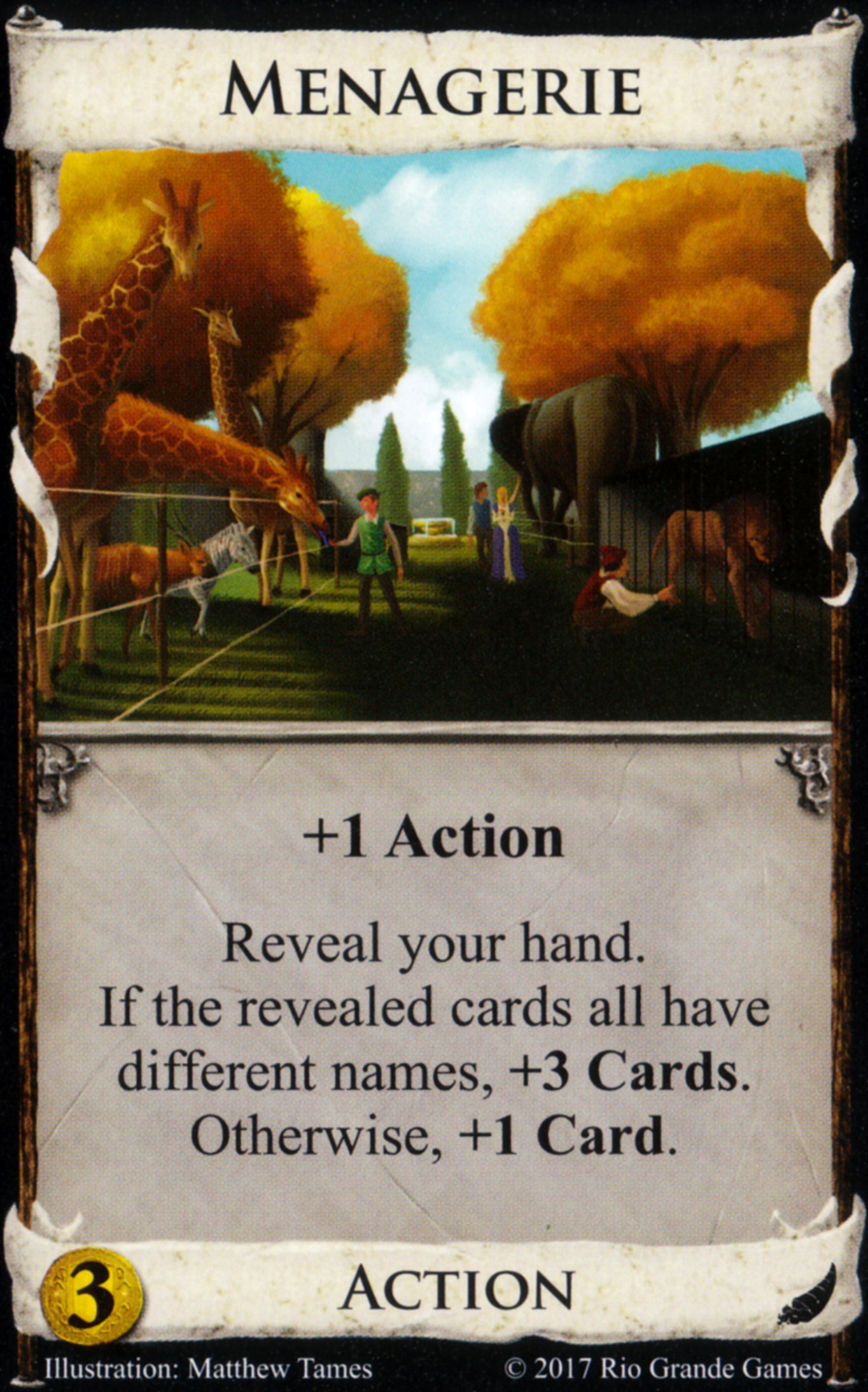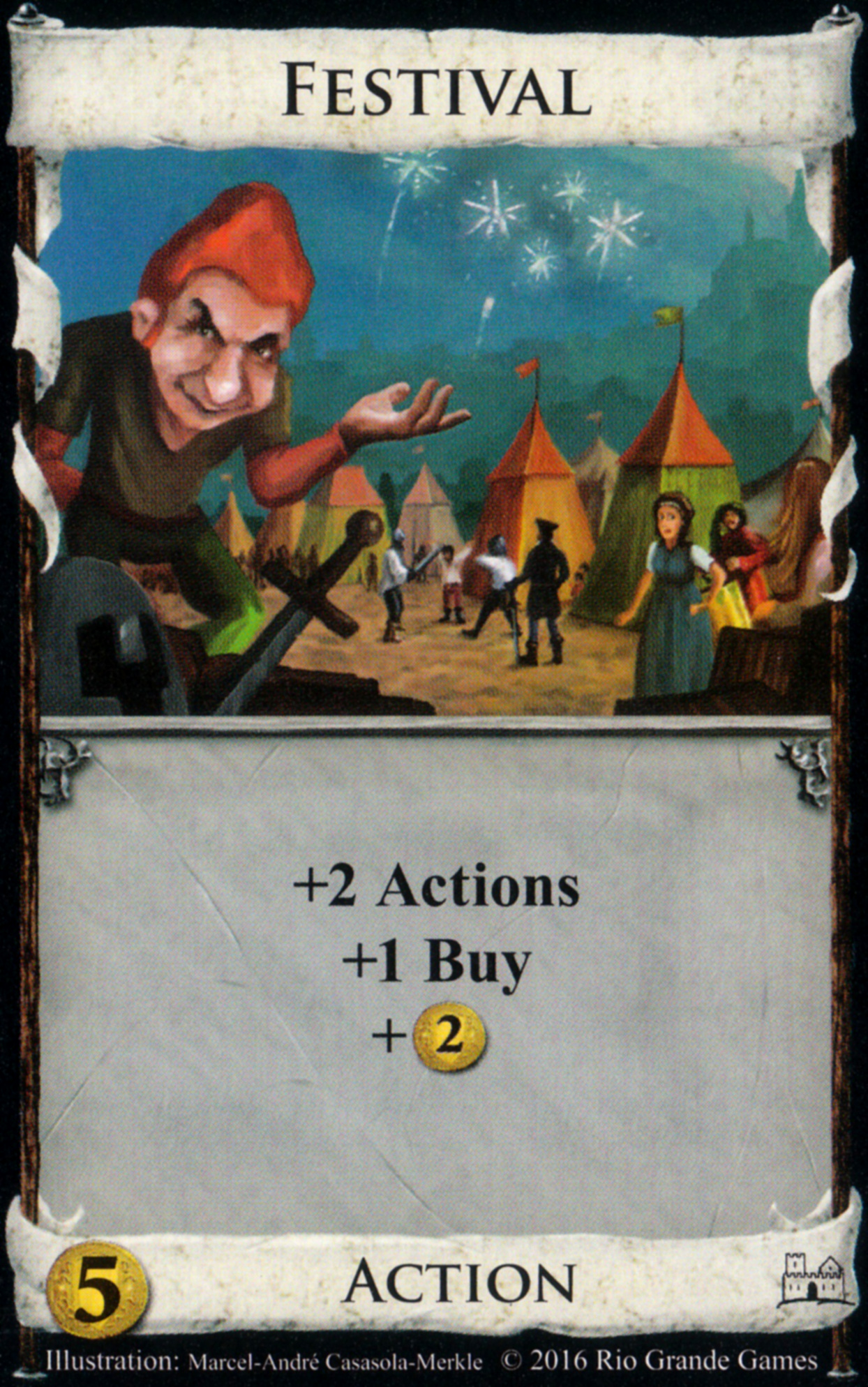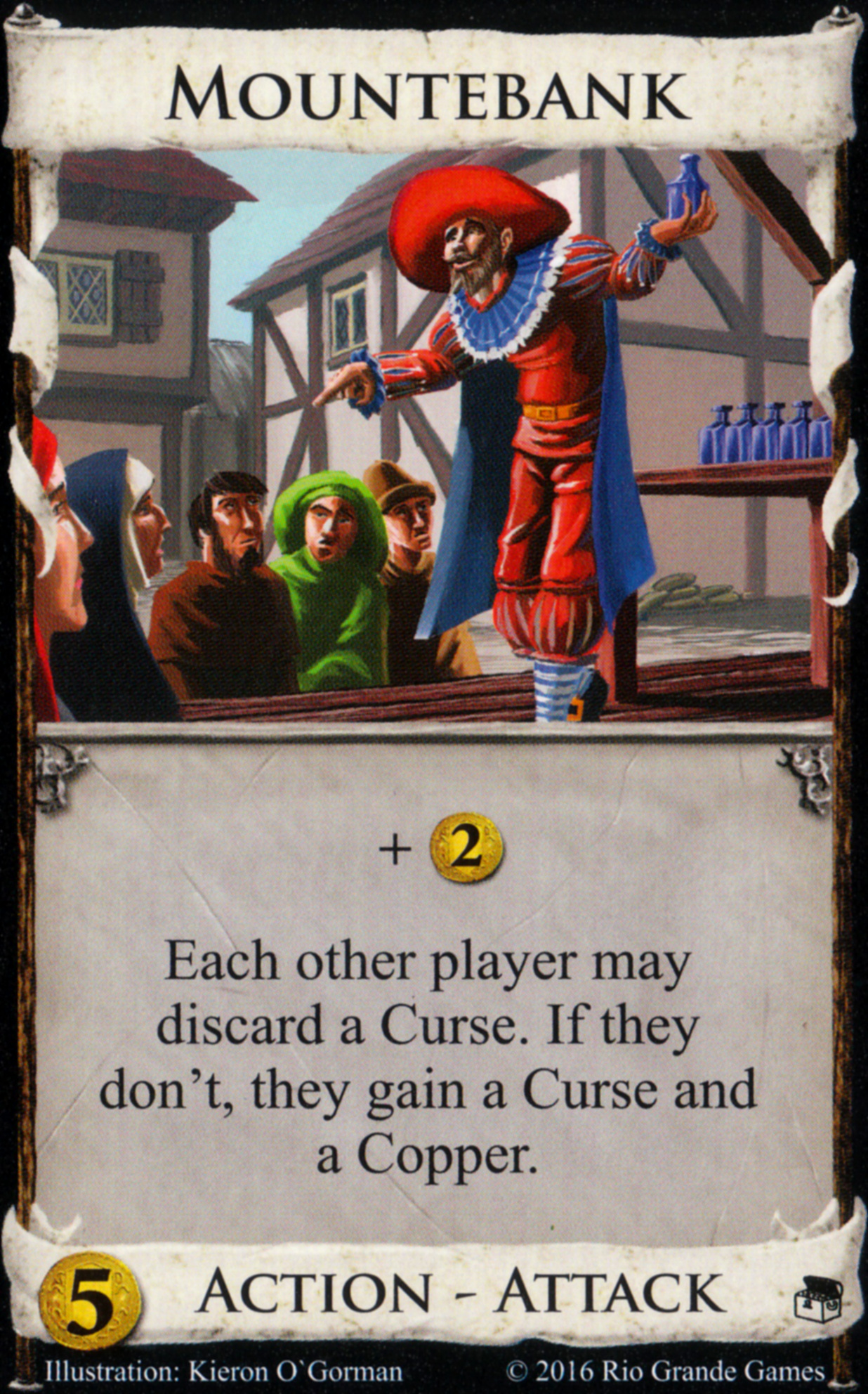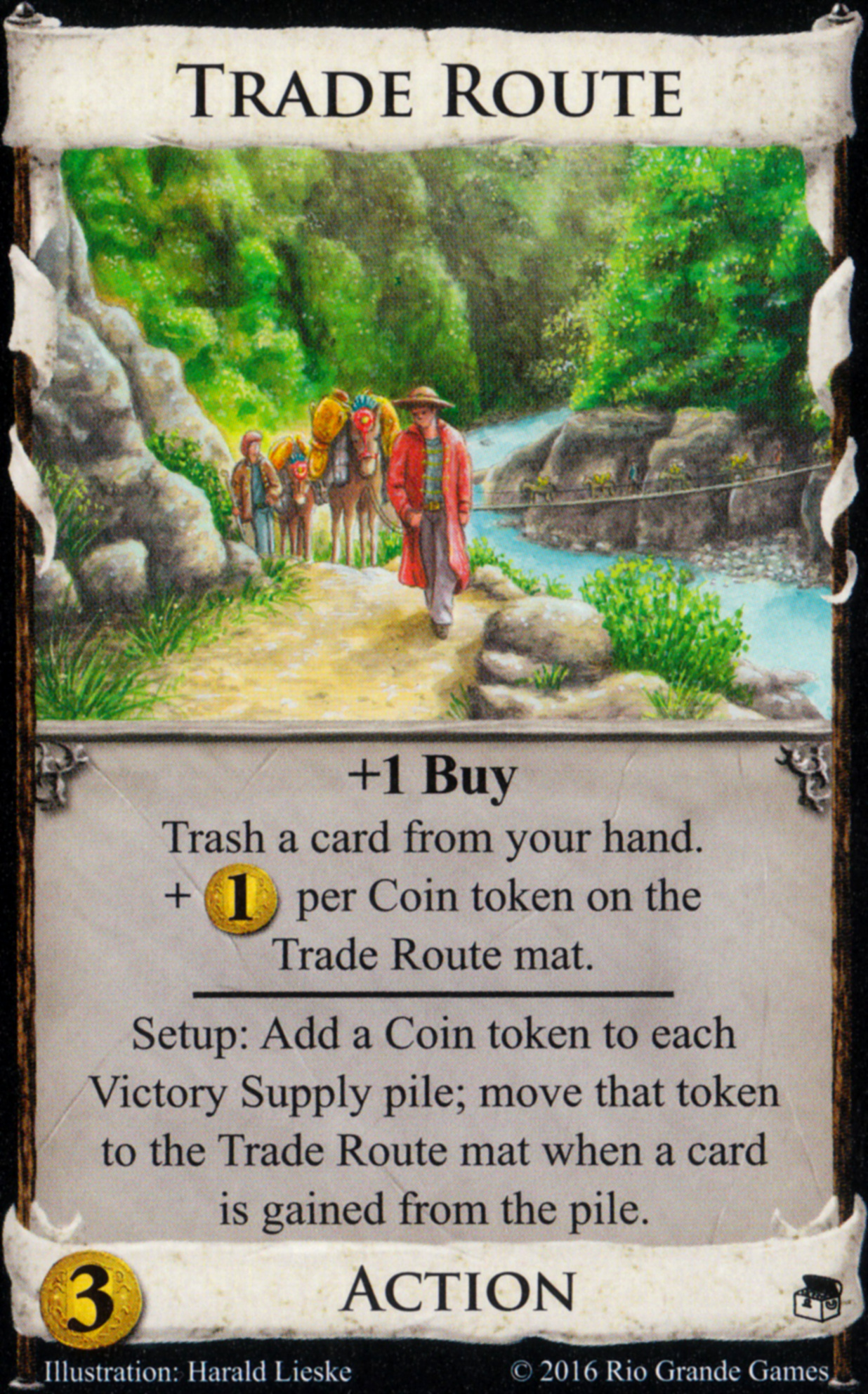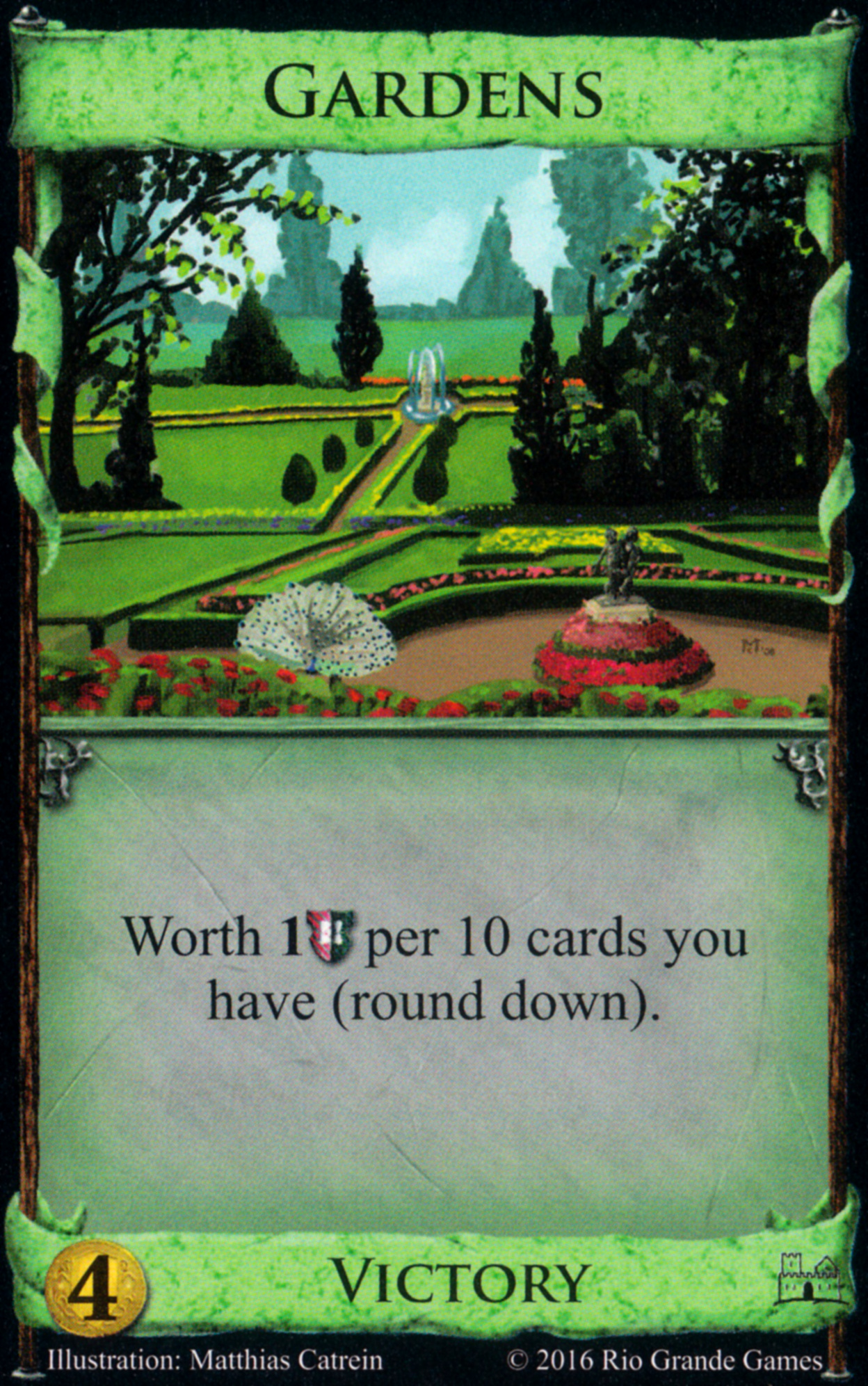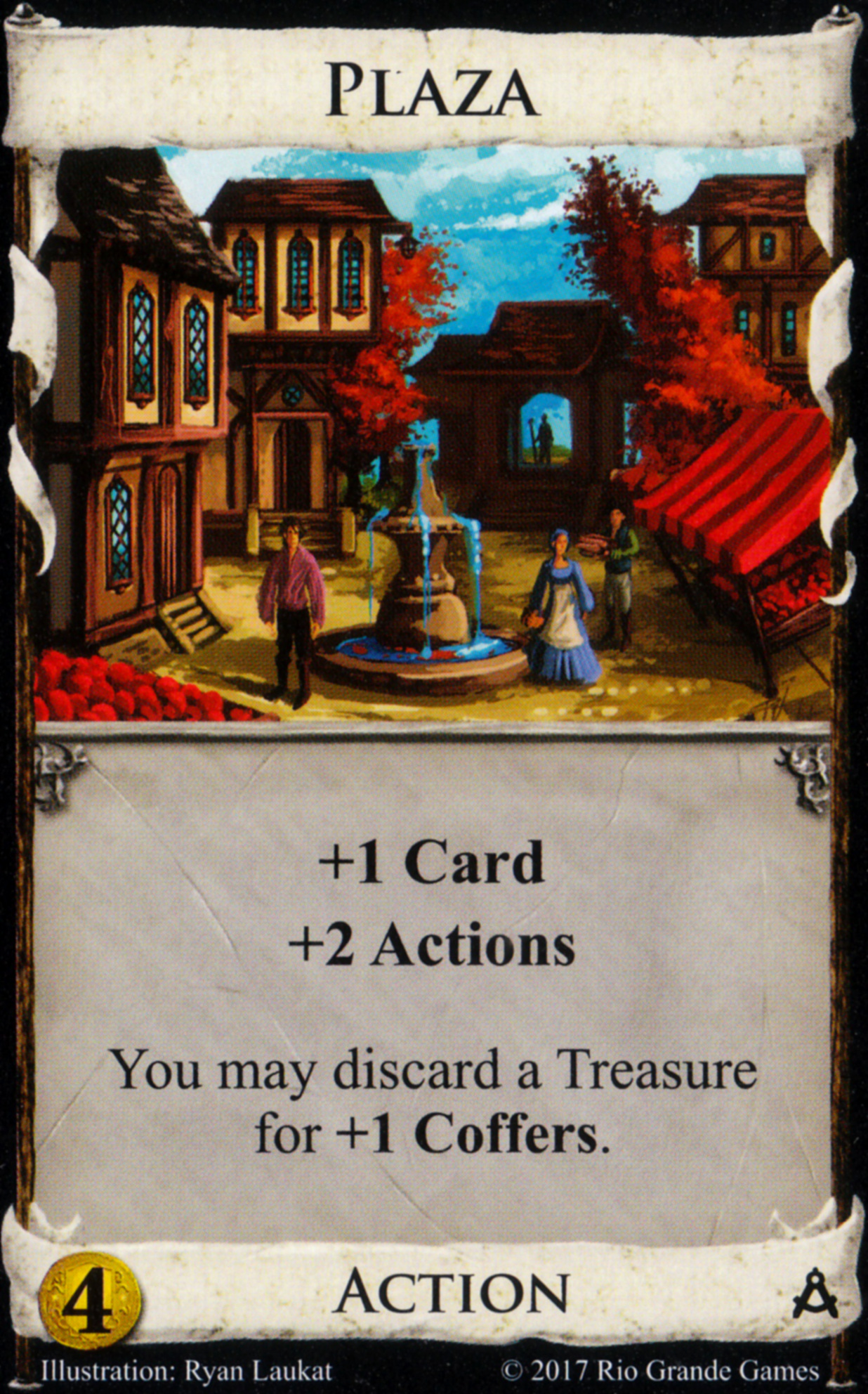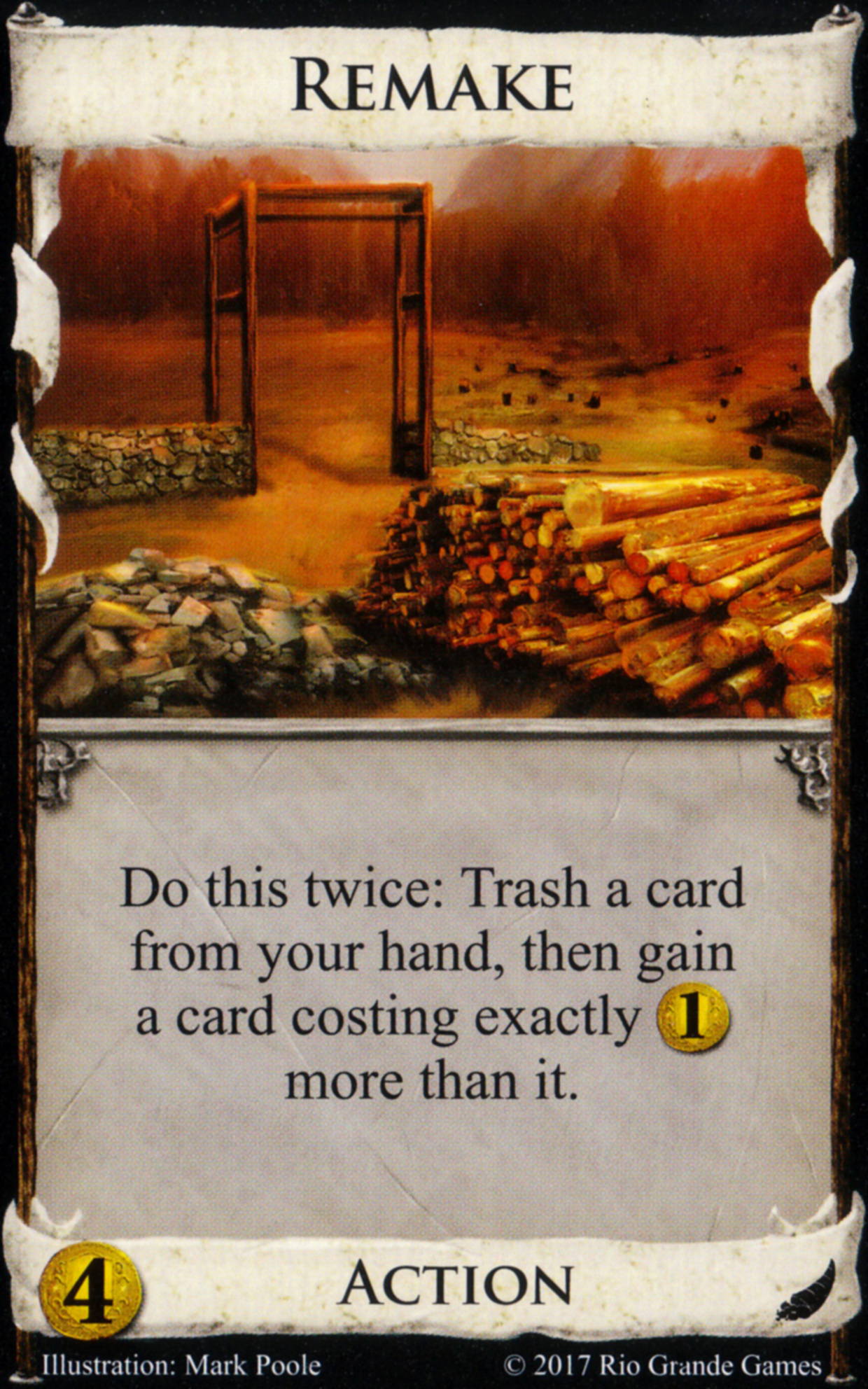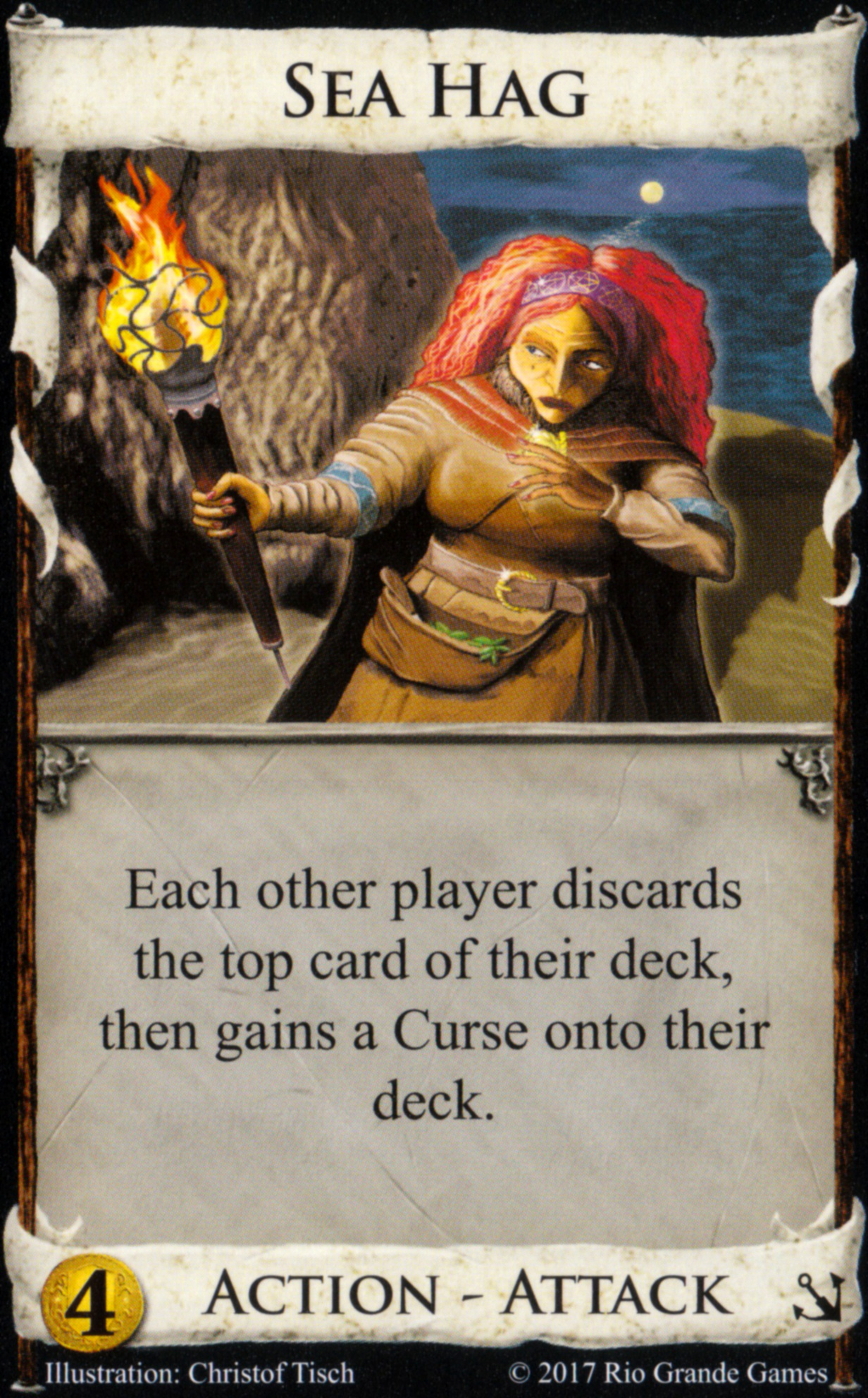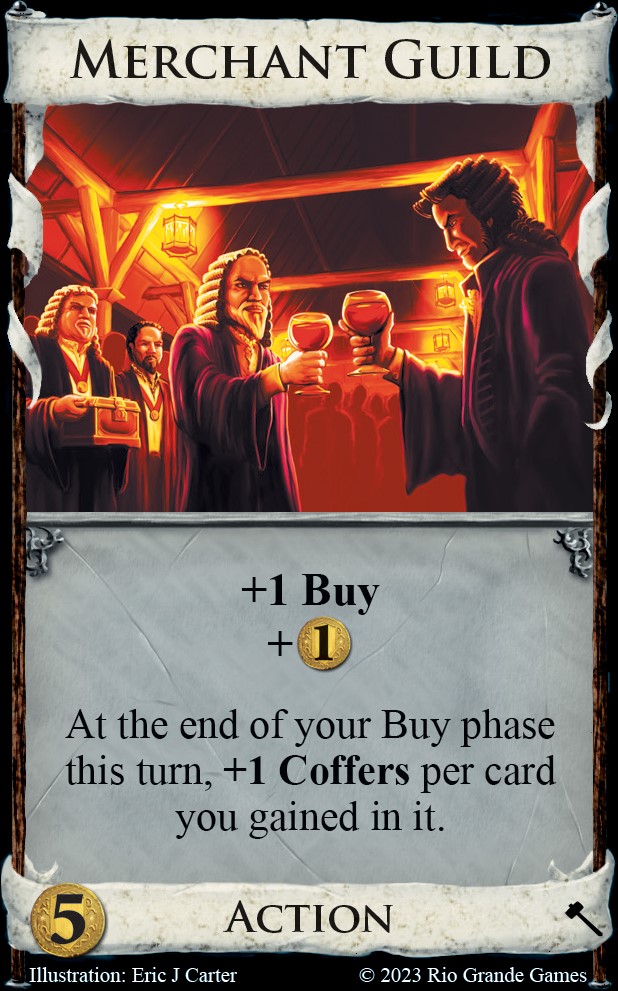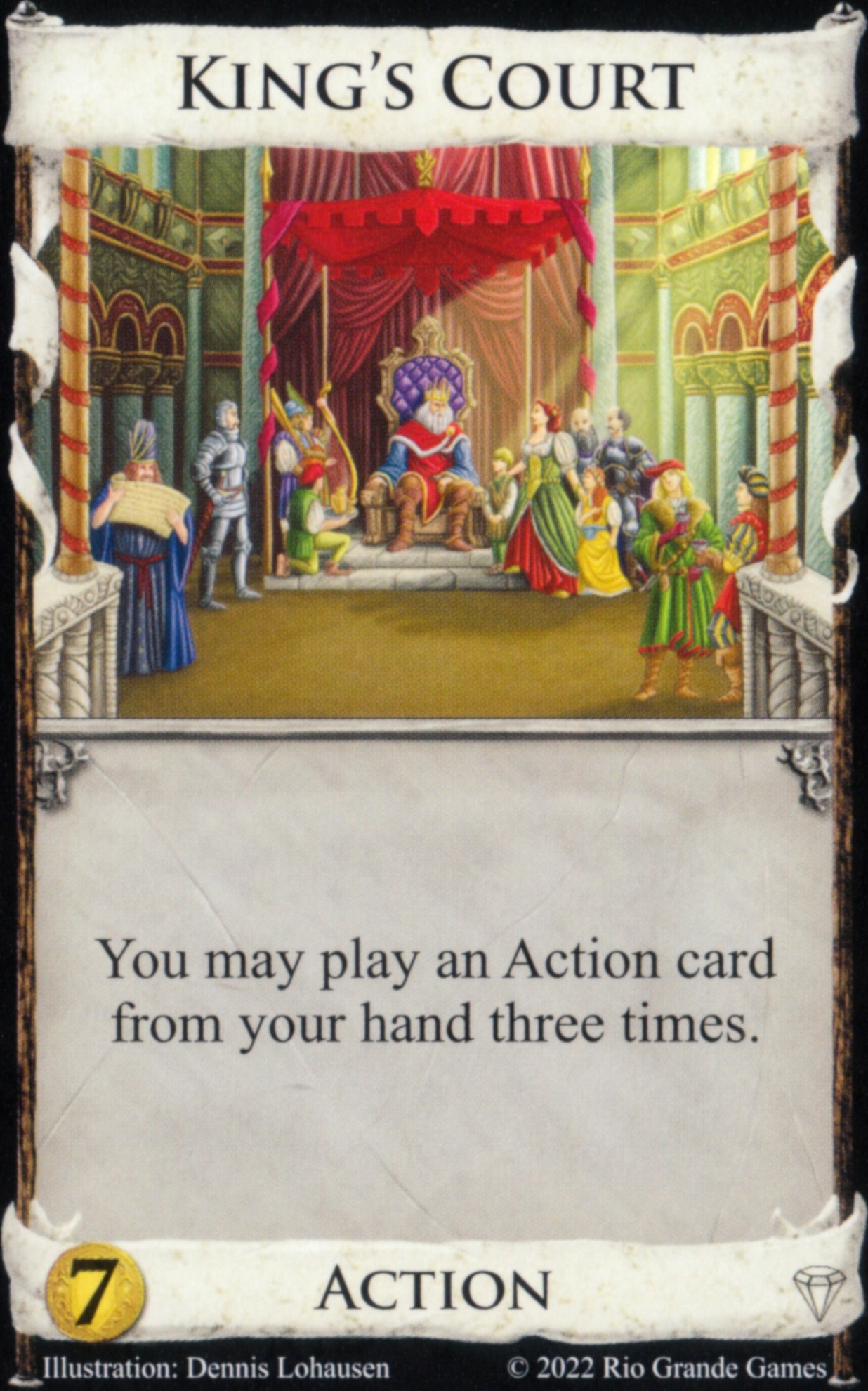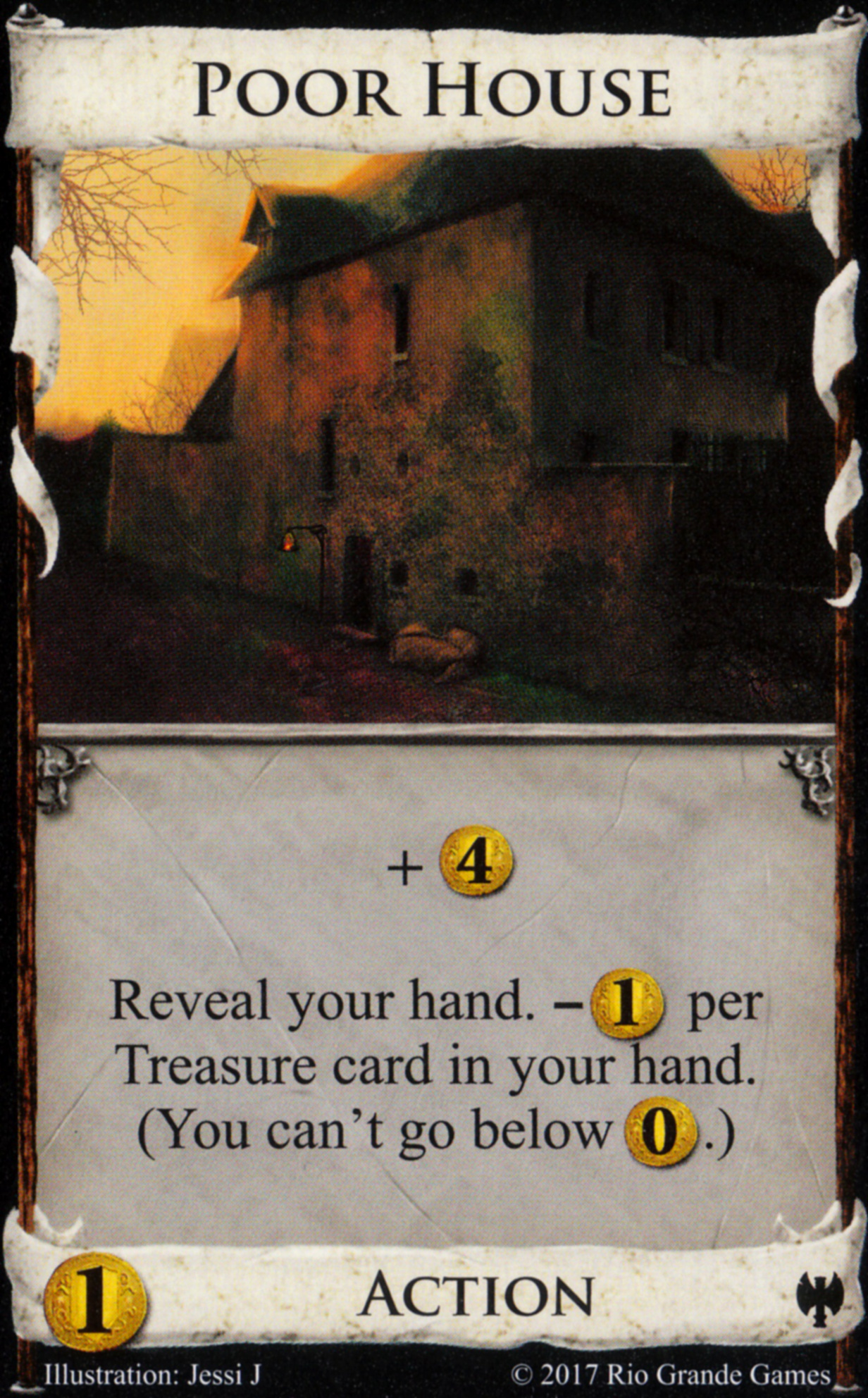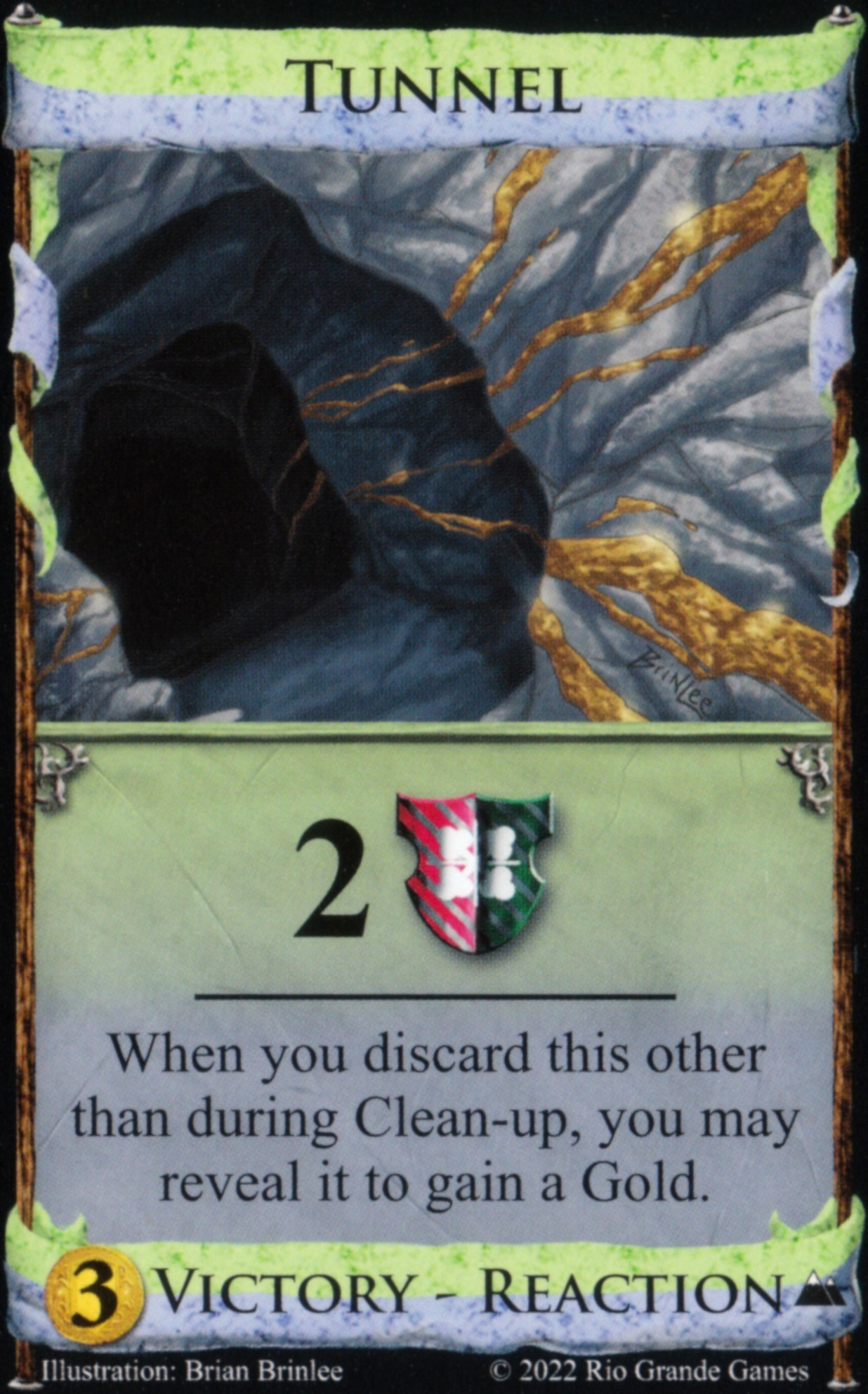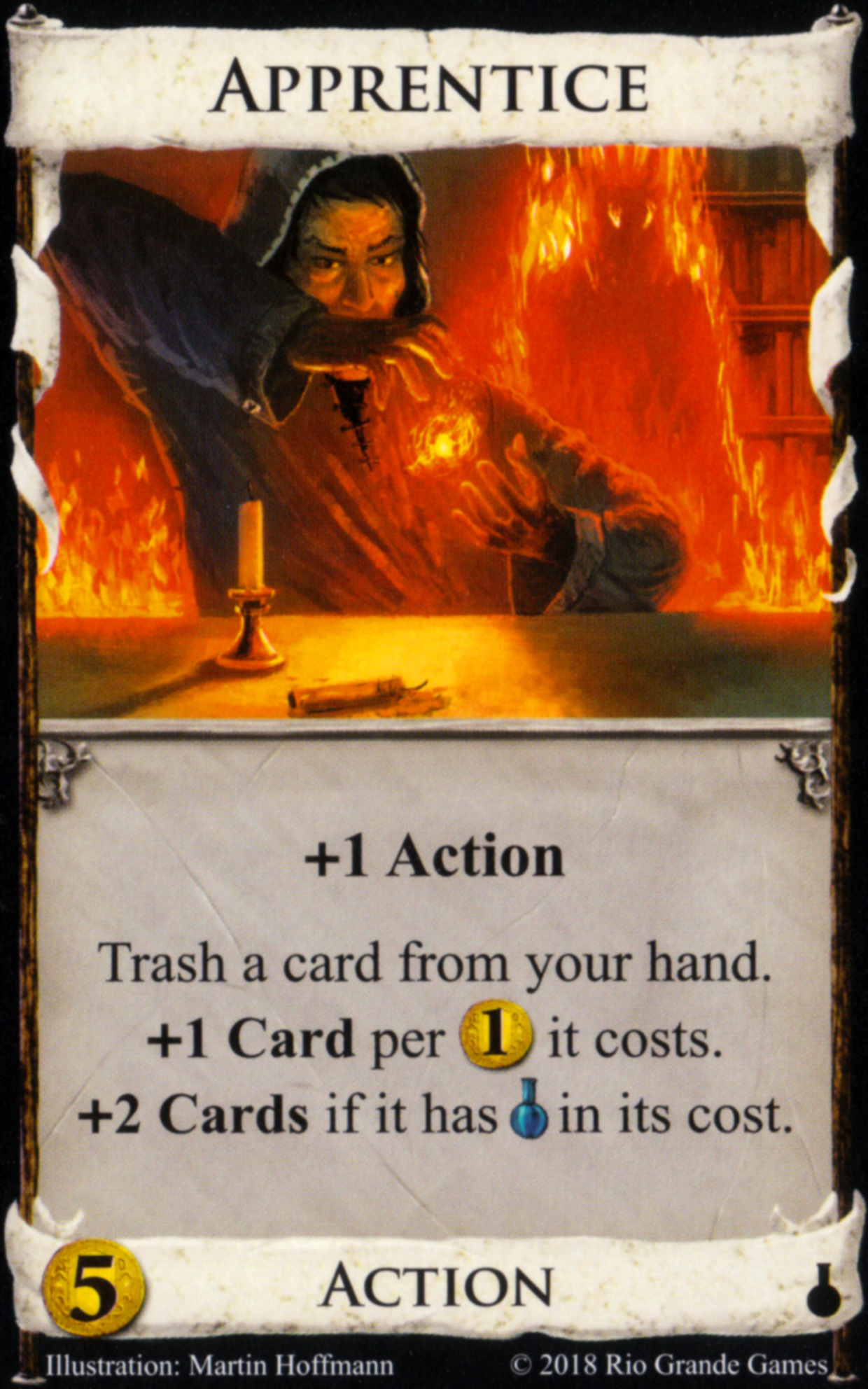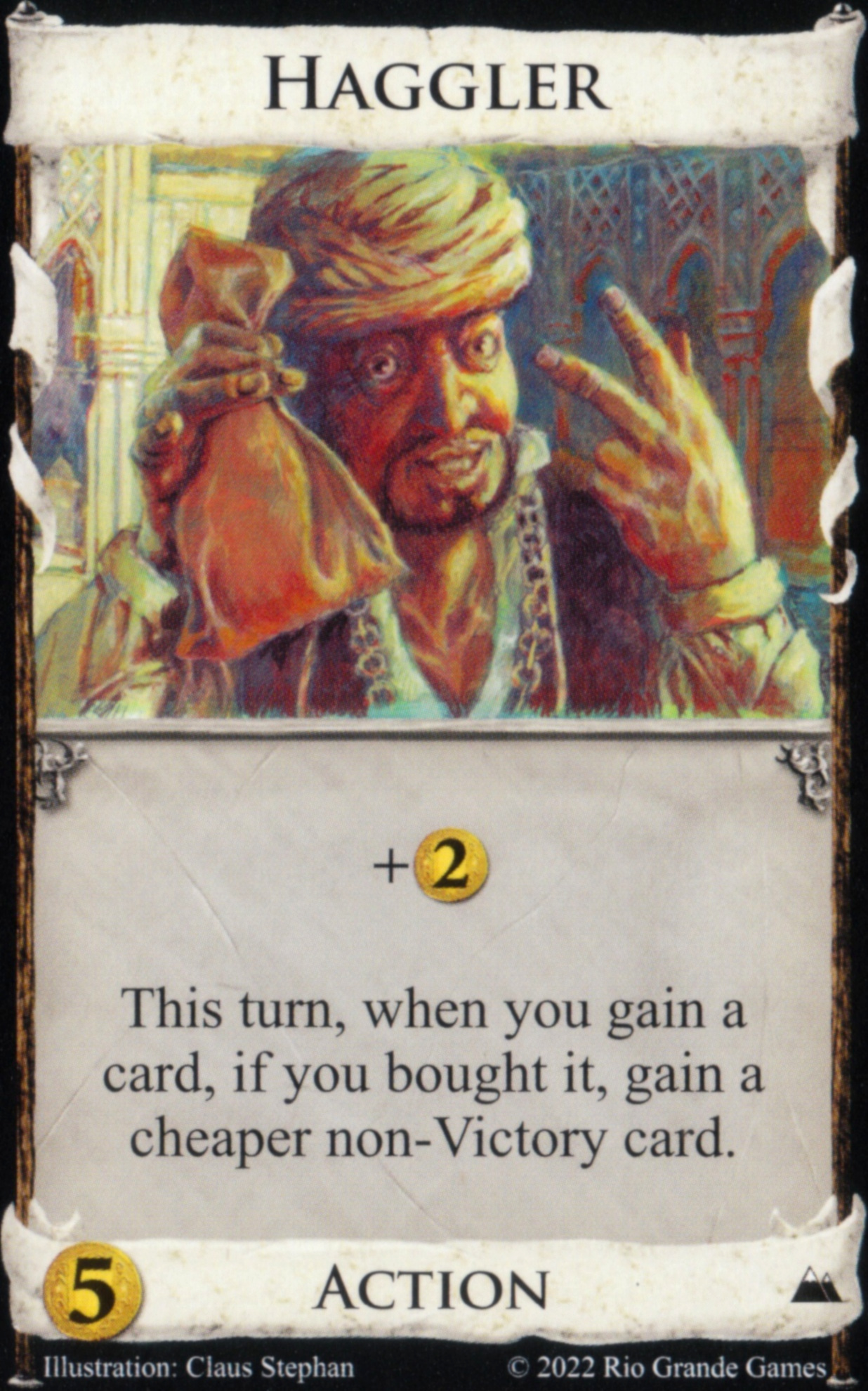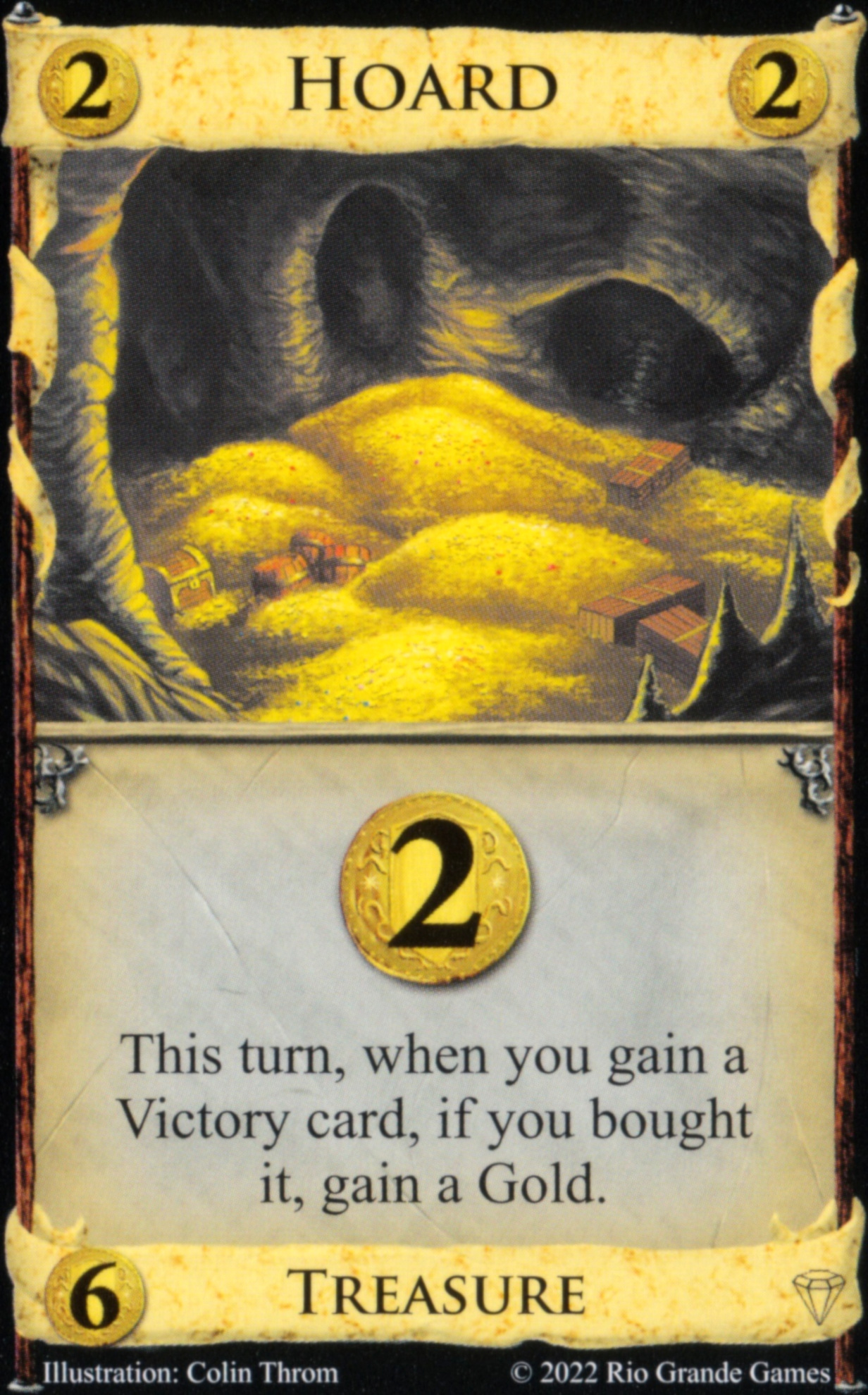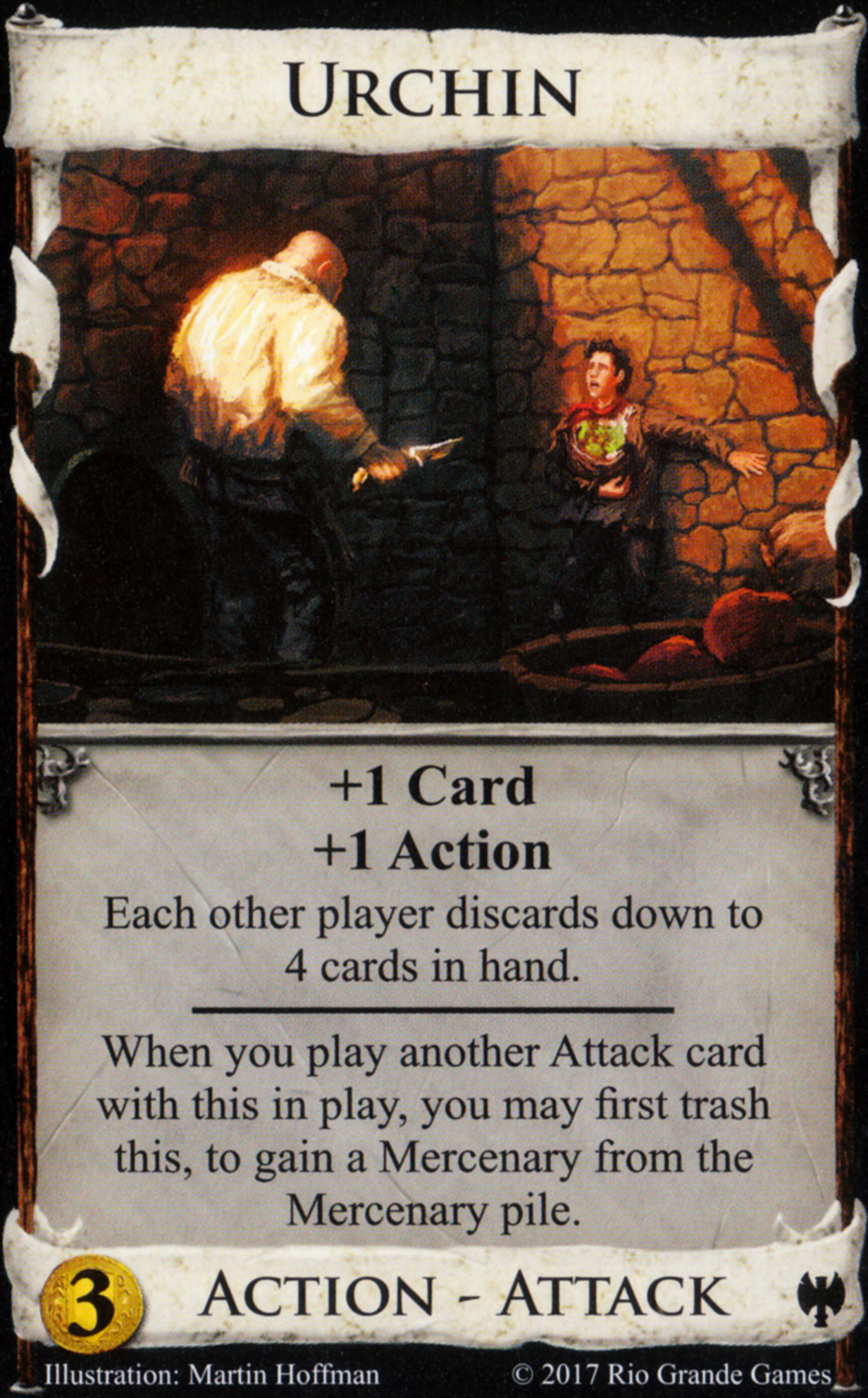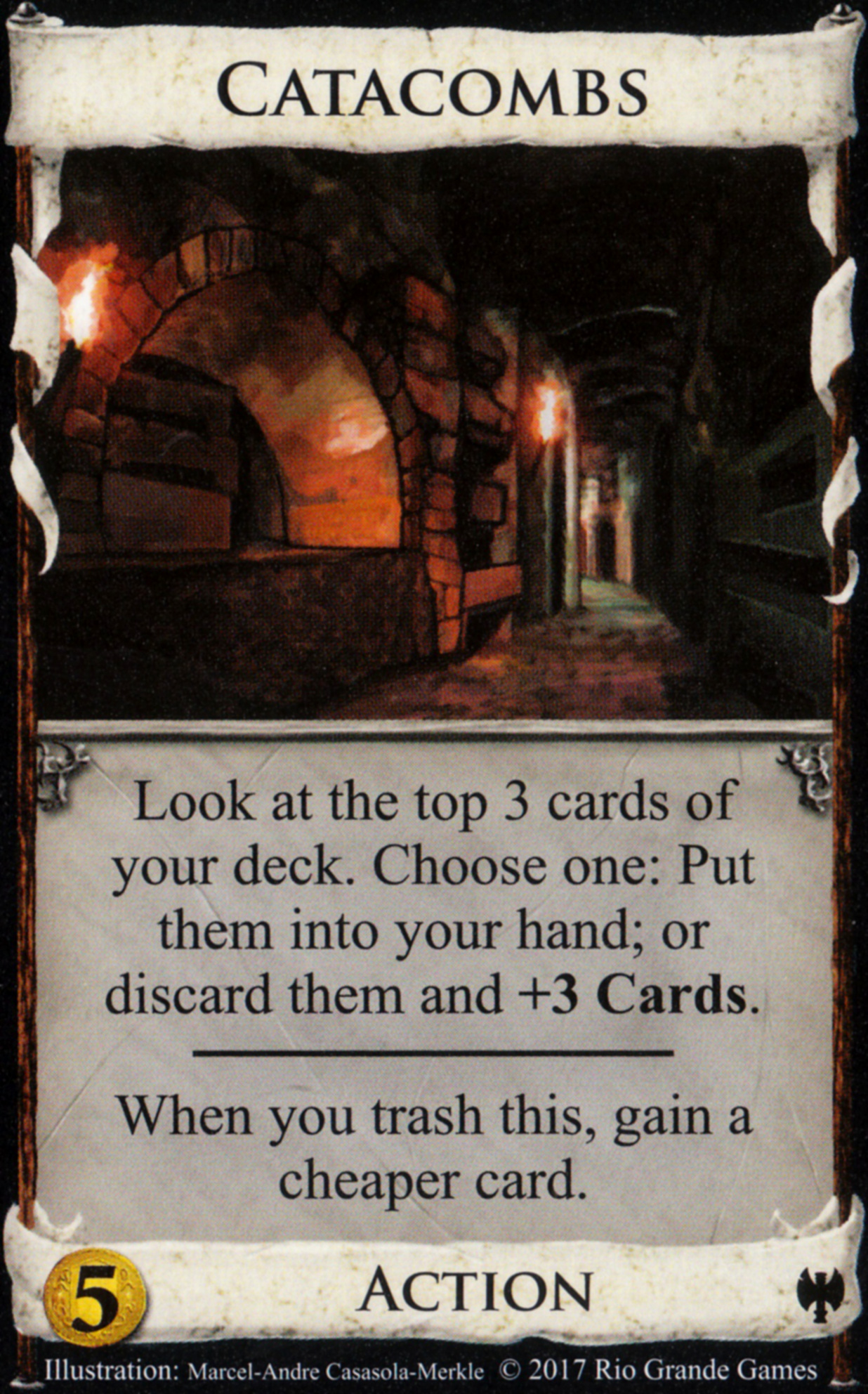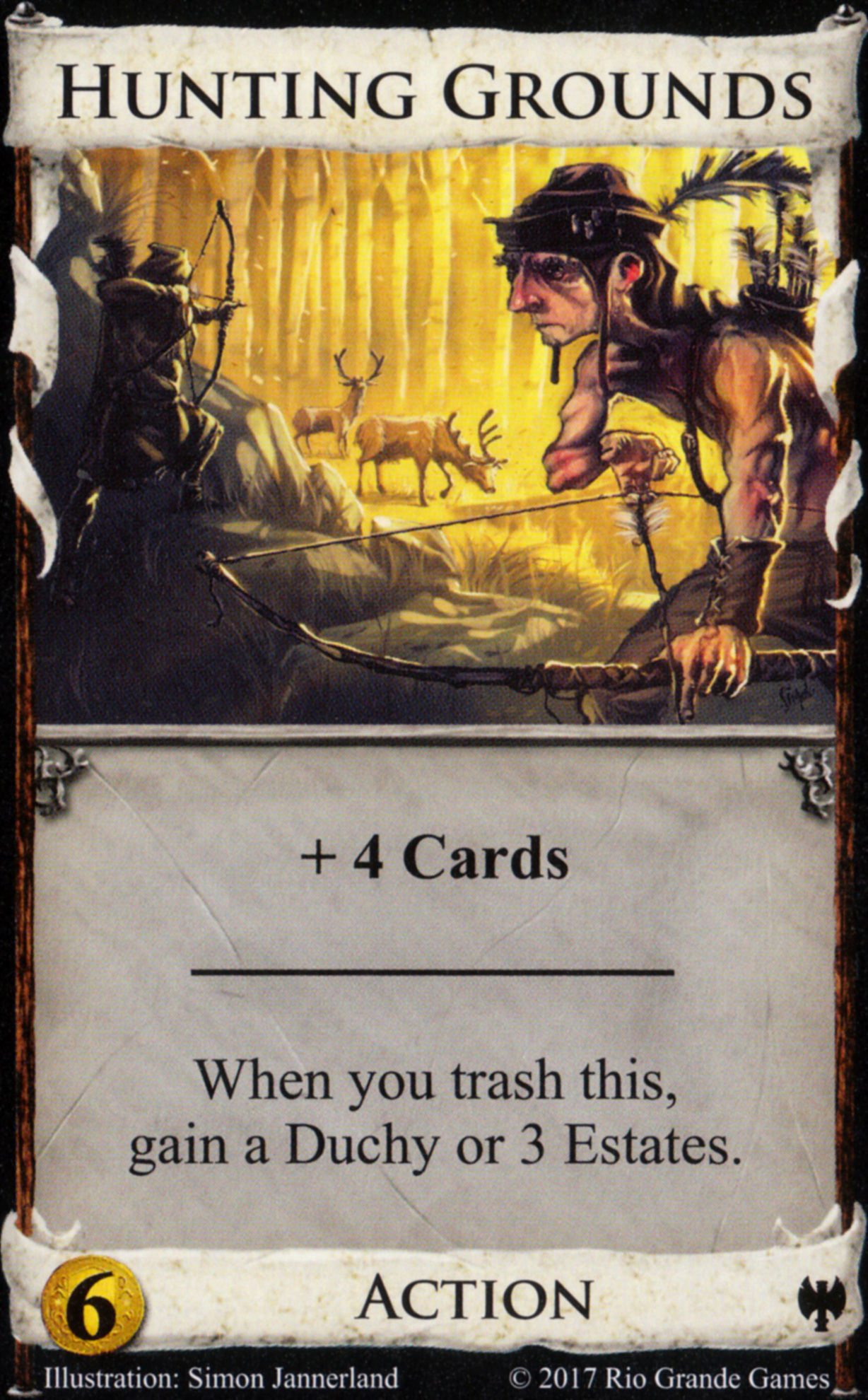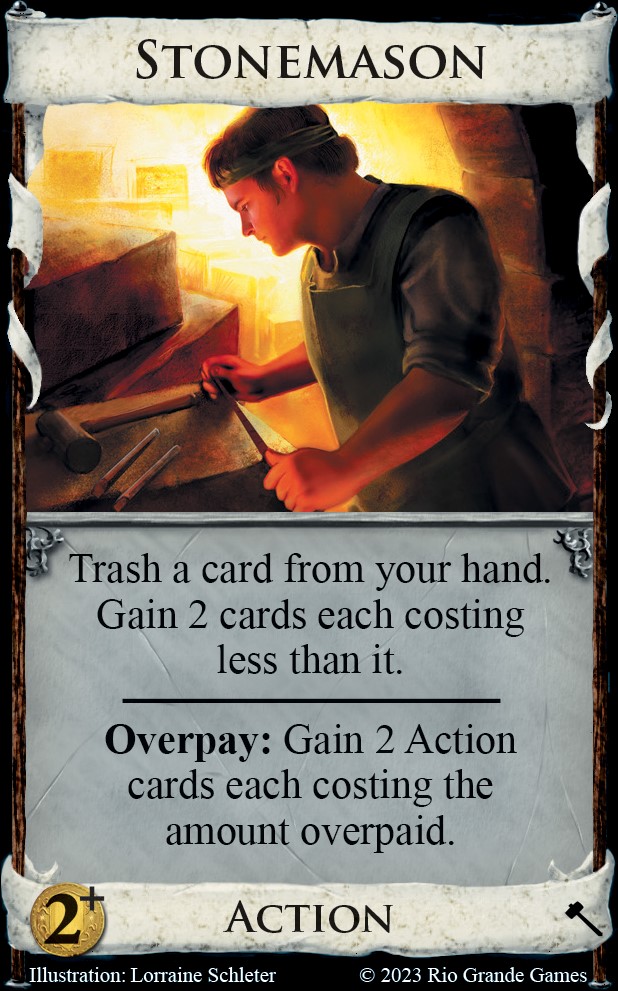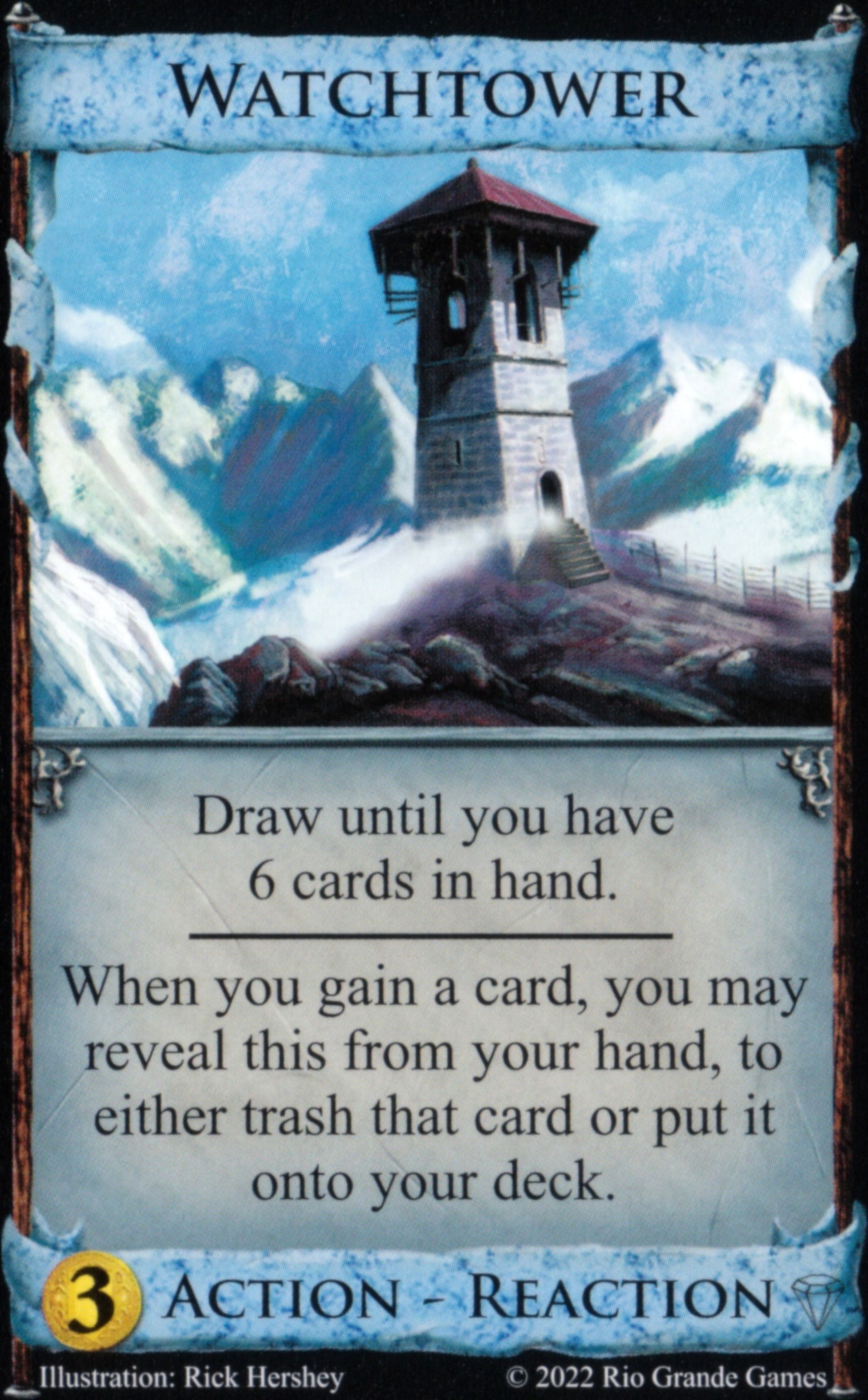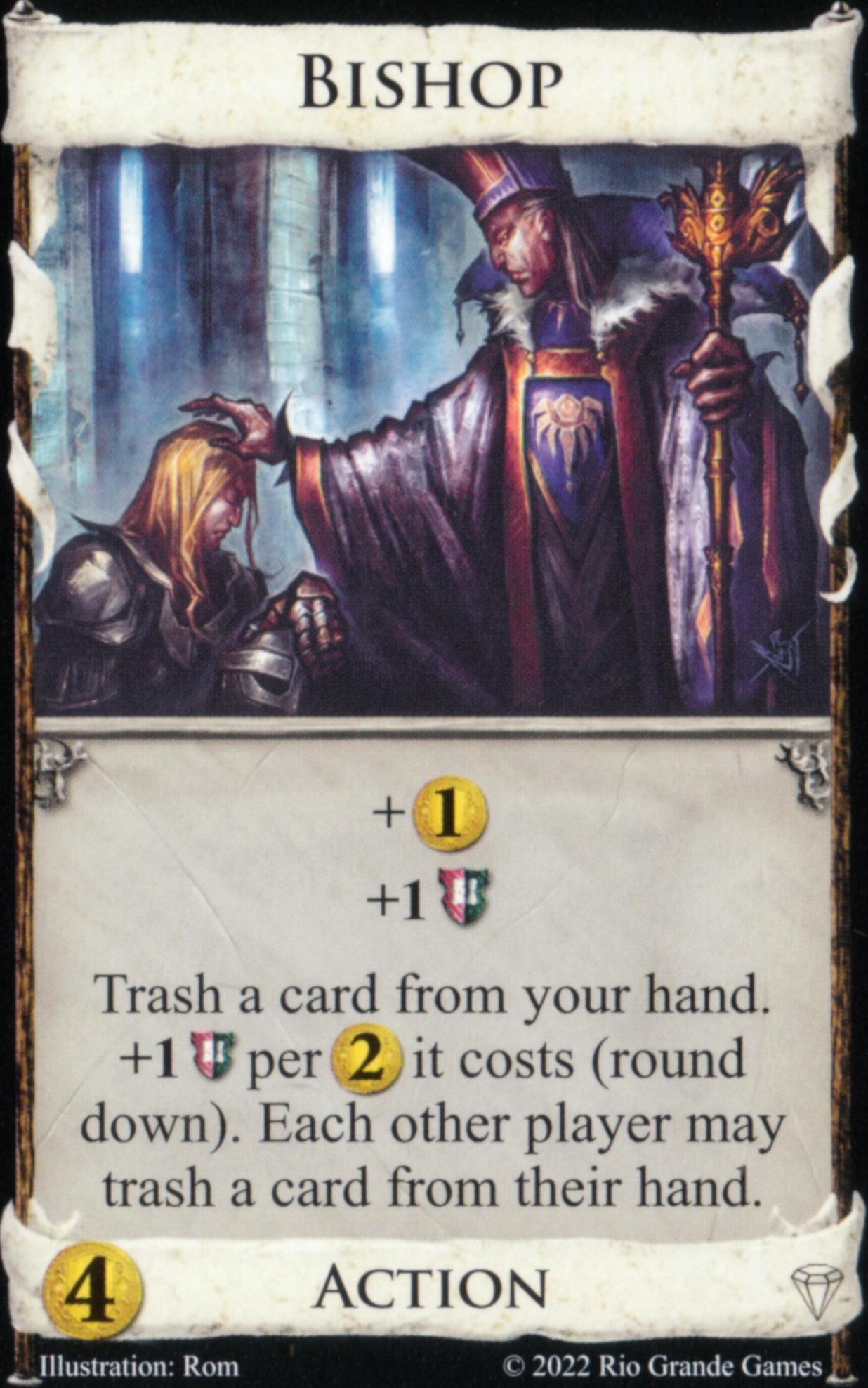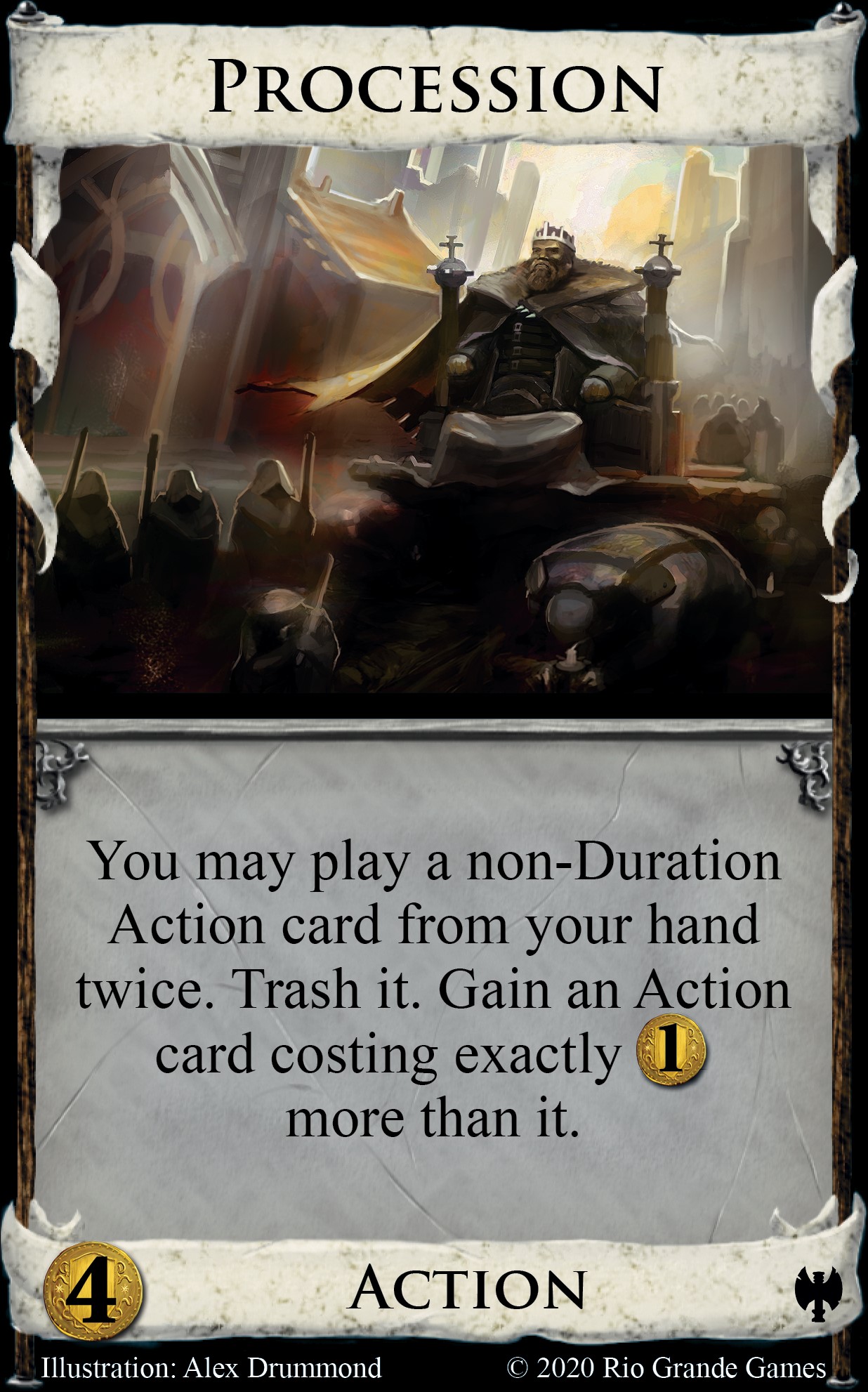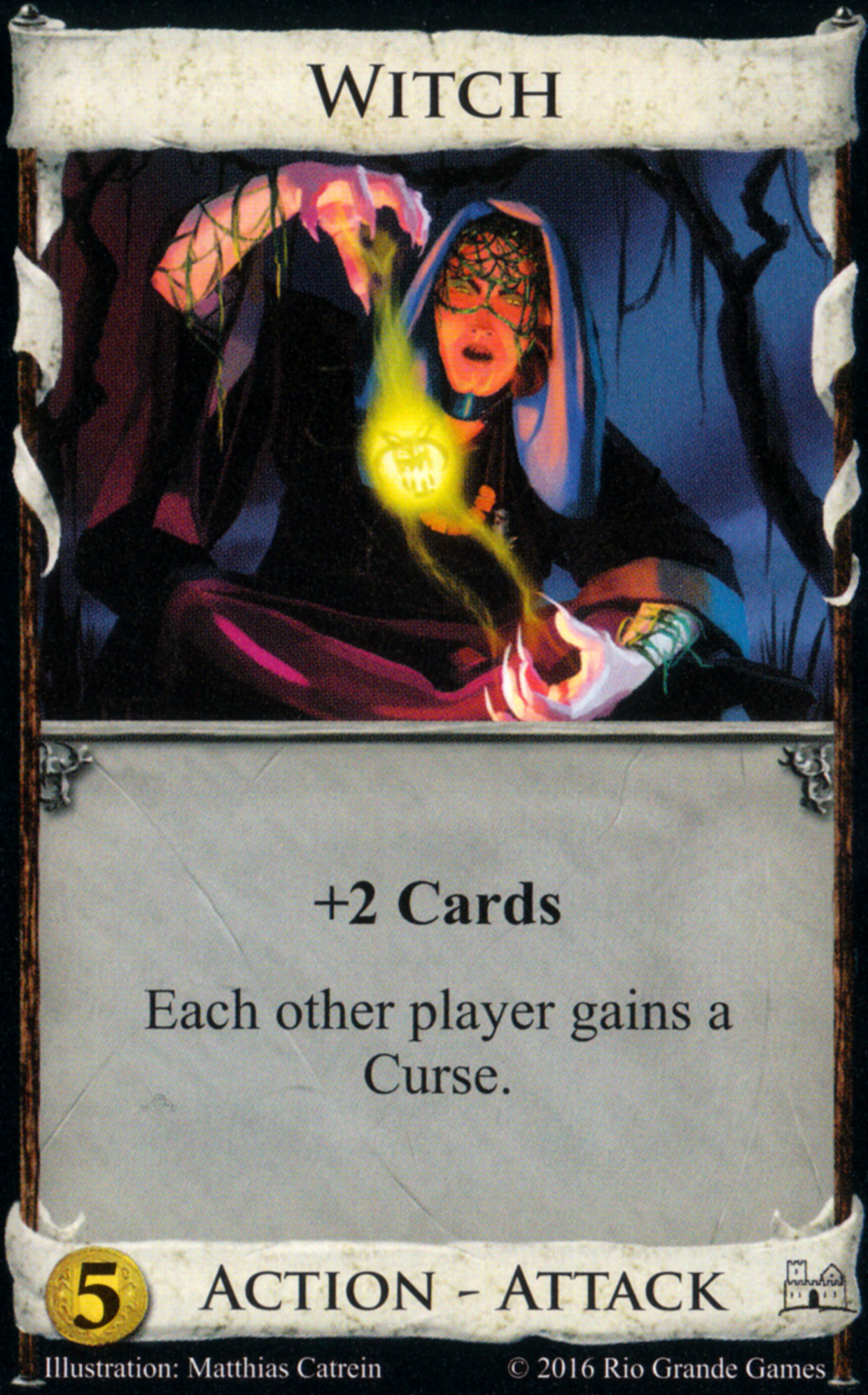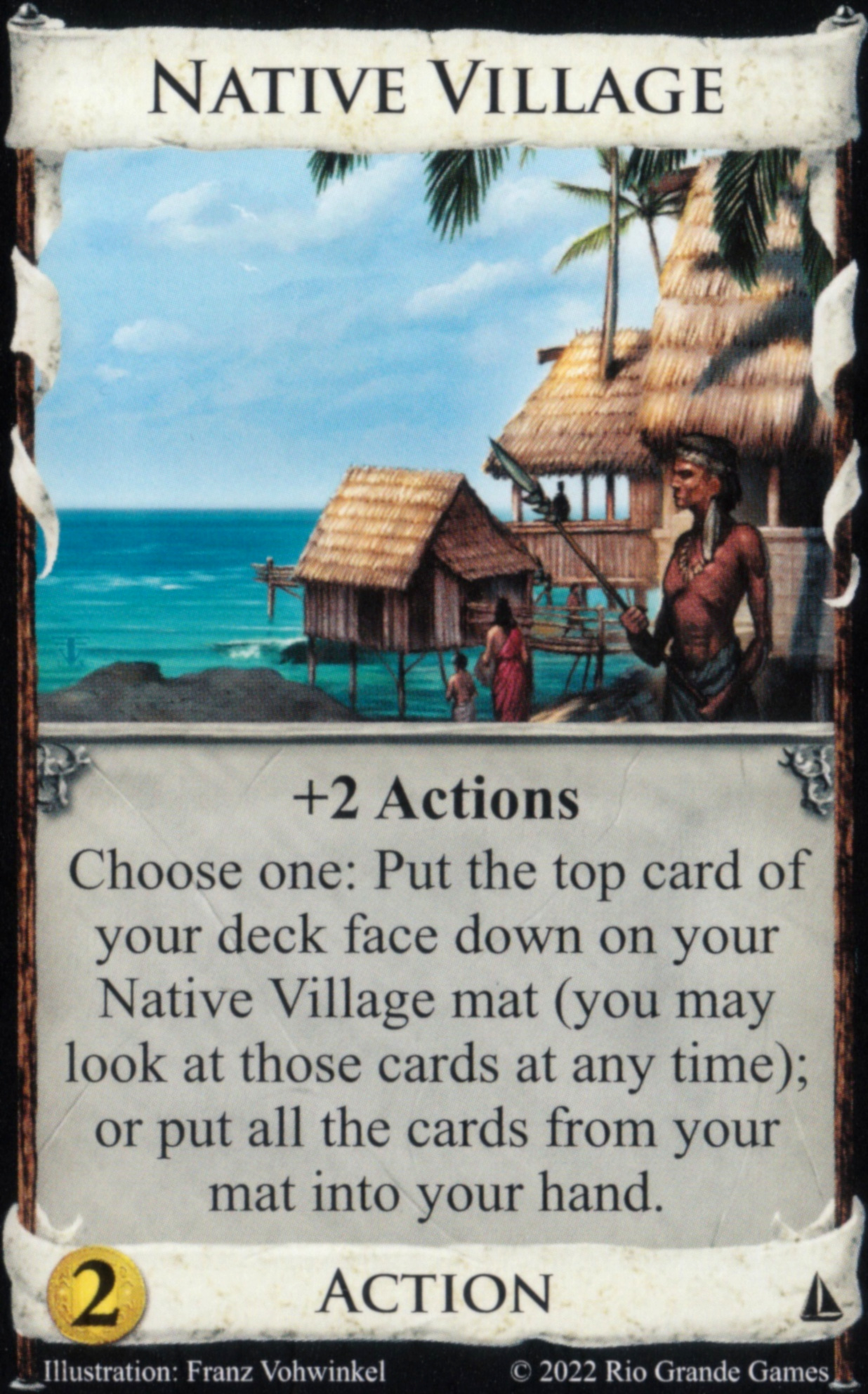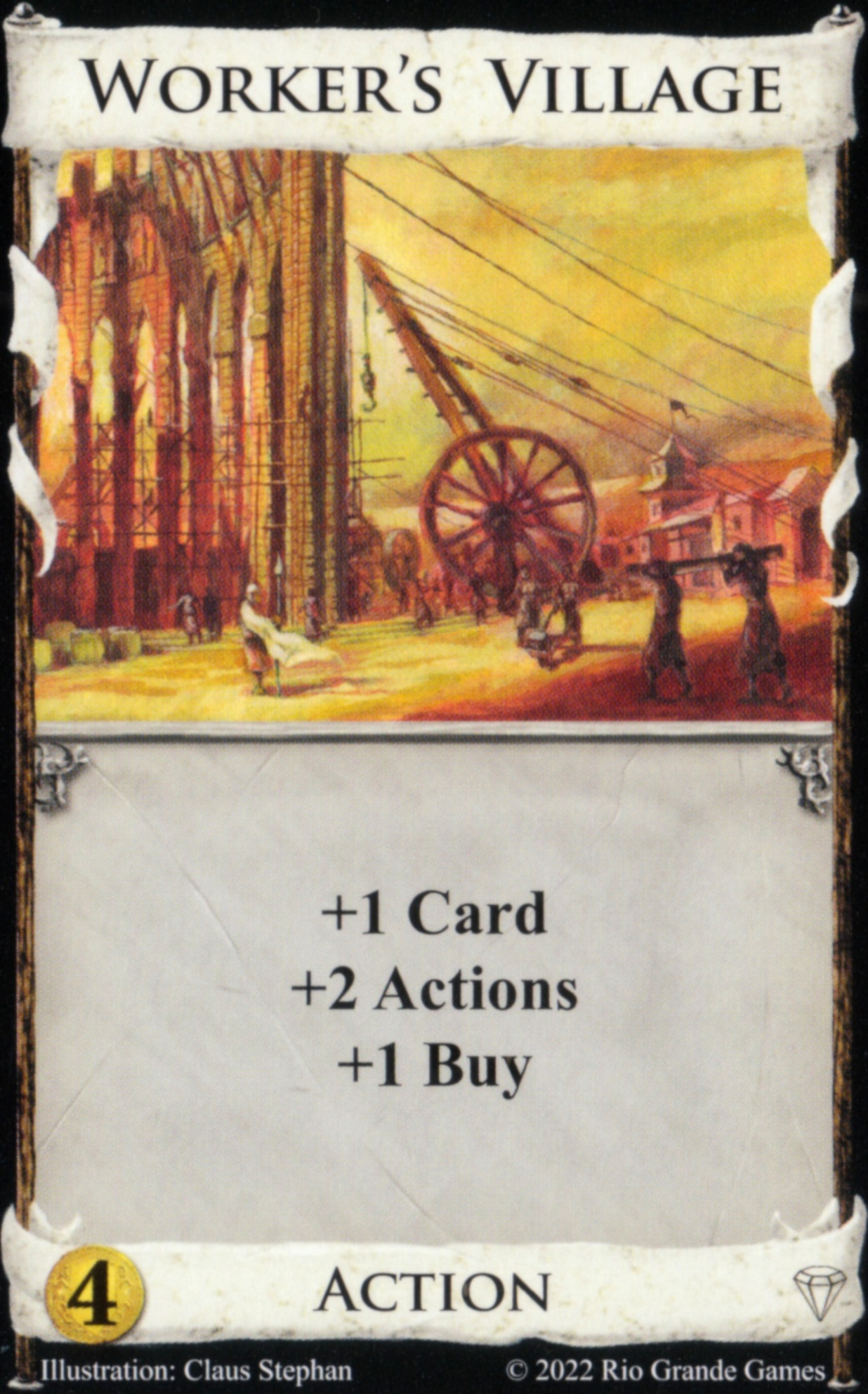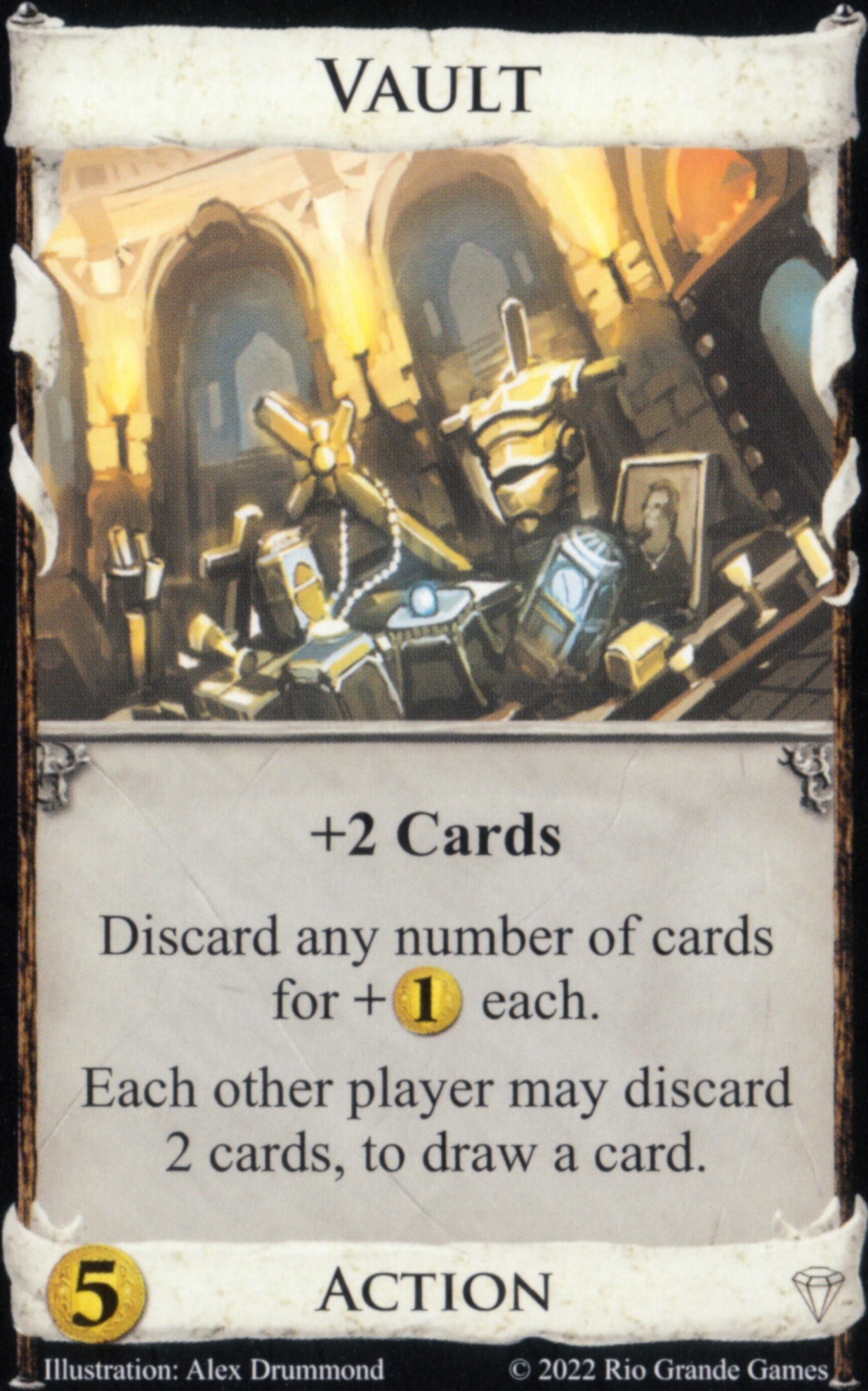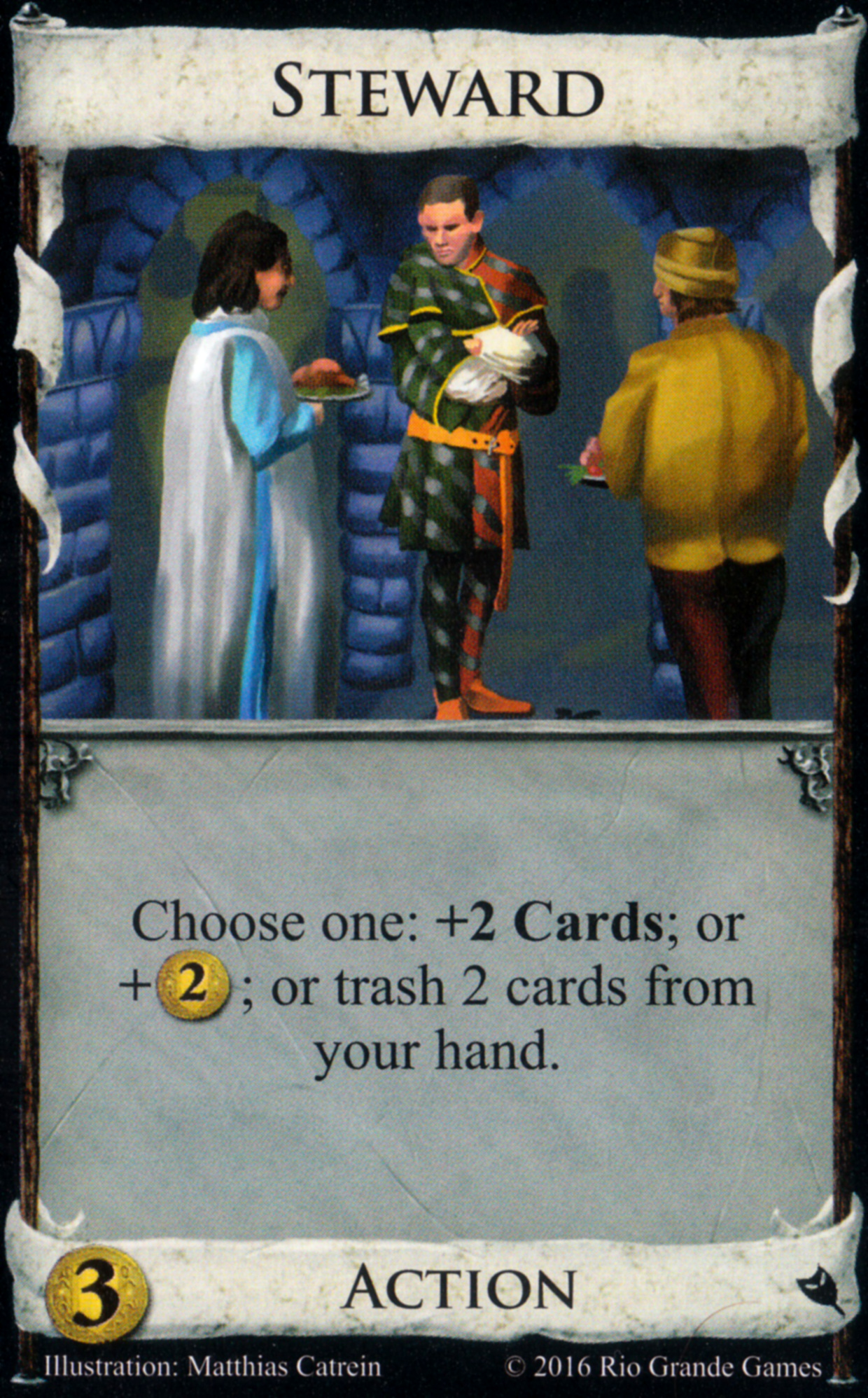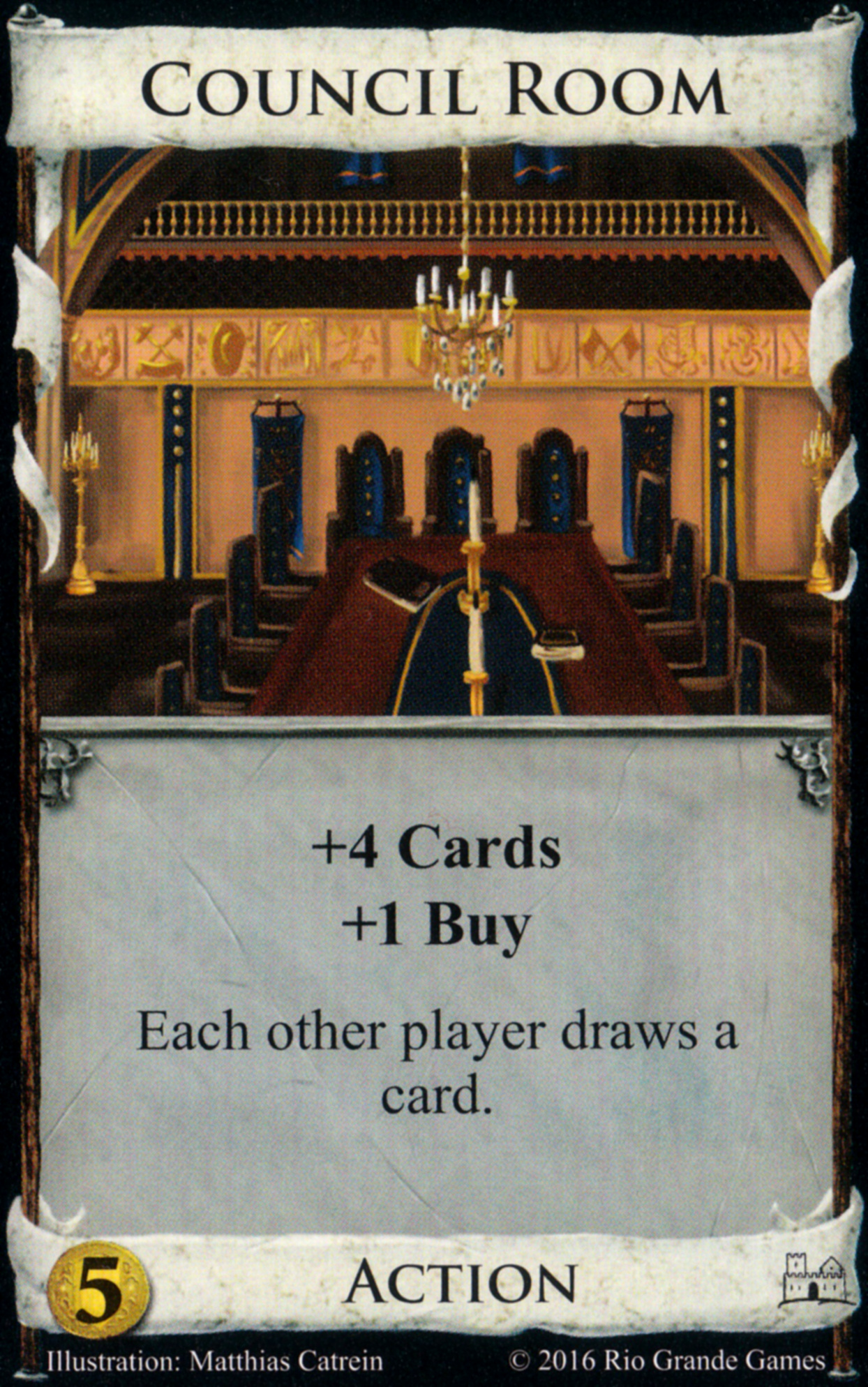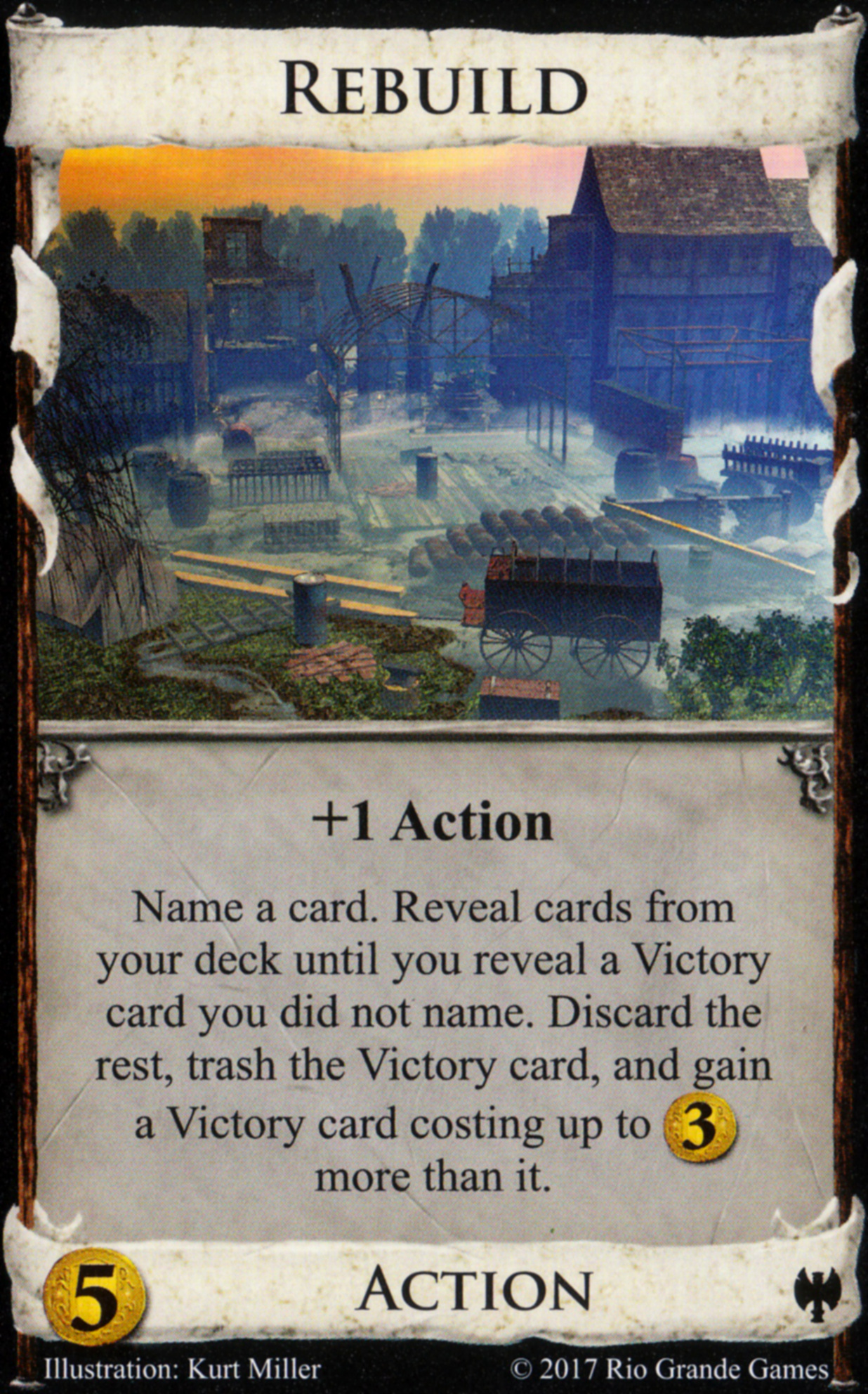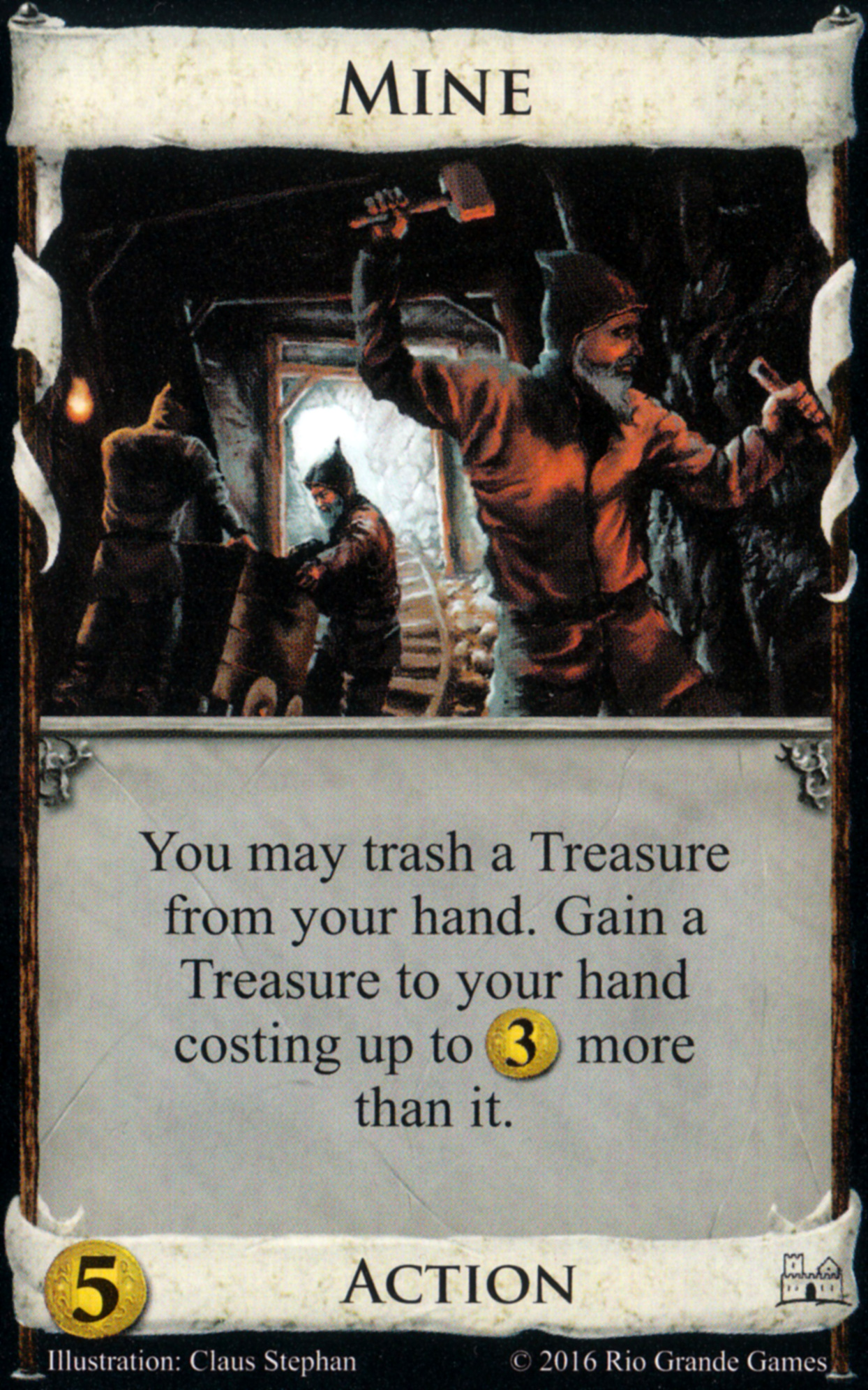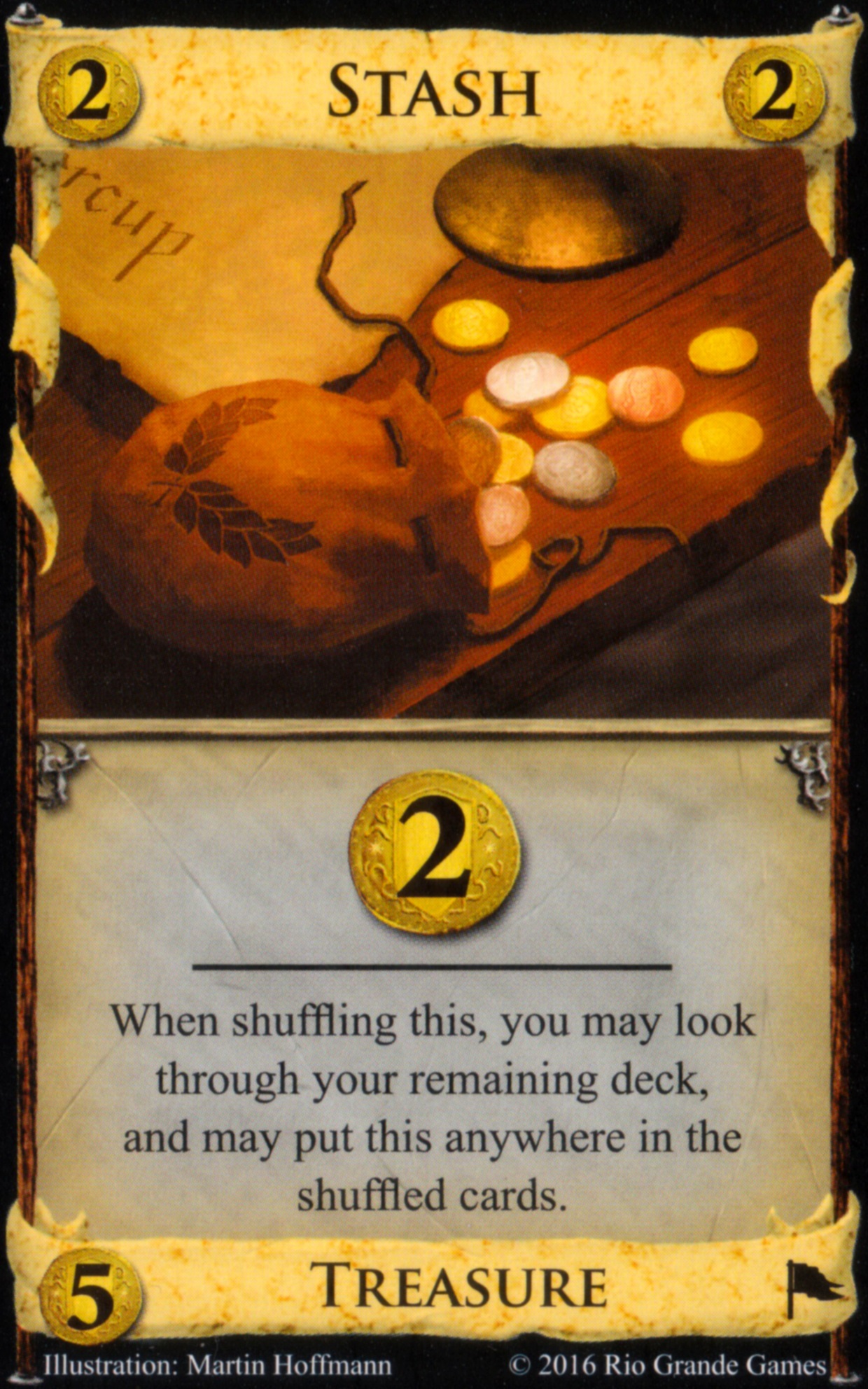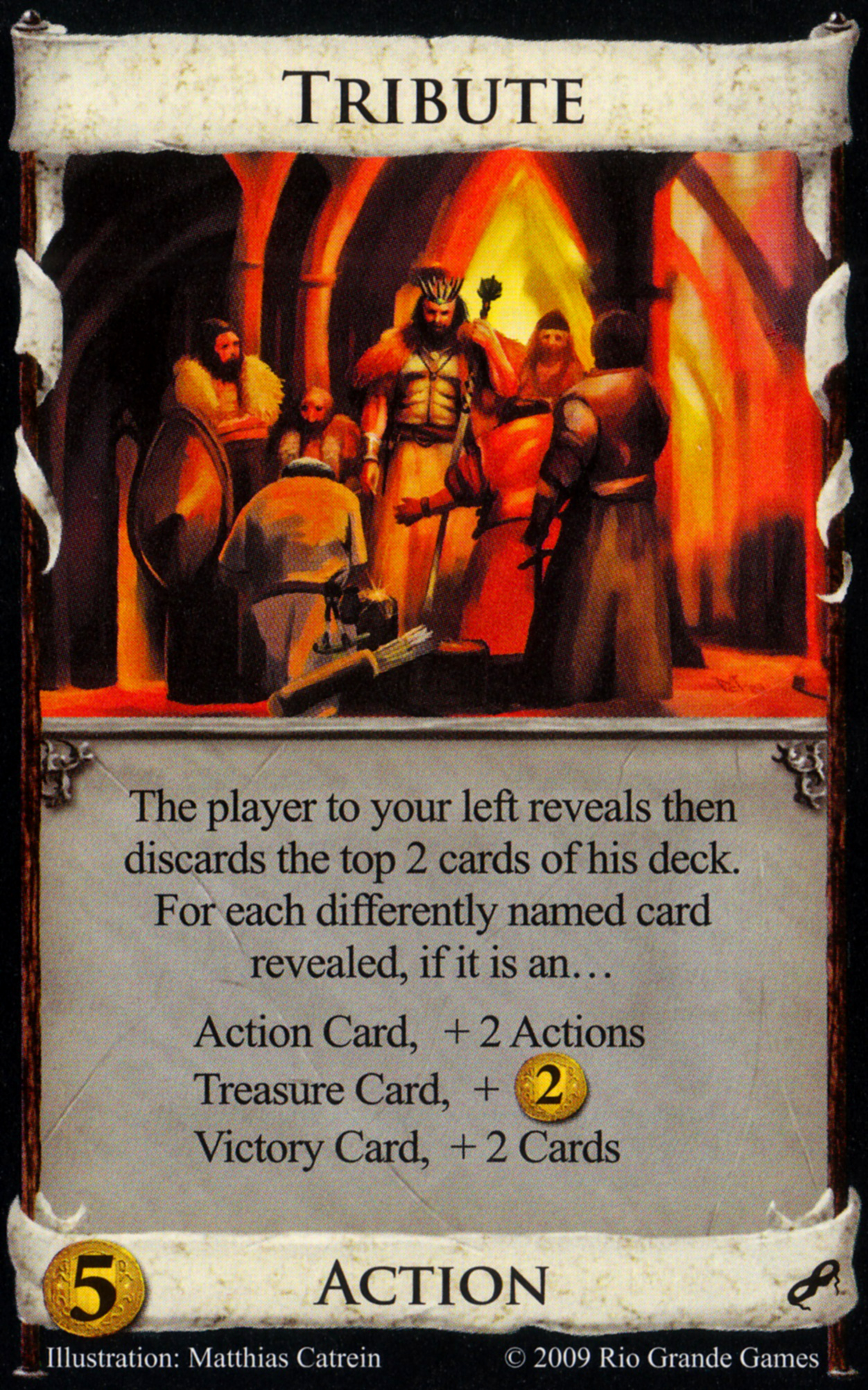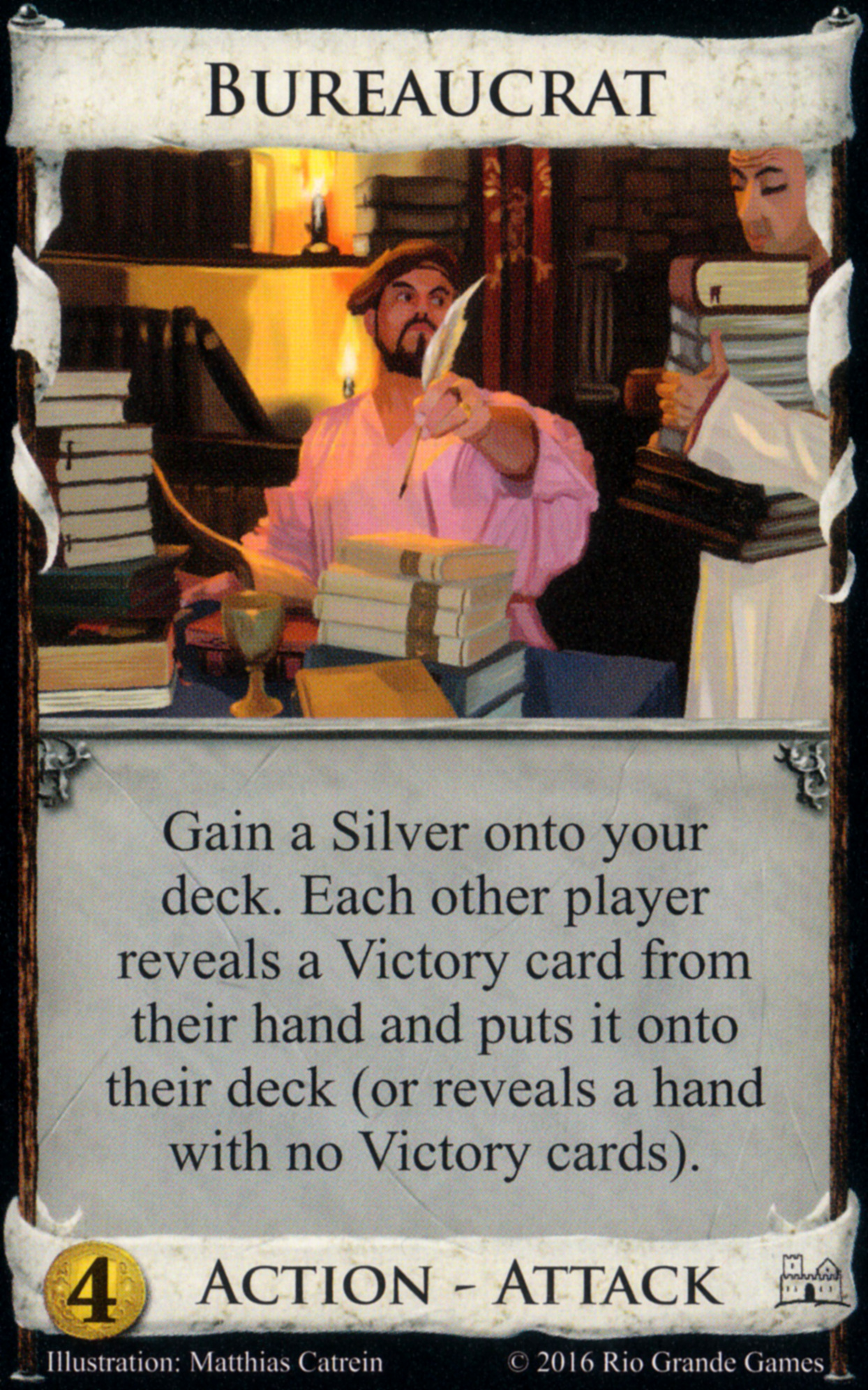1
Dominion Articles / Glossary Update
« on: February 25, 2019, 11:09:33 pm »
The glossary on the front page is in need of some updating. It still references some first edition cards, for example. Below is the proposed updated version. Note, I am going to delete all the abbreviations that are on that page, as well, unless there are strong objections.
Definitions should be as simple and straightforward as possible to help new players who might reference the glossary. If you have any additions or suggested changes on how the definitions below could be clearer, please post in this thread. Thanks!
EDIT: Version 3.
Some of the terms commonly used in the Dominion community include:
Base Cards: A set of the non-kingdom supply cards (such as Coppers, Provinces, and Curses) needed to play any game of Dominion. Purchasing a set of Base Cards makes any expansion playable or expands play of the base set to five or six players. Compare base set.
Base Set: The original Dominion, with no expansions. For example, "In the base set, Chapel is the best early-game trasher." Compare Base Cards.
Big Money: See money.
Board: See kingdom.
Cantrip: Any card that gives +1 Card, +1 Action; it costs no action to spend it and it replaces itself in the hand. Usually does not refer to cards that give more than Card or more than one Action. Compare village and lab.
Colony Game: Any game in which Colony and Platinum (from Prosperity) are available for purchase.
Combo: A small set of cards (usually two, sometimes three) whose interaction is particularly strong, especially if the cards are individually weak but together can become a game-winning strategy. Compare engine, money, rush, and slog.
Counter: A card or strategy that acts to neutralize another card (usually an attack) or strategy, whether directly (e.g., Moat) or indirectly (e.g., Library vs. Militia/Goons).
Cycling: Moving through your deck. Scavenger and Messenger provide an extreme example of cycling because your entire deck is moved into your discard, but cards like Warehouse and Cellar also cycle your deck by drawing and discarding cards.
Draw Dead: Generally refers to drawing an Action card when you have no more Actions to play. In context, may refer to drawing an Action card that cannot be effectively used (e.g., Baron without Estate, Moneylender without Copper).
Duchy Dancing: When players are buying Duchies instead of Provinces, even if Provinces are available, as no one is willing or able to buy Provinces without risking losing the game.
Early Game: The first few decisions or turns which sets up the rest of the game. Usually, the opening two hands through the first couple of shuffles.
Endgame (or Late Game): The time of the game when players are looking to score points, empty piles, or considering immediate abilities to do so.
End on piles: Force the game to end by emptying three or more piles (four or more with 5+ players).
Engine: Deck which dramatically grows in value or lets you do more and more as it gets built. Usually characterized by drawing and playing lots of Action cards, but not always. Sometimes augmented by a descriptor of a key feature of the deck, such as a “draw-your-deck engine” or “multi-Province engine”. Compare money, combo, rush, and slog.
Gainer: A card with the ability to gain other (usually desirable, c.f. junker) cards. Most gainers are restricted in what they can gain, such as a card that only gains silvers, or a card that only gains cards costing up to $4.
Greening: Purchasing victory cards, usually in the endgame.
Junk: (noun) Bad cards that add bloat to a deck. Coppers, Estates, Curses, and Ruins are the usual examples. (verb) Add bad cards to a deck (preferably an opponent's).
Kingdom: The set of cards that make up the game of interest. Sometimes referred to as the board.
Lab: Short for the card Laboratory, also refers to any card that non-terminally increases your hand-size by one.
Late Game: See endgame.
Midgame: The middle of the game. Players have decided upon a general path of deck building, but players aren’t necessarily looking to score yet and there aren’t active threats to end the game.
Mirror Match: When players pursue identical or near-identical strategies.
Missing the Shuffle: Refers to any cards that aren't included in the next shuffle. Cards that miss the shuffle are usually in your hand or in play. Oftentimes, you want bad cards to miss the shuffle and good cards to stay in the current shuffle.
Money: Narrowly, a deck where no Actions are bought at all, only Treasure and Victory cards. More broadly, a deck that gets economy from Treasures supplemented with some Actions. Money decks usually don’t draw much. When using Treasures and one other card exclusively, this is sometimes called Big Money + X. Compare combo, engine, rush, and slog.
Non-Terminal (or Non-Terminal Action): Any Action card that gives at least one additional Action.
Opening: Purchases made on the first two turns. Usually clarified by the opening split.
Opening Split: Treasure values of the first two hands (usually 5/2 or 4/3). Compare split piles and winning the split.
Piles: See end on piles.
Province Game (rarely, Non-Colony Game): A standard game in which Colony and Platinum are not available.
Pseudo-Trash: Remove cards from your deck without trashing them. For example, Island sets aside cards.
Rush: A strategy that attempts to end the game as quickly as possible, typically with a three-pile ending. Compare combo, engine, money, and slog.
Sifting: Selecting one set of (usually good) cards and discarding or returning another set of cards. For example, Cartographer sifts by letting you discard unwanted cards from the top of your deck. Compare cycling.
Slog: A game or strategy characterized by decks filled with junk, willingly (e.g. to beef up Gardens) or unwillingly (e.g. because of attacks). Compare combo, engine, rush, and money.
Split Piles: Piles containing more than one differently named card, in a particular order. For example, Encampment and Plunder. Contrast with Knights and Ruins which are shuffled. Compare opening split and winning the split.
Stop Card: A card that does not draw any more cards from your deck, like Giant or Gold. If Actions are limited, this may or may not include terminal draw.
Terminal (or Terminal Action): Any action card that does not provide another Action when played.
Terminal Collision: Drawing multiple terminal action cards together, especially when you can only play one of them.
Terminal Draw: An Action card that draws cards but gives no additional Actions. Usually refers to +2 Cards or greater. For example, Moat, Smithy, or Hunting Grounds.
Terminal Gold: Any terminal action that gives +$3.
Terminal Silver: Any terminal action that gives +$2.
Topdeck: Place a card on top of your deck that would normally go elsewhere (e.g. Alchemist, Royal Seal).
Three-Pile: Ending a game by emptying a third pile, often while ahead on points. See end on piles.
Trasher (or Deck-thinner): Any card that allows one to trash cards from one's deck.
Trash-for-Benefit: A card that trashes, then does something (useful) based on what it trashed. For example, Apprentice draws cards and Salvager gives coin.
Village: Besides the card of the same name, can refer to any card which allows someone to play multiple actions in a turn; most (but not all) such cards have "Village" in their names.
Winning the Split: Getting the most copies of a Kingdom Card from a heavily contested pile, oftentimes a card that all players want as many copies of as possible. For example, if you gain 6 Bridges and your opponent gains 4 Bridges, you win the split 6-4. Compare opening split and split piles.
Definitions should be as simple and straightforward as possible to help new players who might reference the glossary. If you have any additions or suggested changes on how the definitions below could be clearer, please post in this thread. Thanks!
EDIT: Version 3.
Some of the terms commonly used in the Dominion community include:
Base Cards: A set of the non-kingdom supply cards (such as Coppers, Provinces, and Curses) needed to play any game of Dominion. Purchasing a set of Base Cards makes any expansion playable or expands play of the base set to five or six players. Compare base set.
Base Set: The original Dominion, with no expansions. For example, "In the base set, Chapel is the best early-game trasher." Compare Base Cards.
Big Money: See money.
Board: See kingdom.
Cantrip: Any card that gives +1 Card, +1 Action; it costs no action to spend it and it replaces itself in the hand. Usually does not refer to cards that give more than Card or more than one Action. Compare village and lab.
Colony Game: Any game in which Colony and Platinum (from Prosperity) are available for purchase.
Combo: A small set of cards (usually two, sometimes three) whose interaction is particularly strong, especially if the cards are individually weak but together can become a game-winning strategy. Compare engine, money, rush, and slog.
Counter: A card or strategy that acts to neutralize another card (usually an attack) or strategy, whether directly (e.g., Moat) or indirectly (e.g., Library vs. Militia/Goons).
Cycling: Moving through your deck. Scavenger and Messenger provide an extreme example of cycling because your entire deck is moved into your discard, but cards like Warehouse and Cellar also cycle your deck by drawing and discarding cards.
Draw Dead: Generally refers to drawing an Action card when you have no more Actions to play. In context, may refer to drawing an Action card that cannot be effectively used (e.g., Baron without Estate, Moneylender without Copper).
Duchy Dancing: When players are buying Duchies instead of Provinces, even if Provinces are available, as no one is willing or able to buy Provinces without risking losing the game.
Early Game: The first few decisions or turns which sets up the rest of the game. Usually, the opening two hands through the first couple of shuffles.
Endgame (or Late Game): The time of the game when players are looking to score points, empty piles, or considering immediate abilities to do so.
End on piles: Force the game to end by emptying three or more piles (four or more with 5+ players).
Engine: Deck which dramatically grows in value or lets you do more and more as it gets built. Usually characterized by drawing and playing lots of Action cards, but not always. Sometimes augmented by a descriptor of a key feature of the deck, such as a “draw-your-deck engine” or “multi-Province engine”. Compare money, combo, rush, and slog.
Gainer: A card with the ability to gain other (usually desirable, c.f. junker) cards. Most gainers are restricted in what they can gain, such as a card that only gains silvers, or a card that only gains cards costing up to $4.
Greening: Purchasing victory cards, usually in the endgame.
Junk: (noun) Bad cards that add bloat to a deck. Coppers, Estates, Curses, and Ruins are the usual examples. (verb) Add bad cards to a deck (preferably an opponent's).
Kingdom: The set of cards that make up the game of interest. Sometimes referred to as the board.
Lab: Short for the card Laboratory, also refers to any card that non-terminally increases your hand-size by one.
Late Game: See endgame.
Midgame: The middle of the game. Players have decided upon a general path of deck building, but players aren’t necessarily looking to score yet and there aren’t active threats to end the game.
Mirror Match: When players pursue identical or near-identical strategies.
Missing the Shuffle: Refers to any cards that aren't included in the next shuffle. Cards that miss the shuffle are usually in your hand or in play. Oftentimes, you want bad cards to miss the shuffle and good cards to stay in the current shuffle.
Money: Narrowly, a deck where no Actions are bought at all, only Treasure and Victory cards. More broadly, a deck that gets economy from Treasures supplemented with some Actions. Money decks usually don’t draw much. When using Treasures and one other card exclusively, this is sometimes called Big Money + X. Compare combo, engine, rush, and slog.
Non-Terminal (or Non-Terminal Action): Any Action card that gives at least one additional Action.
Opening: Purchases made on the first two turns. Usually clarified by the opening split.
Opening Split: Treasure values of the first two hands (usually 5/2 or 4/3). Compare split piles and winning the split.
Piles: See end on piles.
Province Game (rarely, Non-Colony Game): A standard game in which Colony and Platinum are not available.
Pseudo-Trash: Remove cards from your deck without trashing them. For example, Island sets aside cards.
Rush: A strategy that attempts to end the game as quickly as possible, typically with a three-pile ending. Compare combo, engine, money, and slog.
Sifting: Selecting one set of (usually good) cards and discarding or returning another set of cards. For example, Cartographer sifts by letting you discard unwanted cards from the top of your deck. Compare cycling.
Slog: A game or strategy characterized by decks filled with junk, willingly (e.g. to beef up Gardens) or unwillingly (e.g. because of attacks). Compare combo, engine, rush, and money.
Split Piles: Piles containing more than one differently named card, in a particular order. For example, Encampment and Plunder. Contrast with Knights and Ruins which are shuffled. Compare opening split and winning the split.
Stop Card: A card that does not draw any more cards from your deck, like Giant or Gold. If Actions are limited, this may or may not include terminal draw.
Terminal (or Terminal Action): Any action card that does not provide another Action when played.
Terminal Collision: Drawing multiple terminal action cards together, especially when you can only play one of them.
Terminal Draw: An Action card that draws cards but gives no additional Actions. Usually refers to +2 Cards or greater. For example, Moat, Smithy, or Hunting Grounds.
Terminal Gold: Any terminal action that gives +$3.
Terminal Silver: Any terminal action that gives +$2.
Topdeck: Place a card on top of your deck that would normally go elsewhere (e.g. Alchemist, Royal Seal).
Three-Pile: Ending a game by emptying a third pile, often while ahead on points. See end on piles.
Trasher (or Deck-thinner): Any card that allows one to trash cards from one's deck.
Trash-for-Benefit: A card that trashes, then does something (useful) based on what it trashed. For example, Apprentice draws cards and Salvager gives coin.
Village: Besides the card of the same name, can refer to any card which allows someone to play multiple actions in a turn; most (but not all) such cards have "Village" in their names.
Winning the Split: Getting the most copies of a Kingdom Card from a heavily contested pile, oftentimes a card that all players want as many copies of as possible. For example, if you gain 6 Bridges and your opponent gains 4 Bridges, you win the split 6-4. Compare opening split and split piles.






